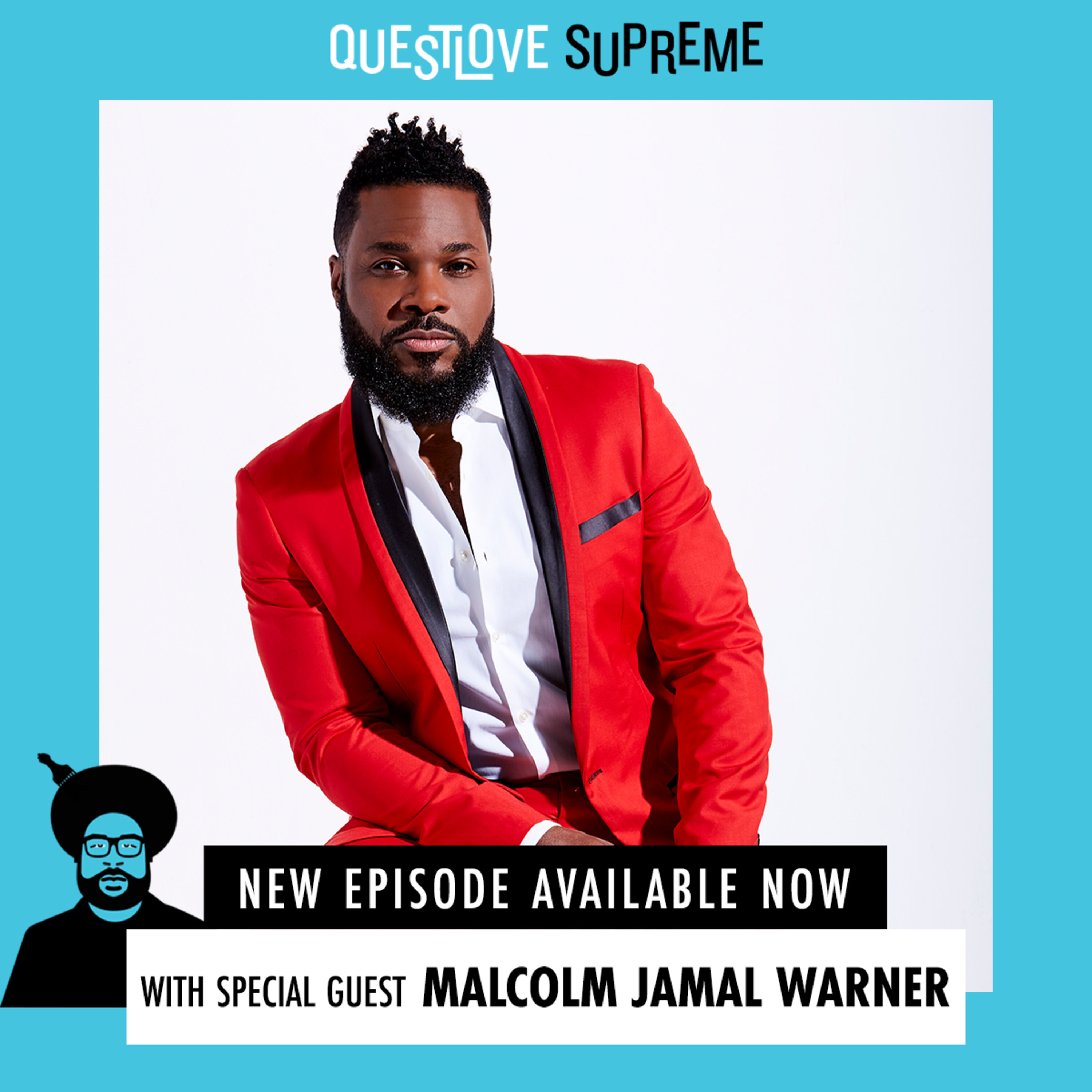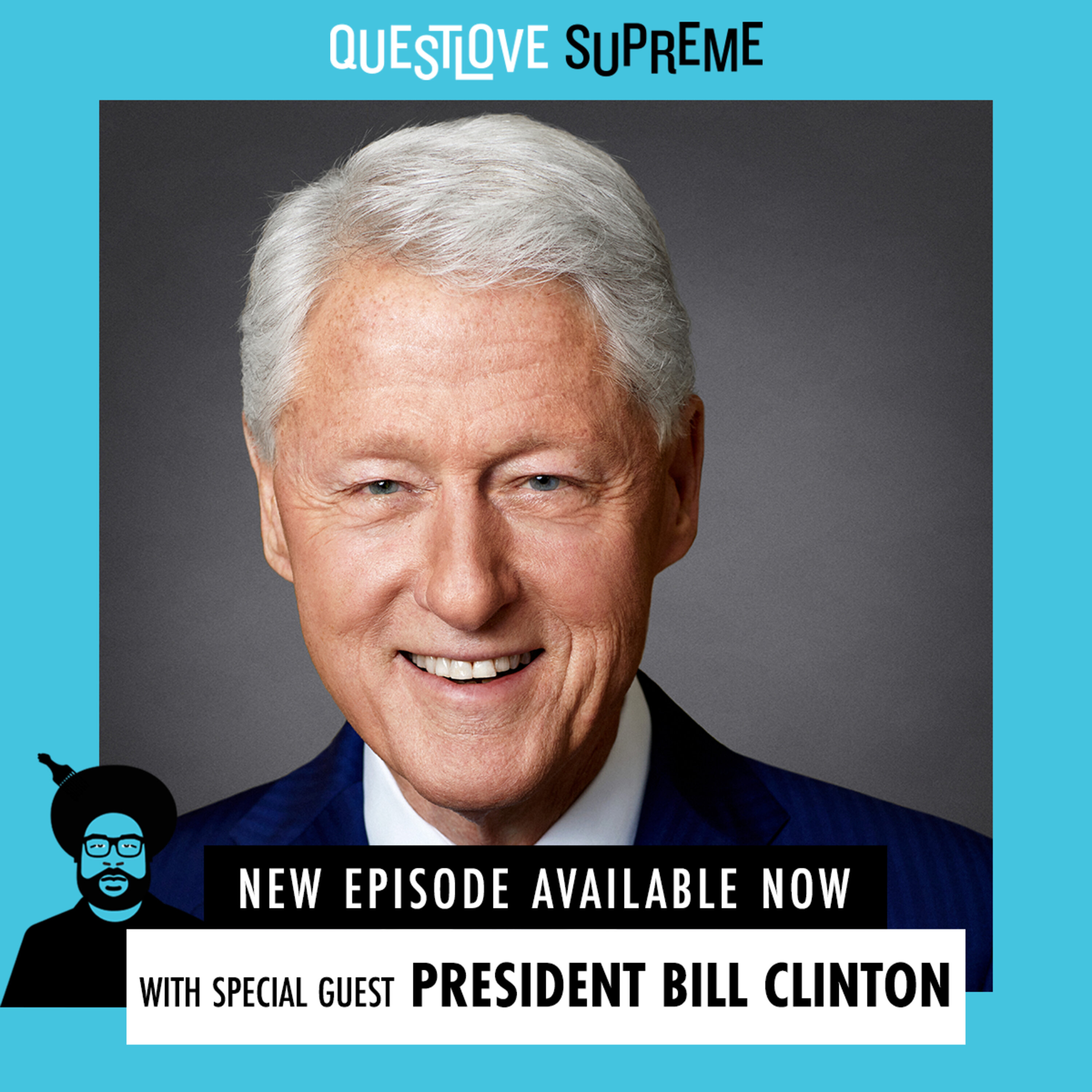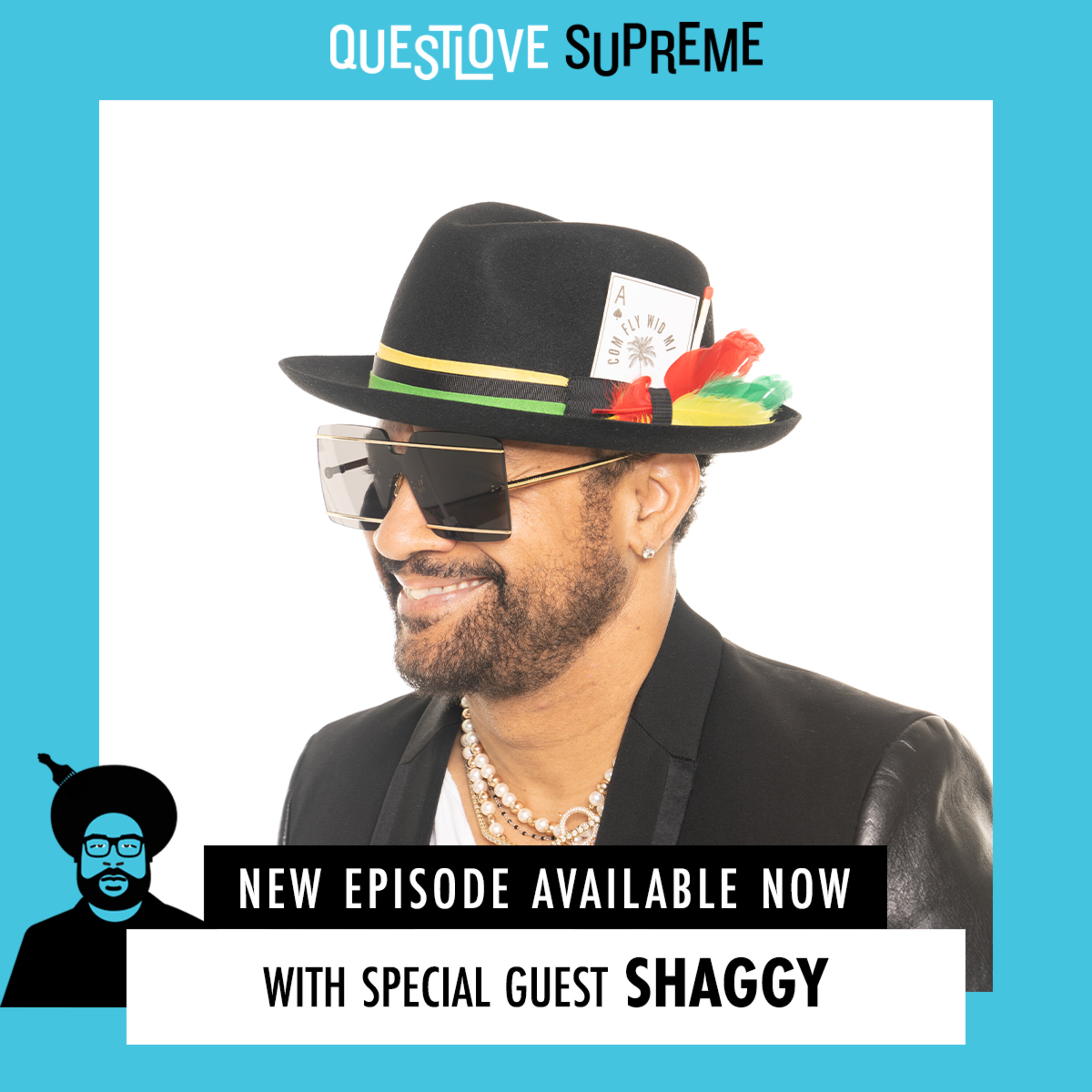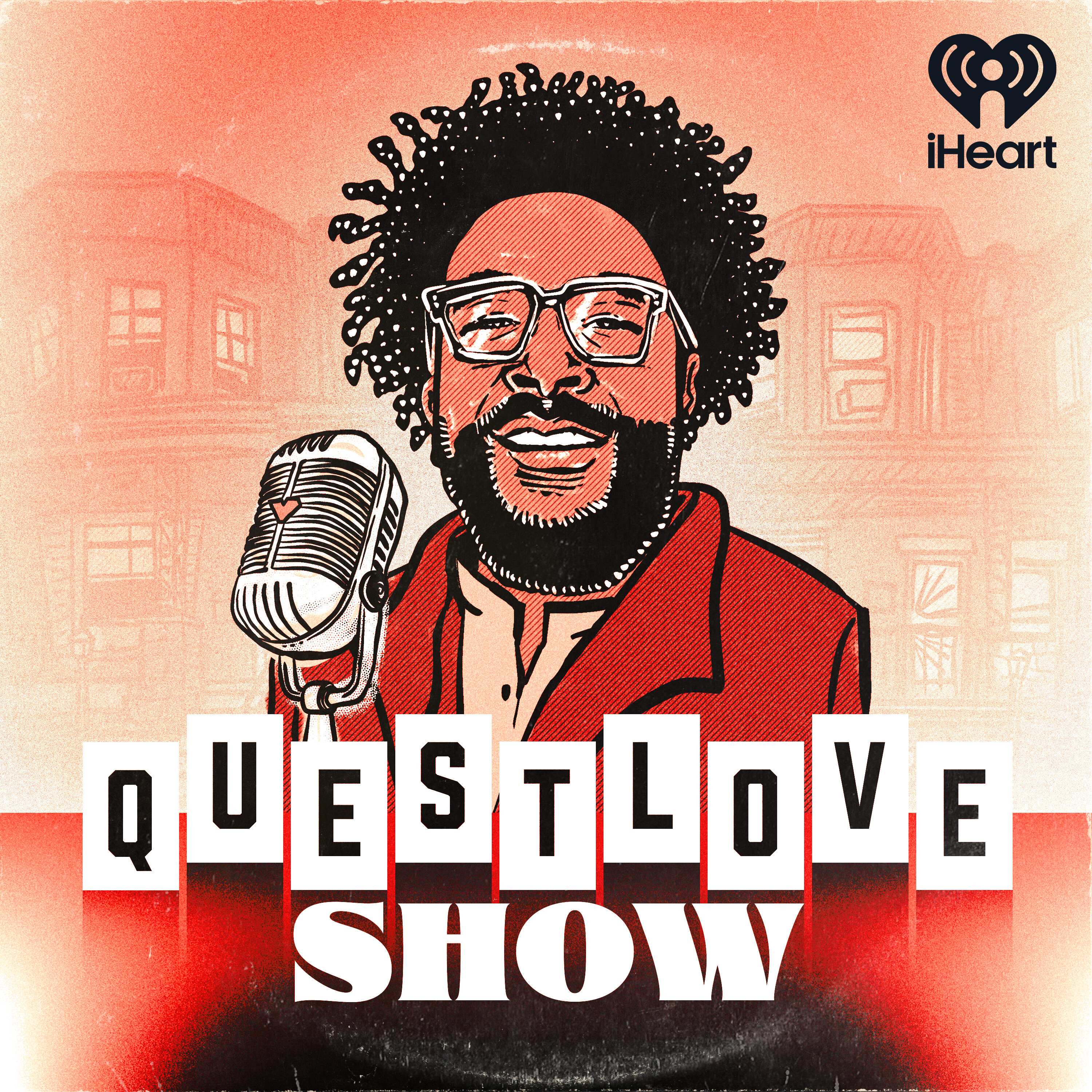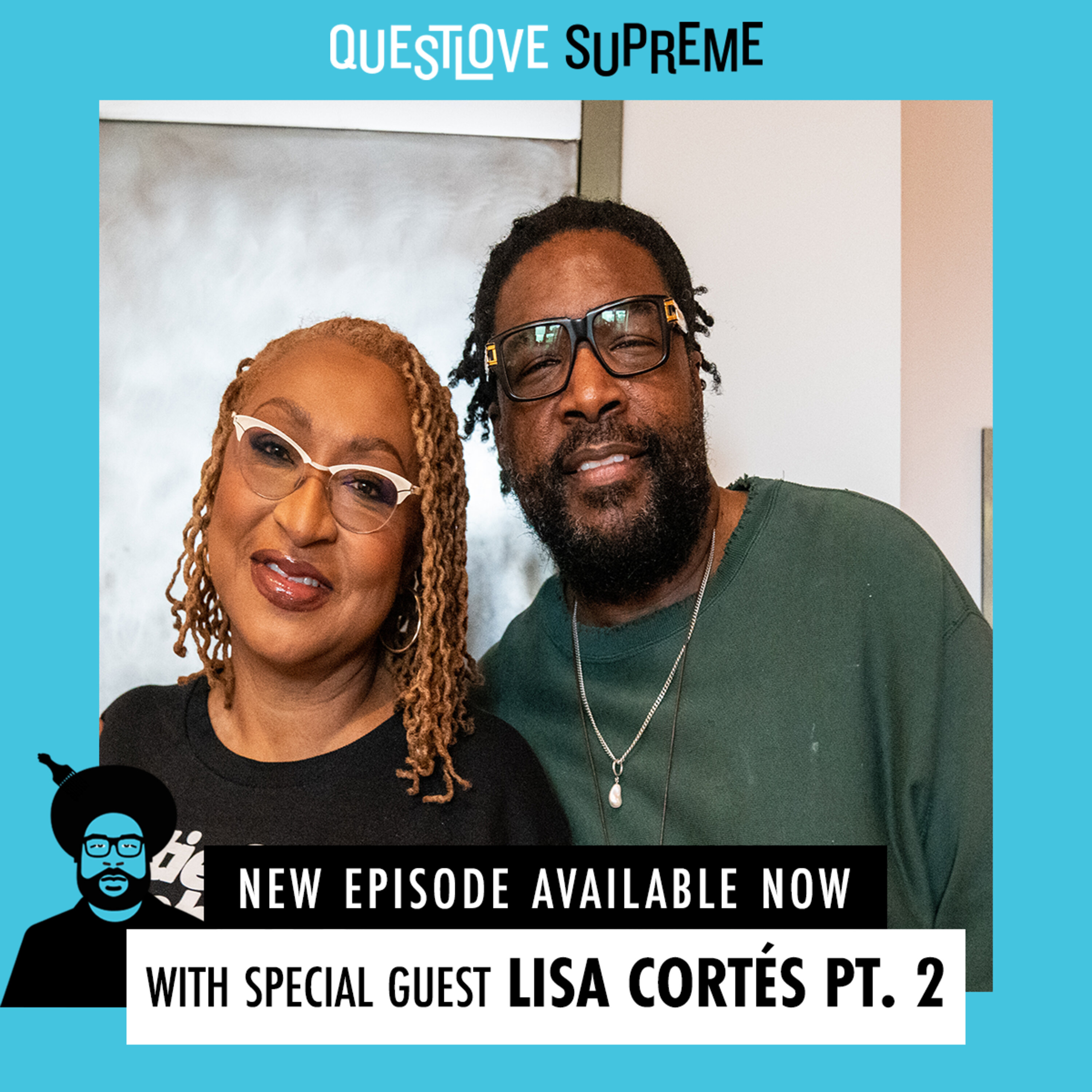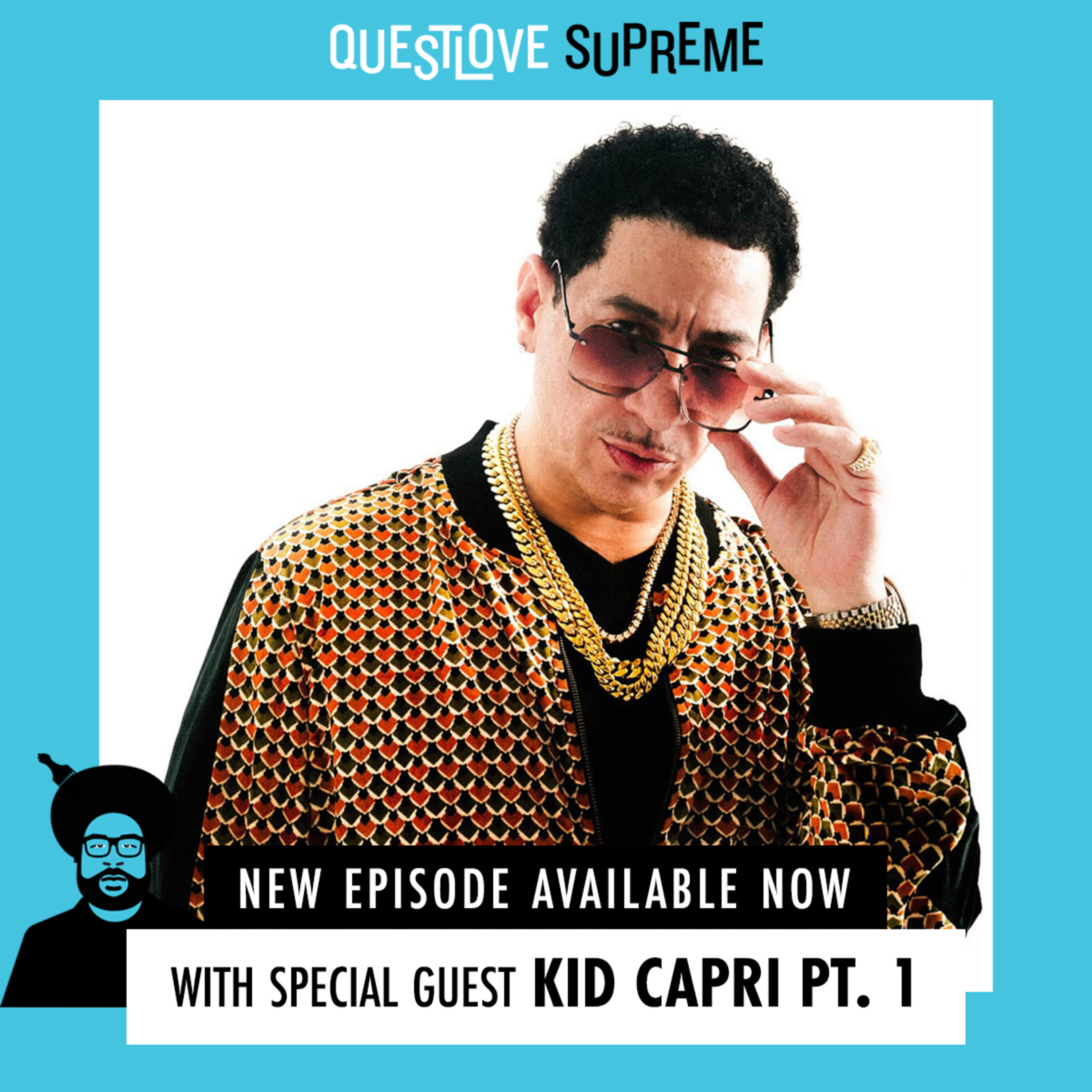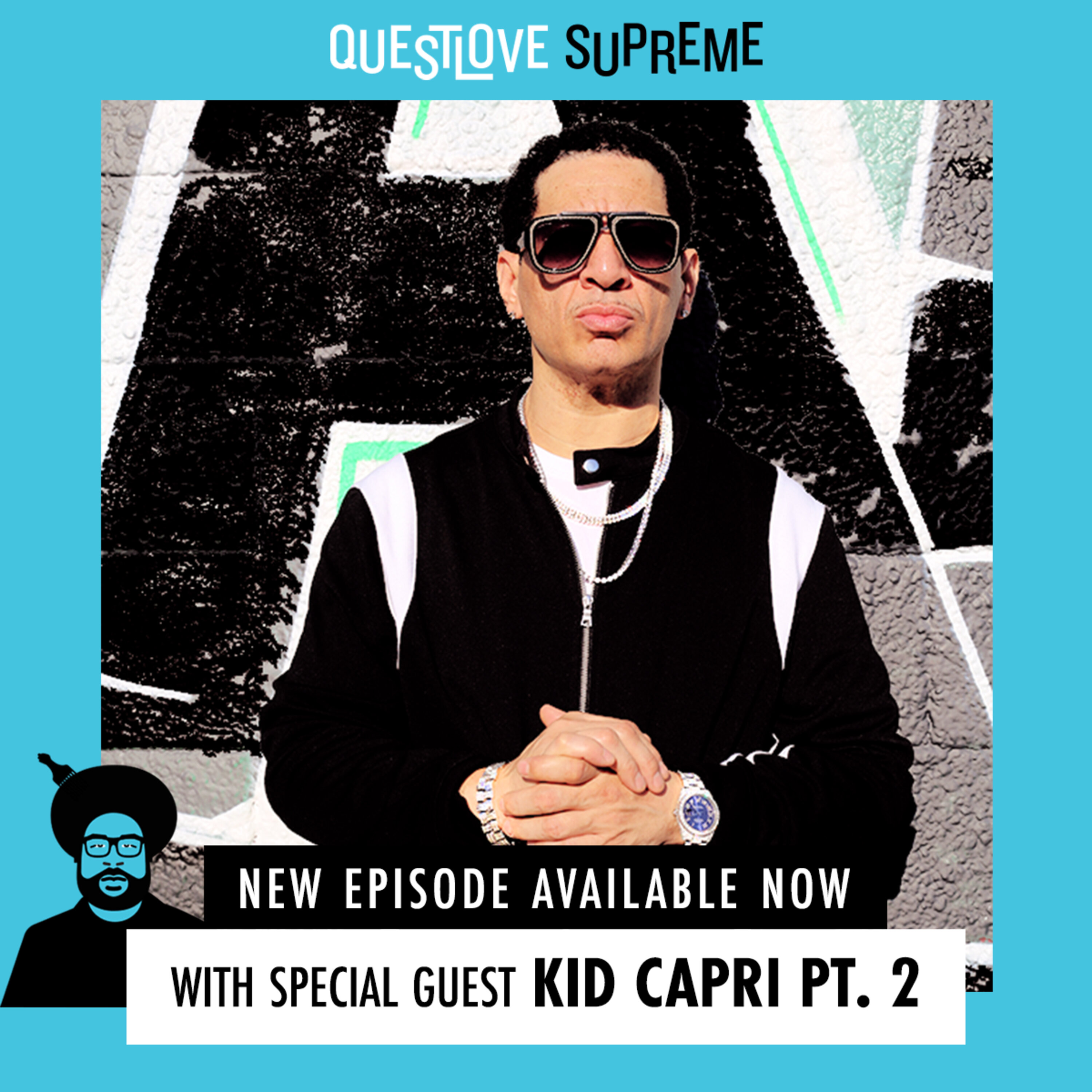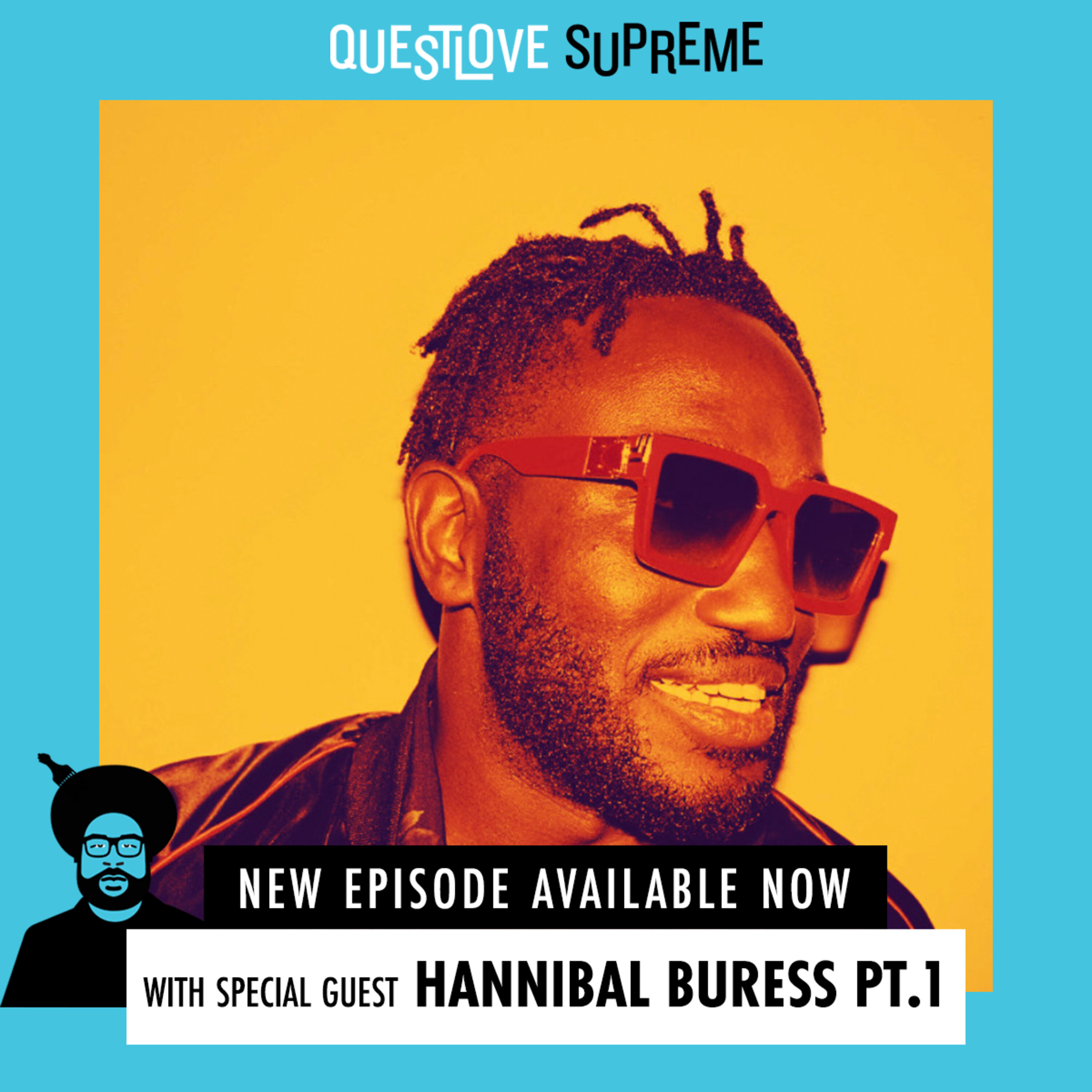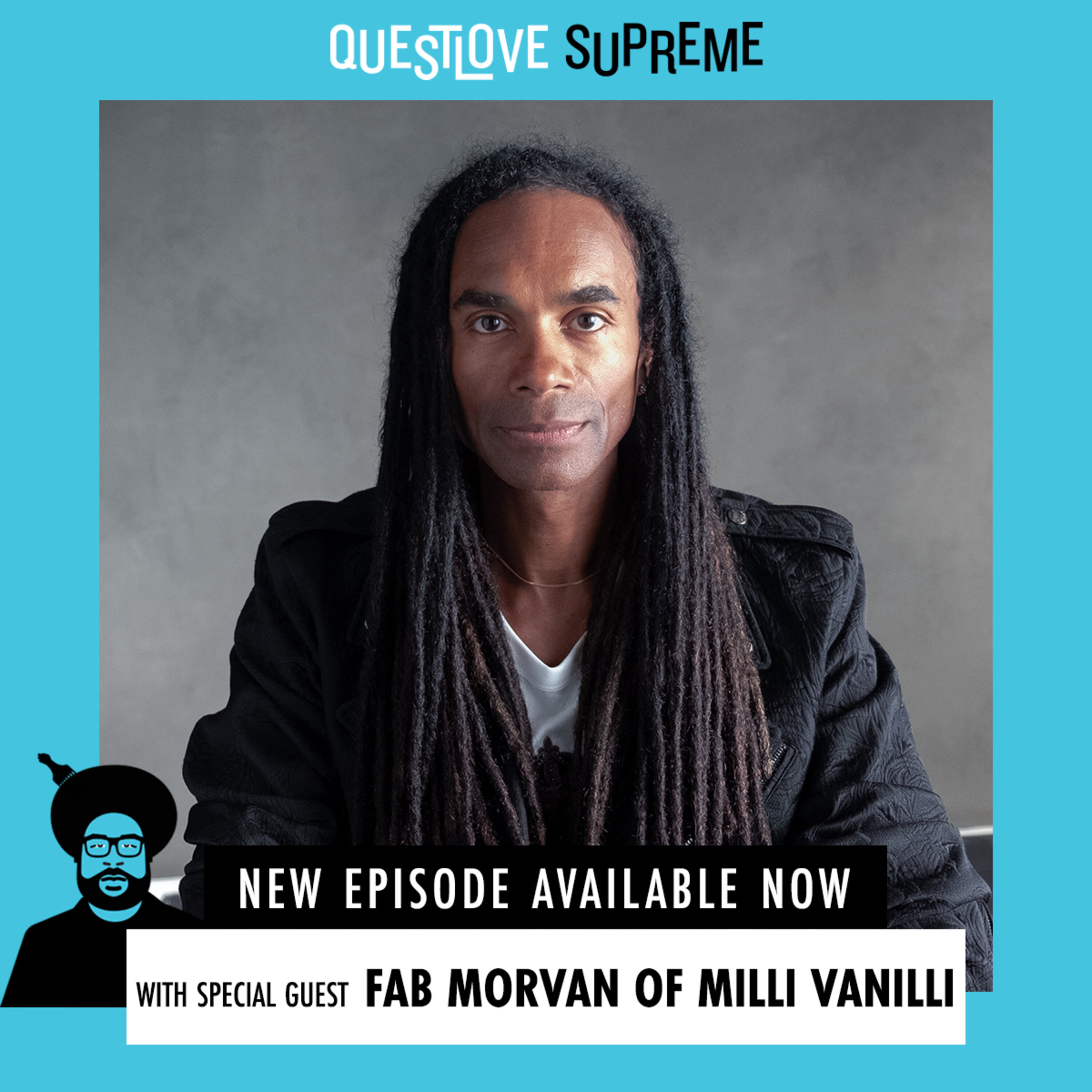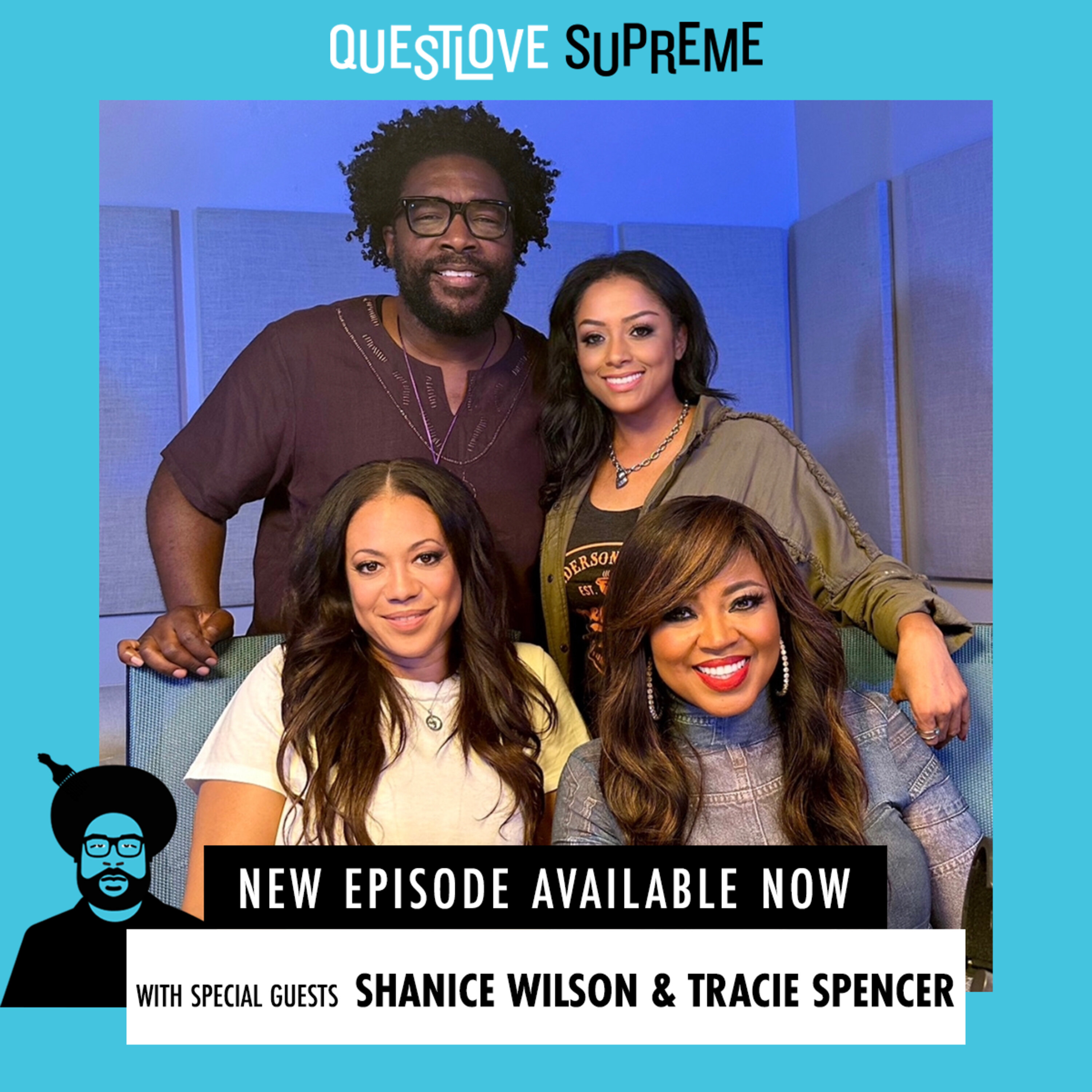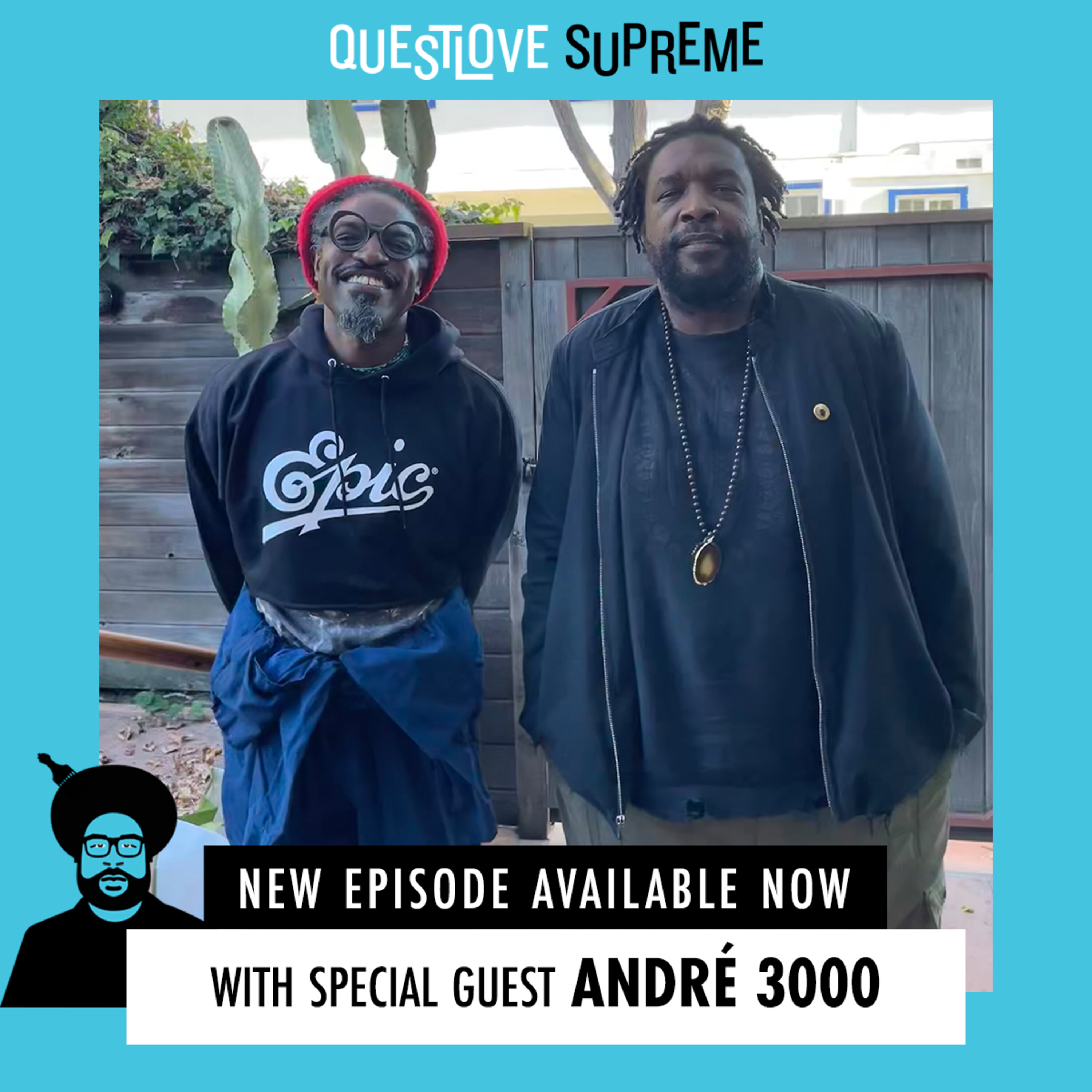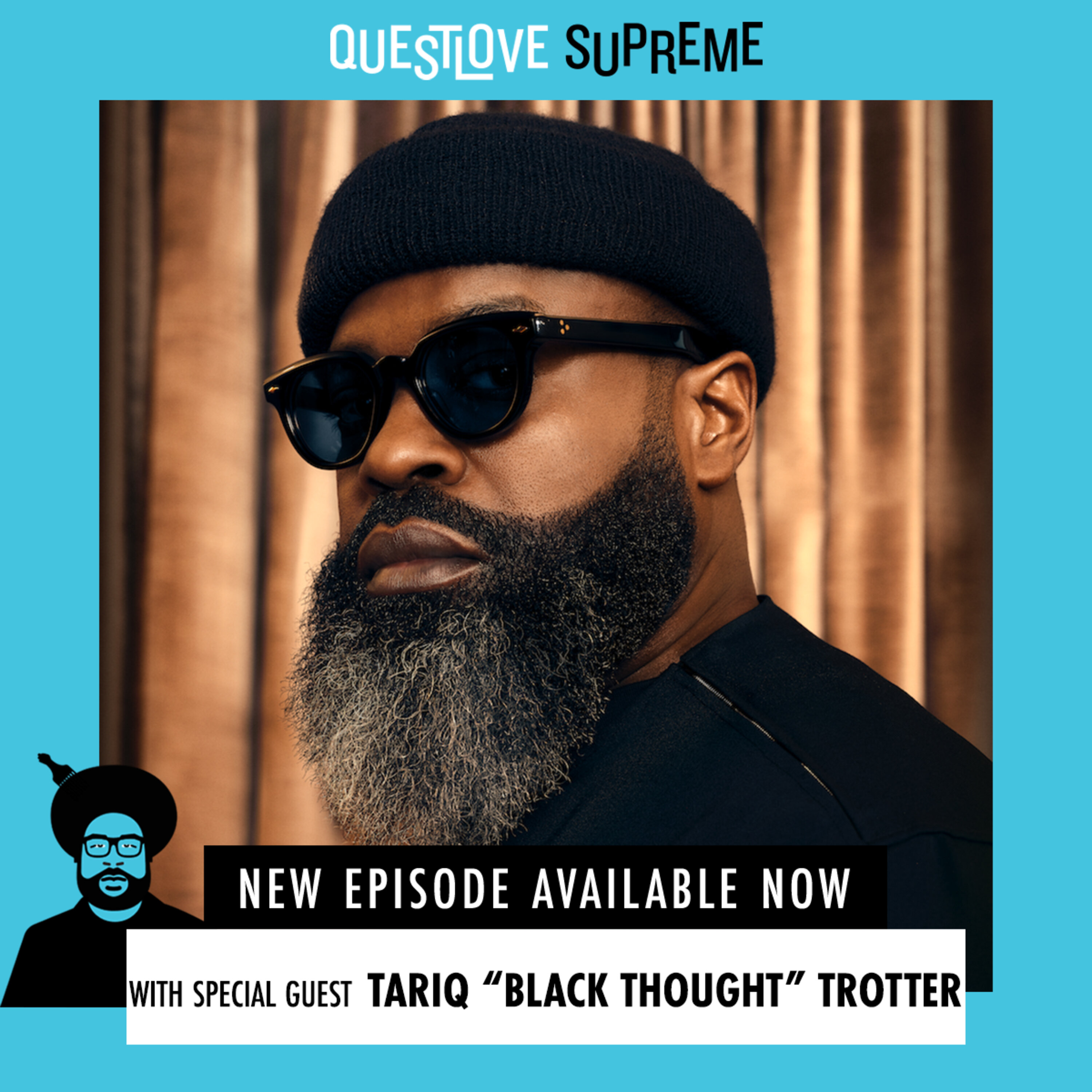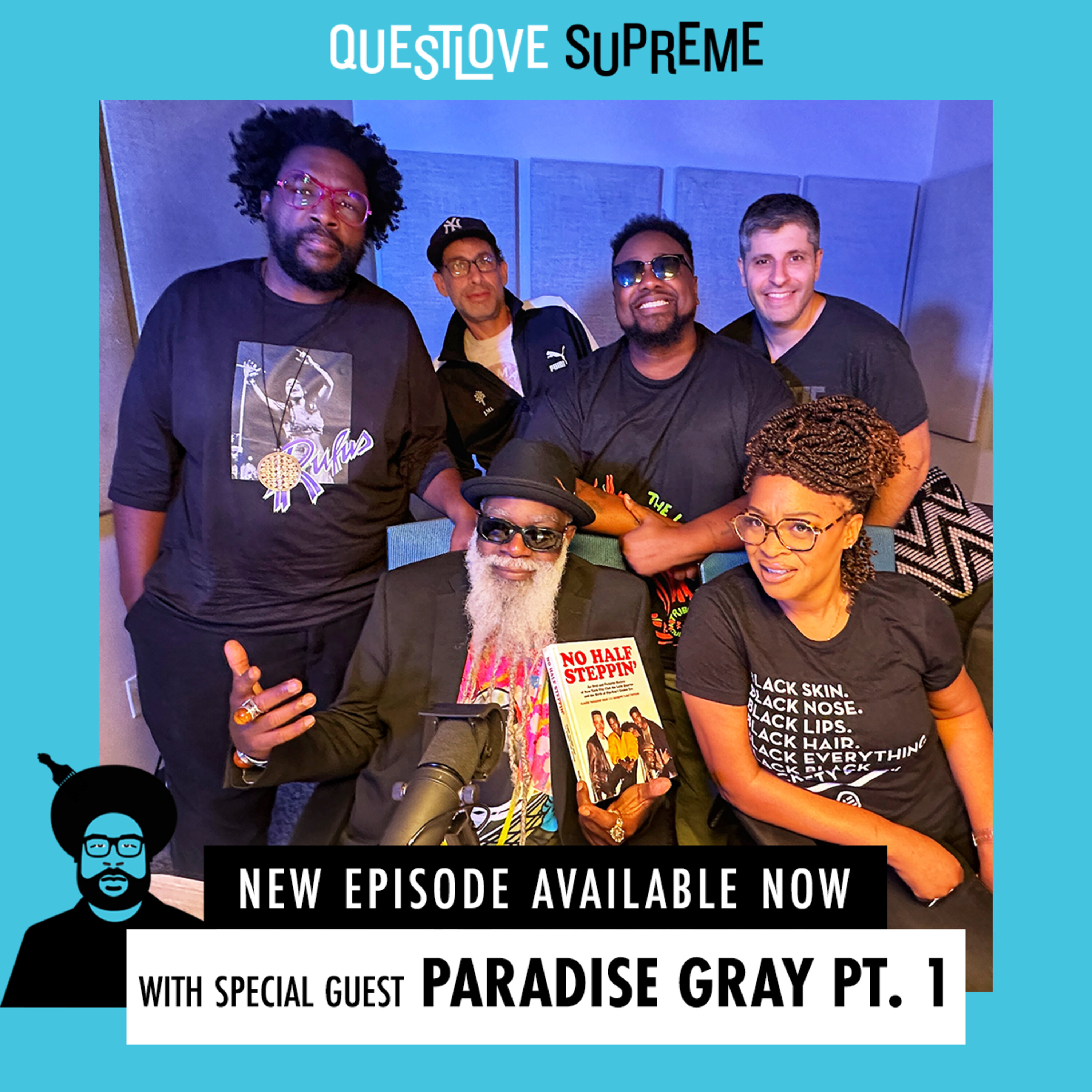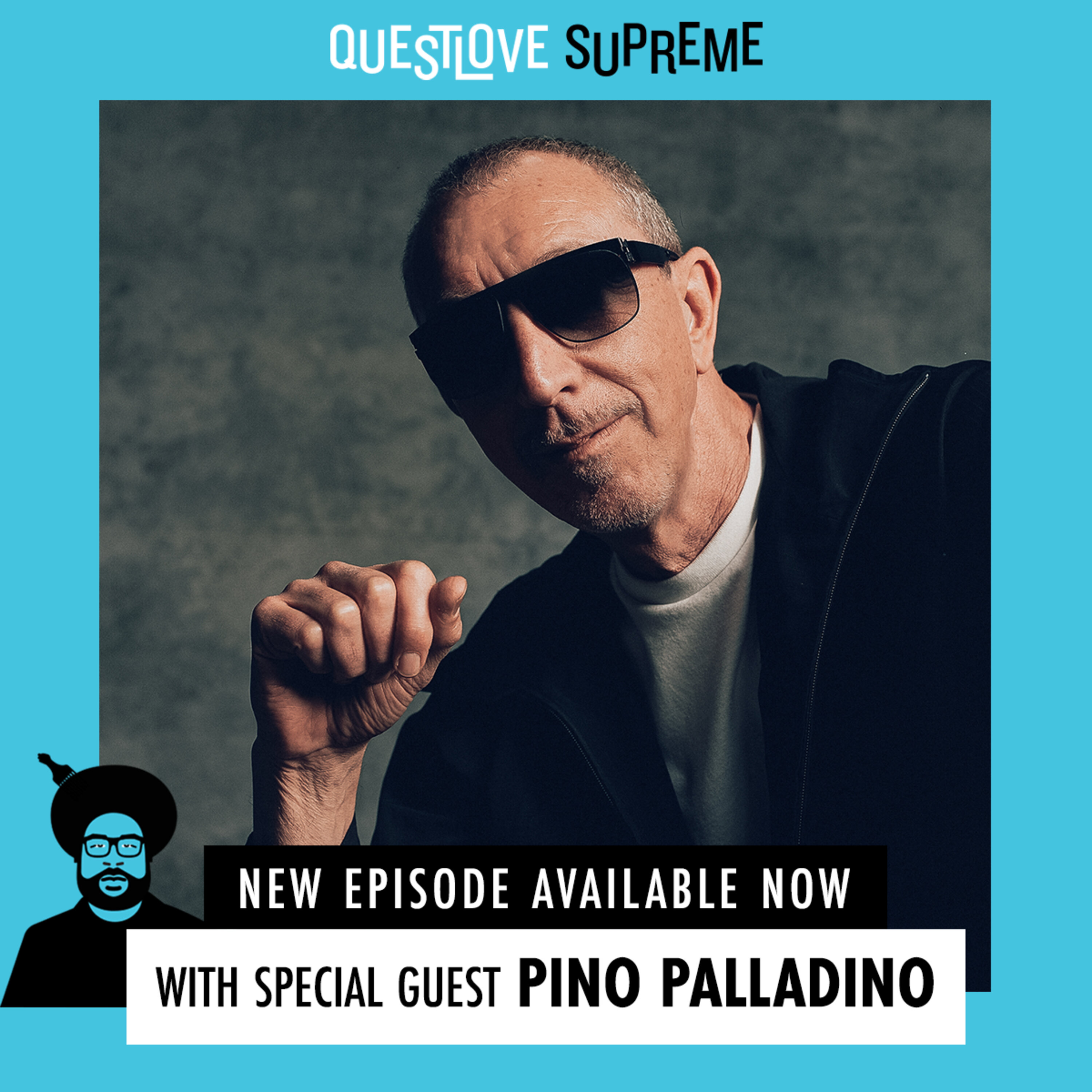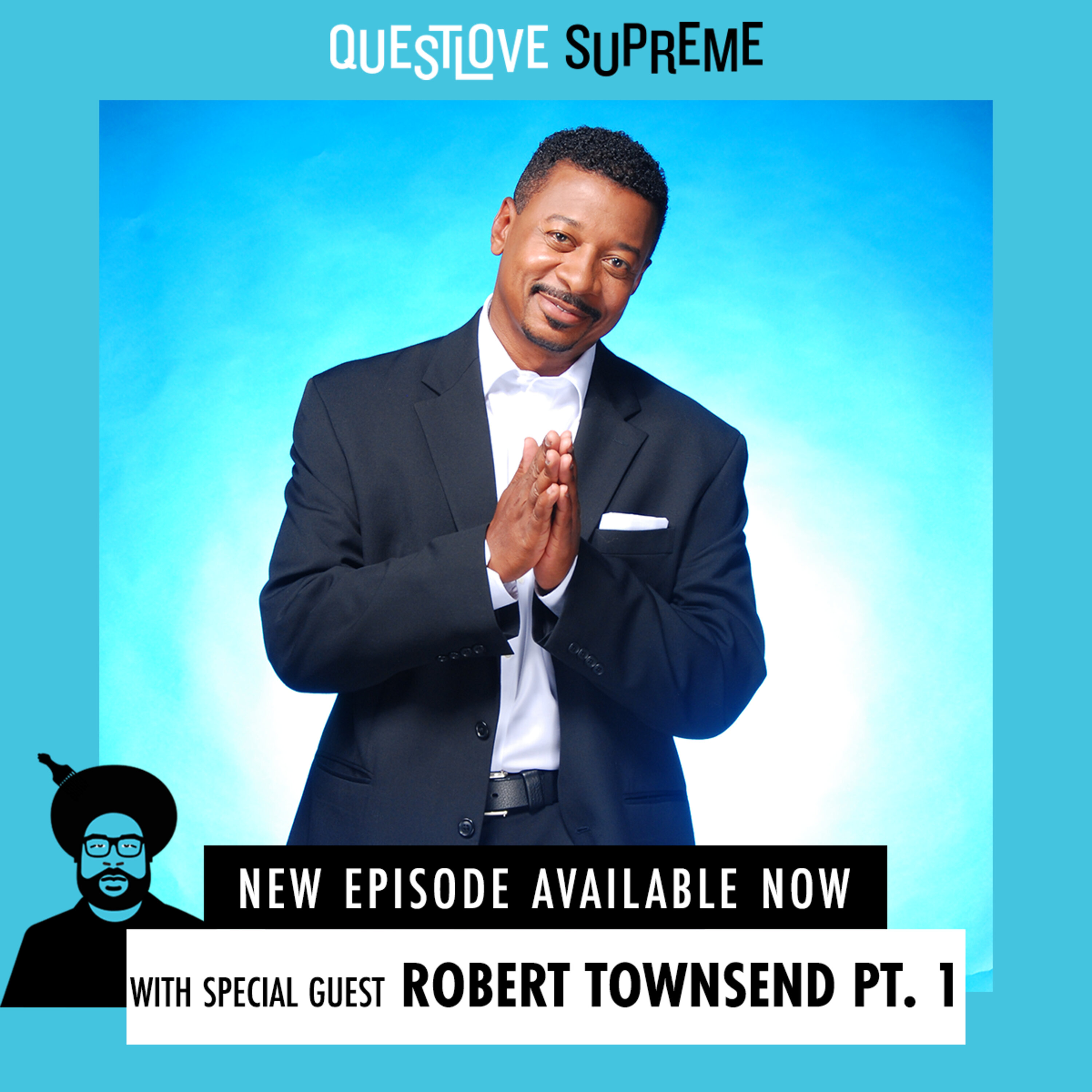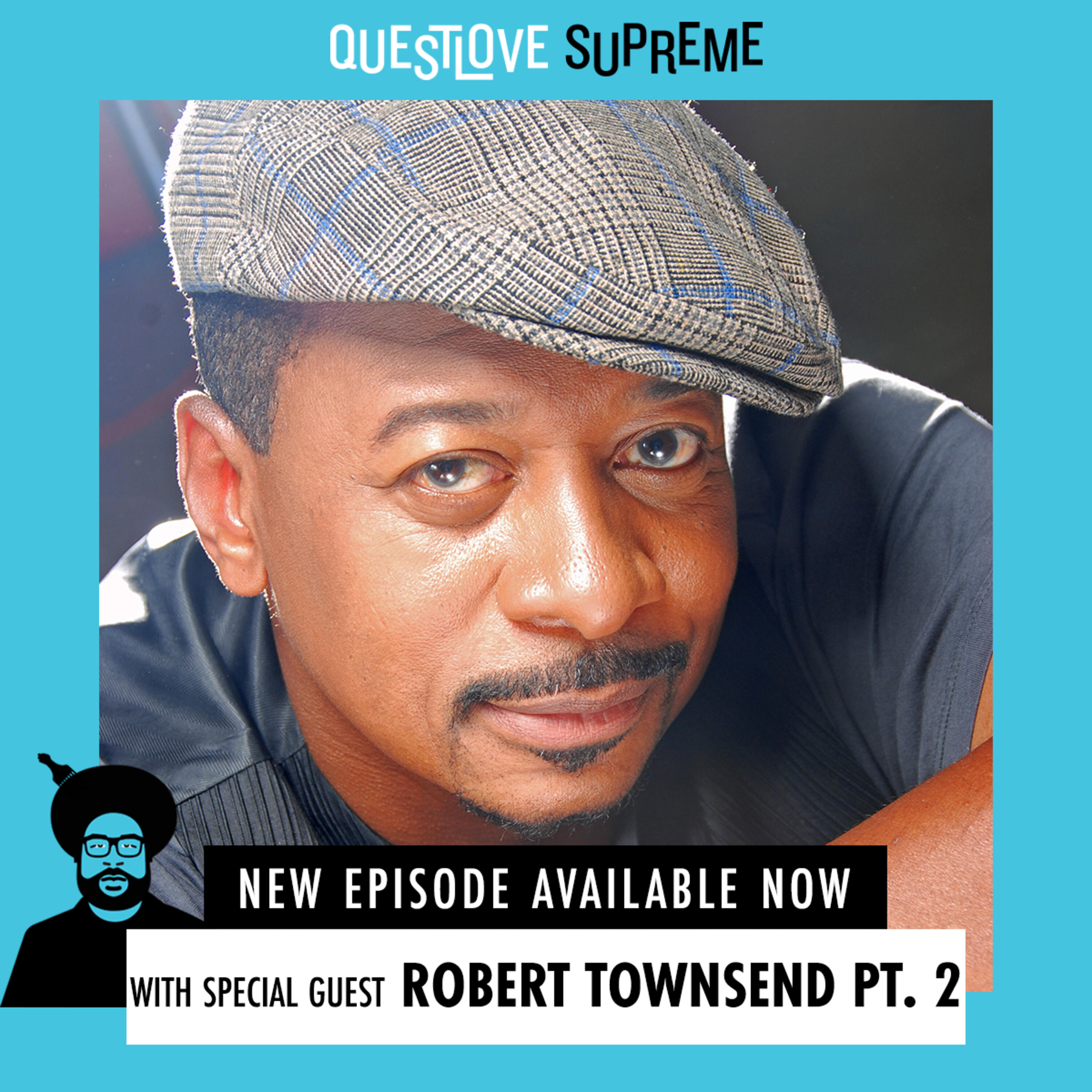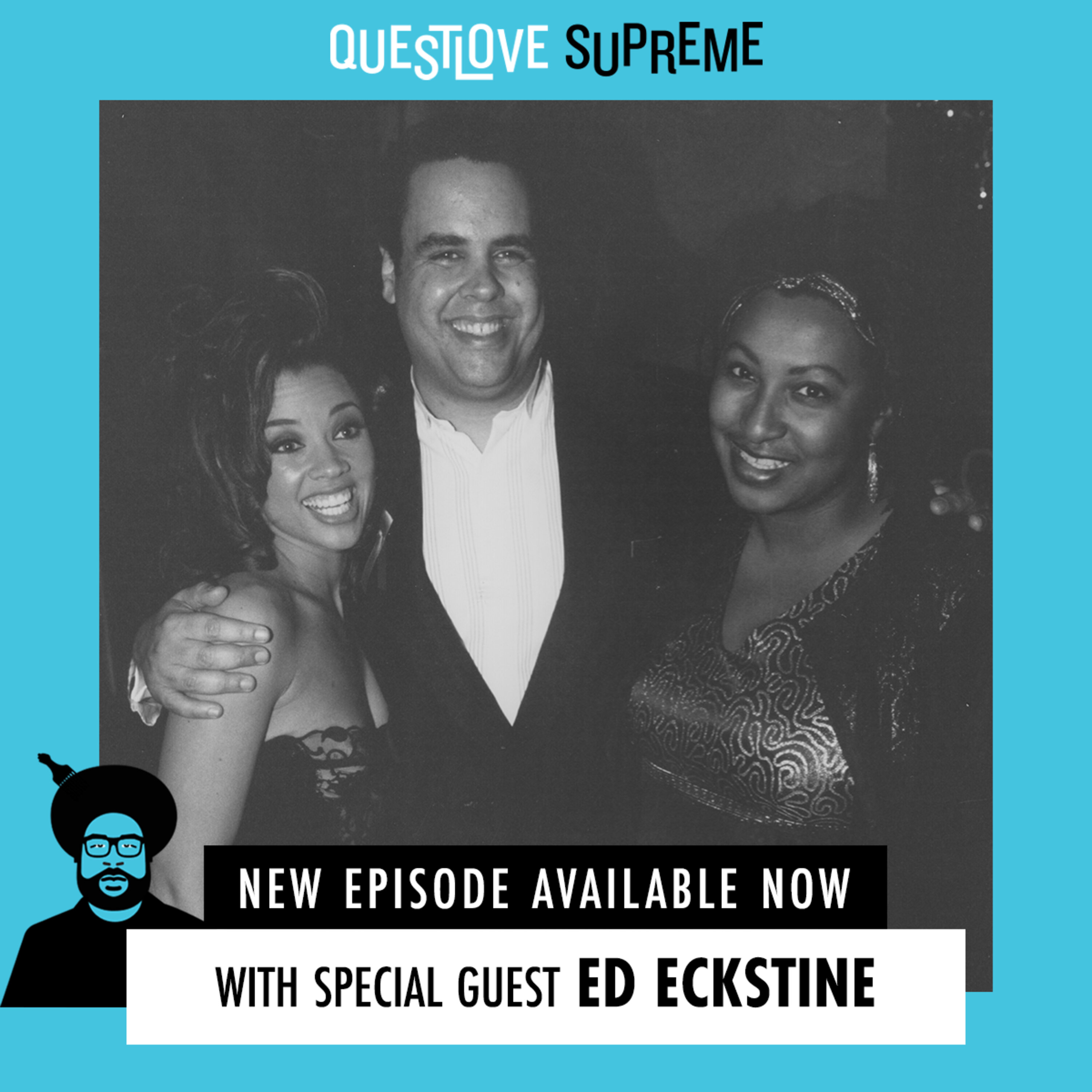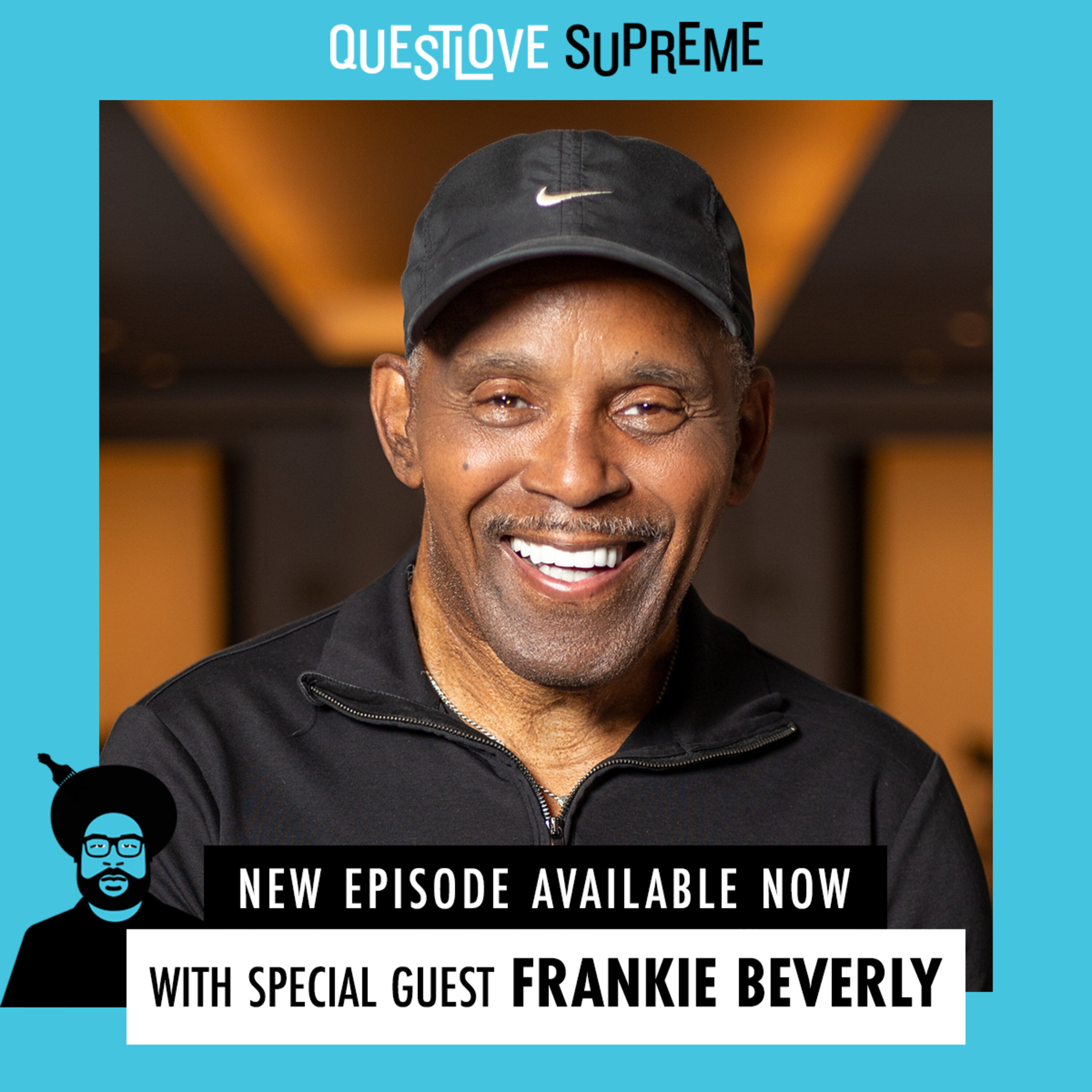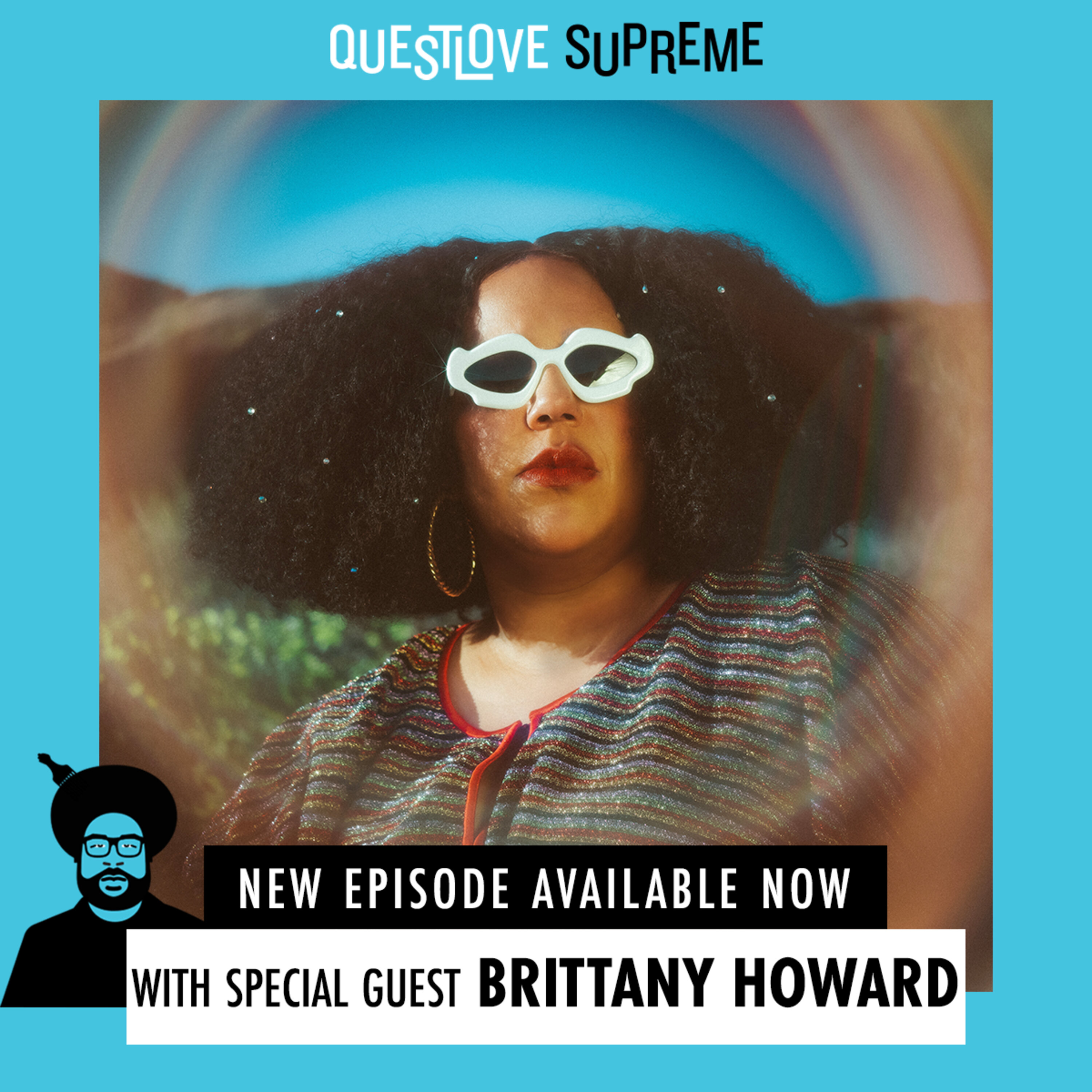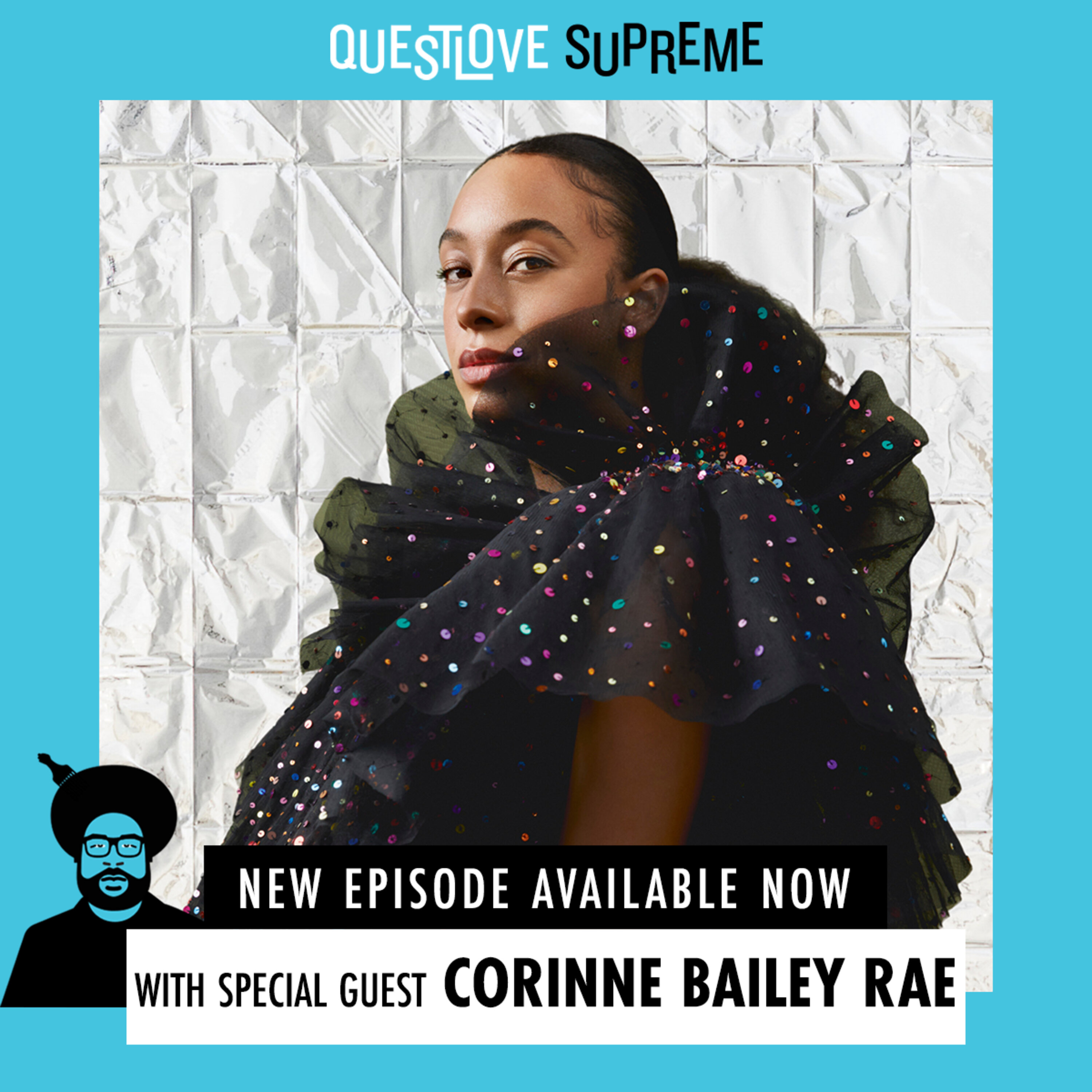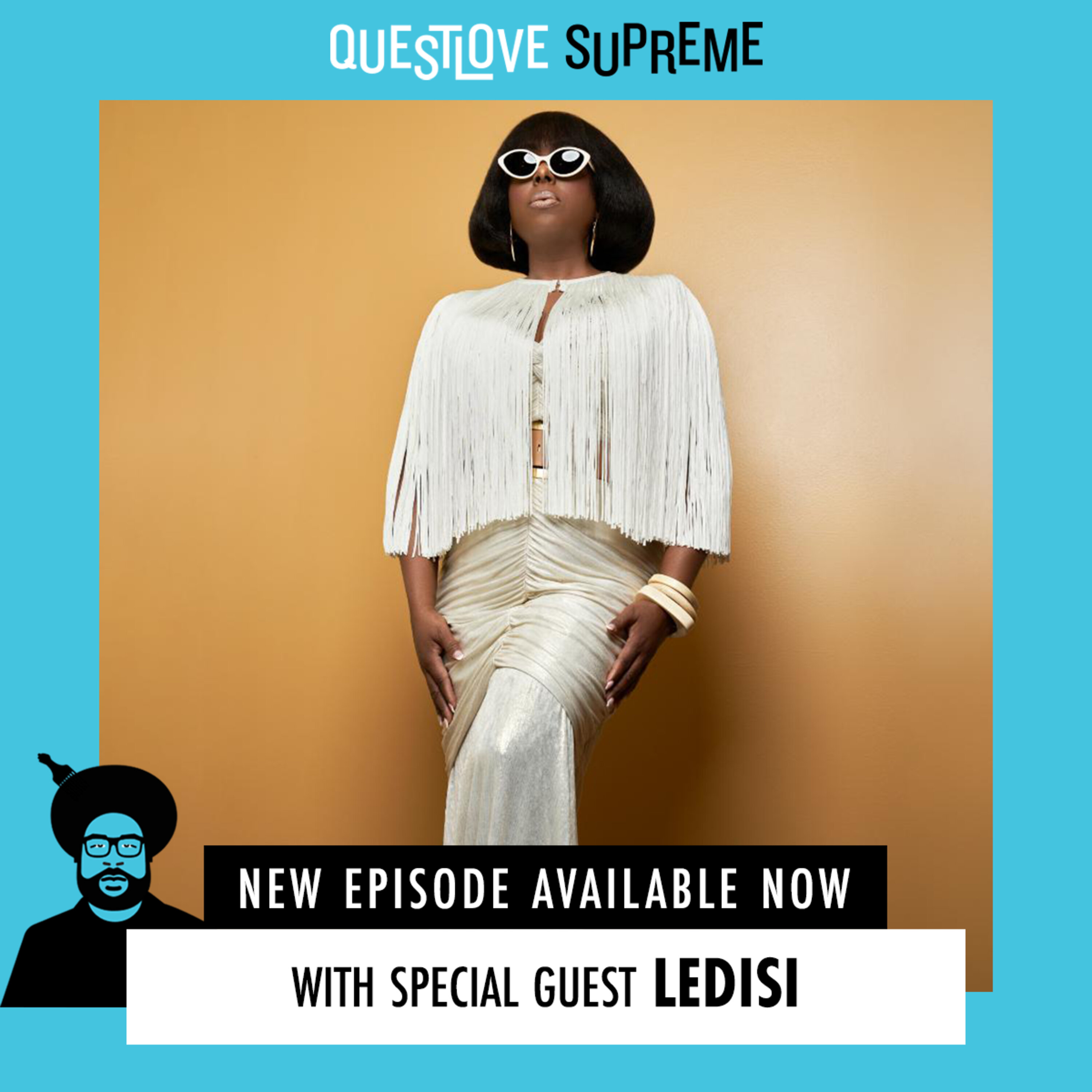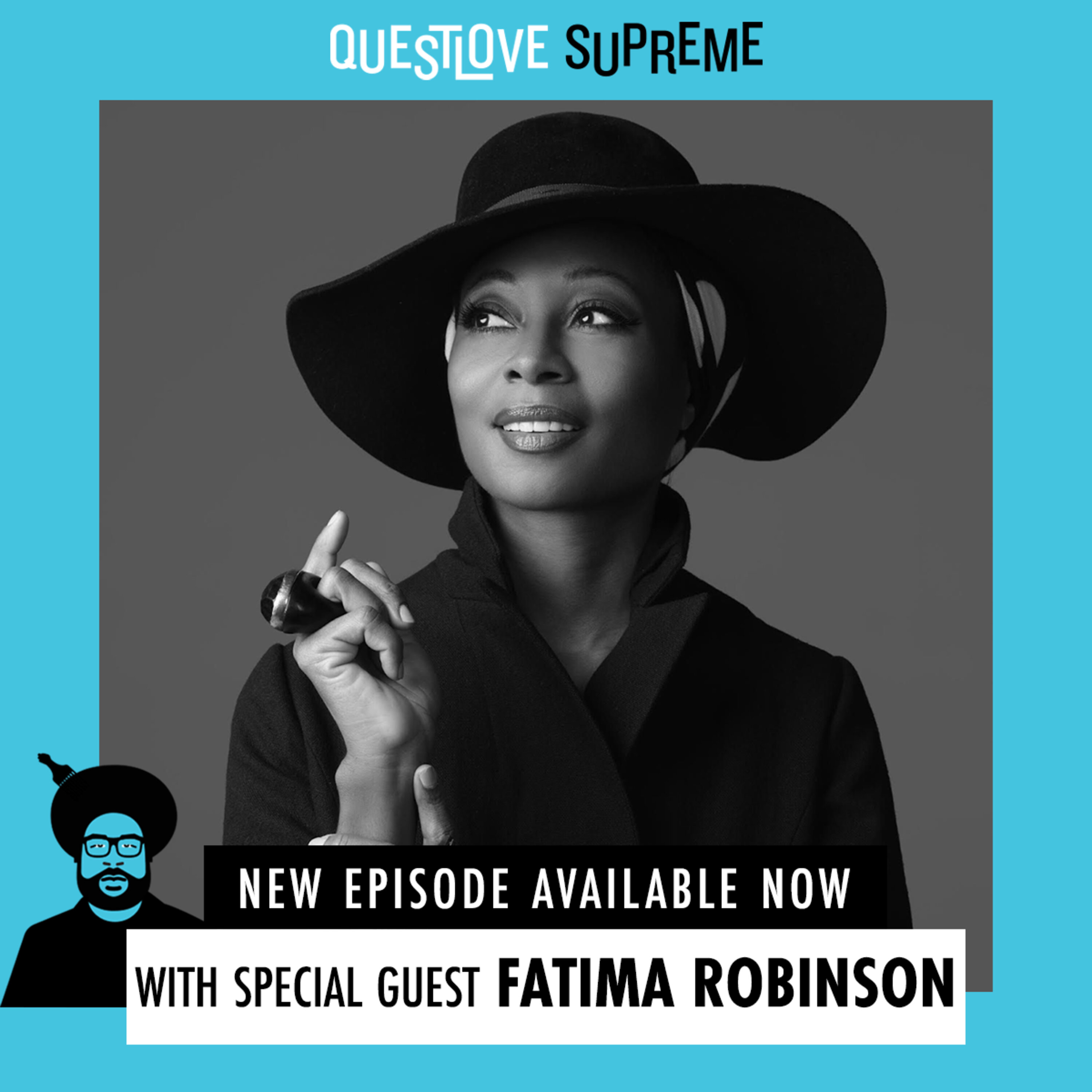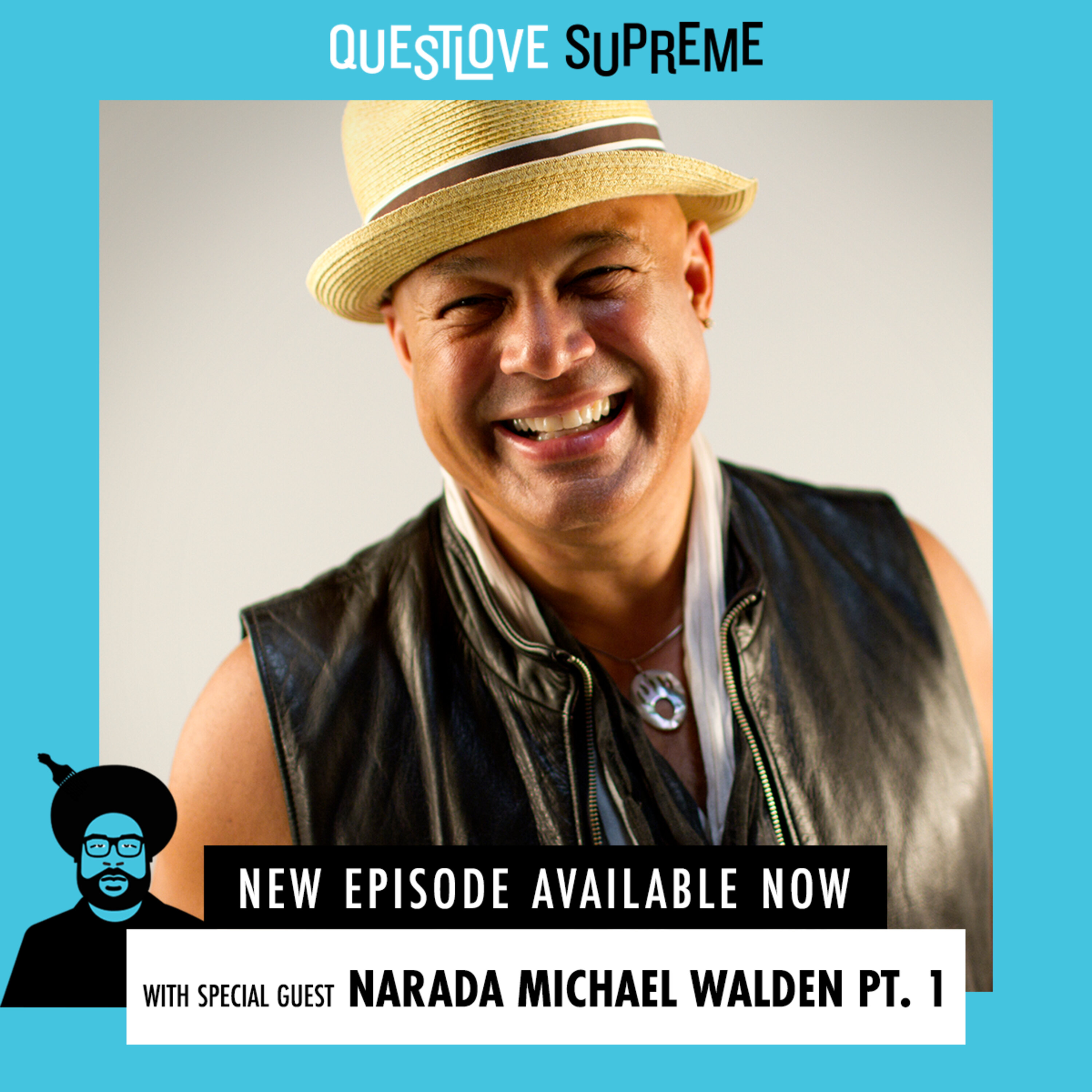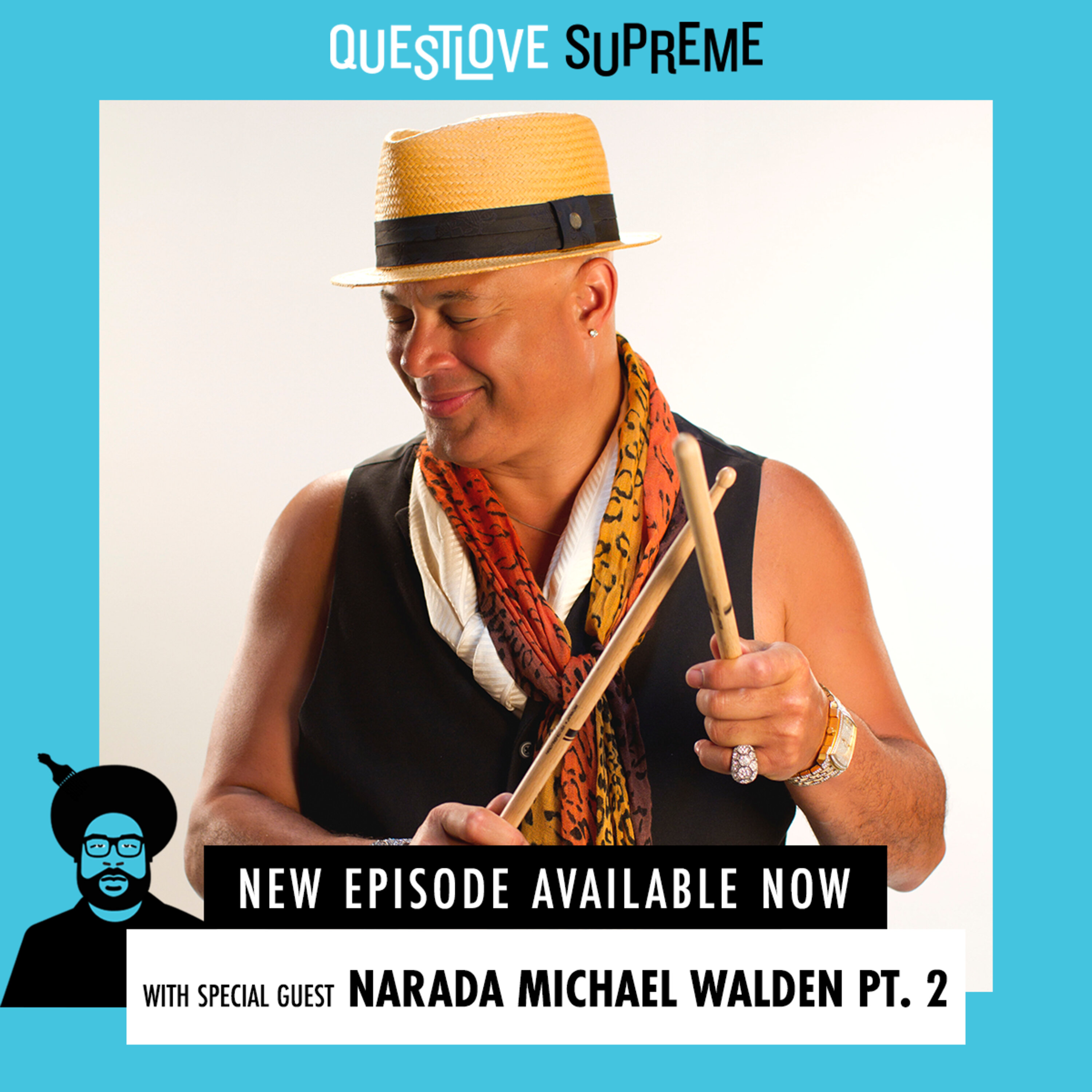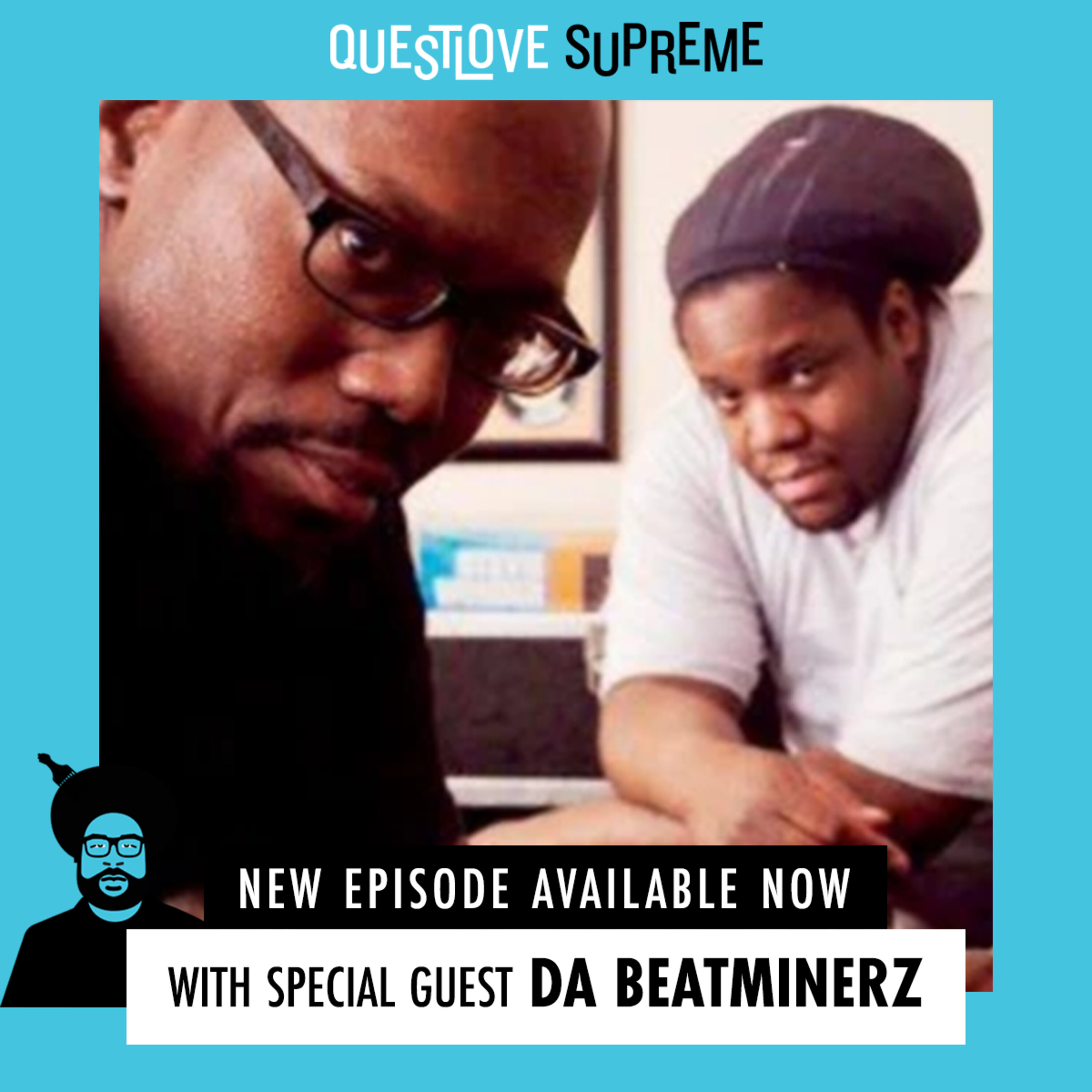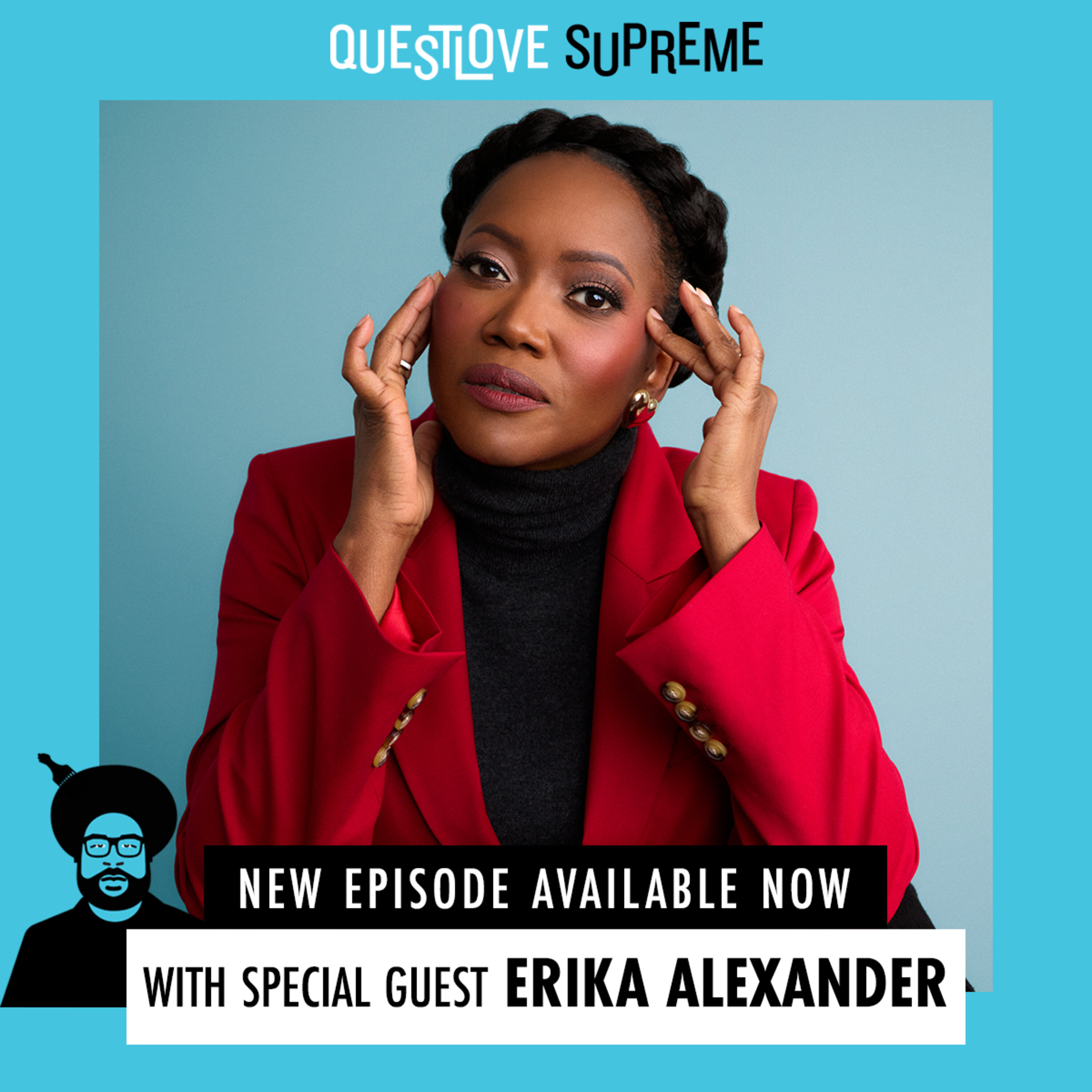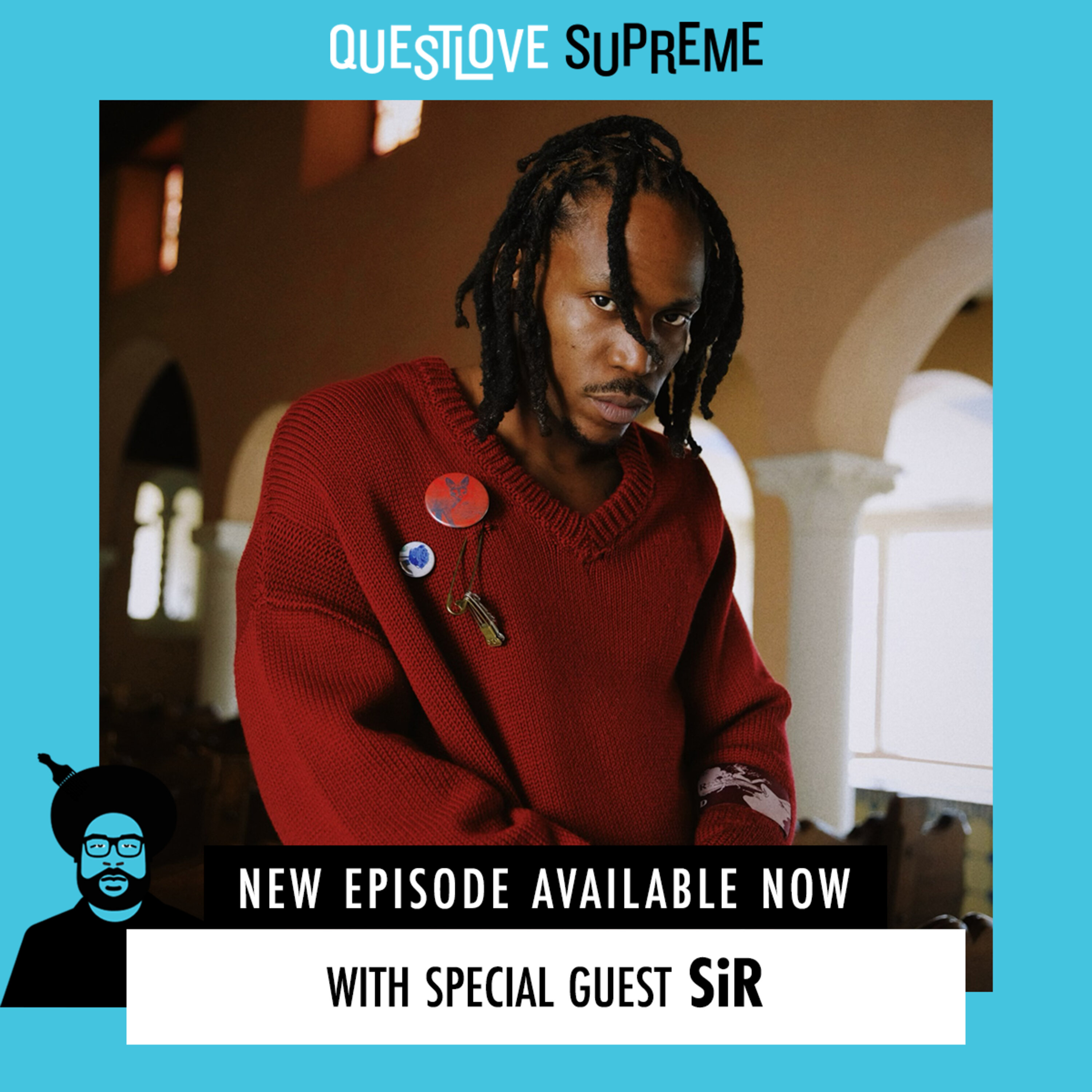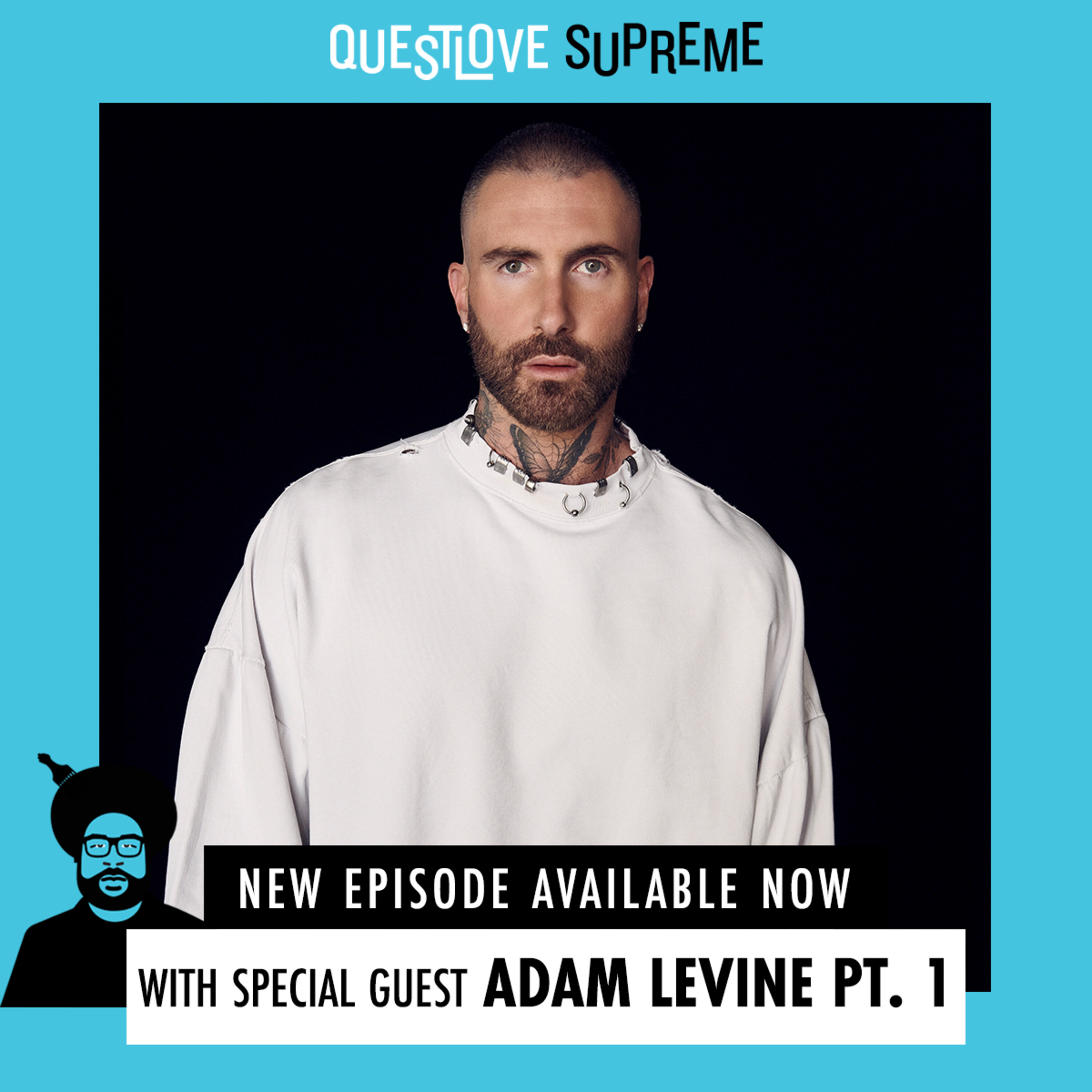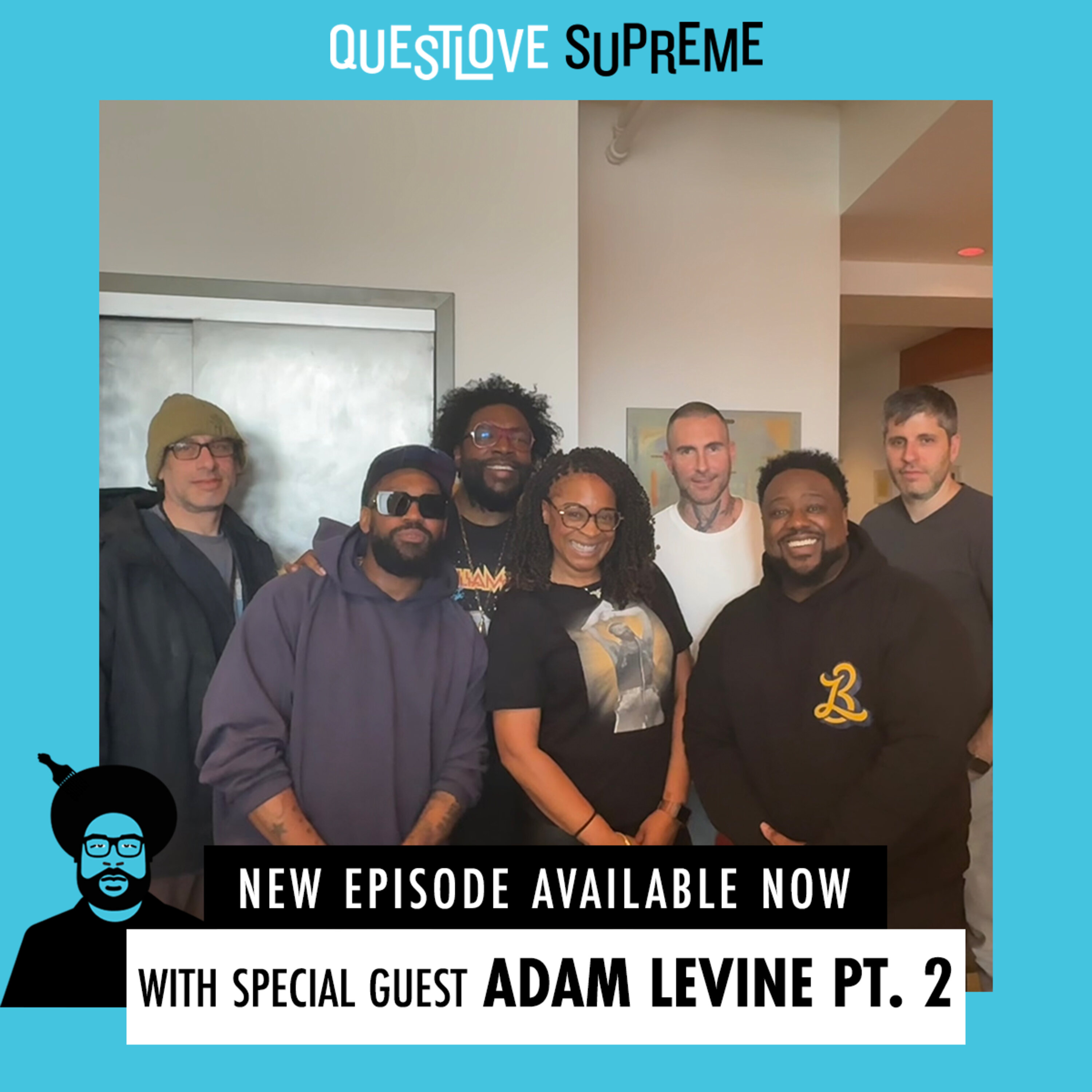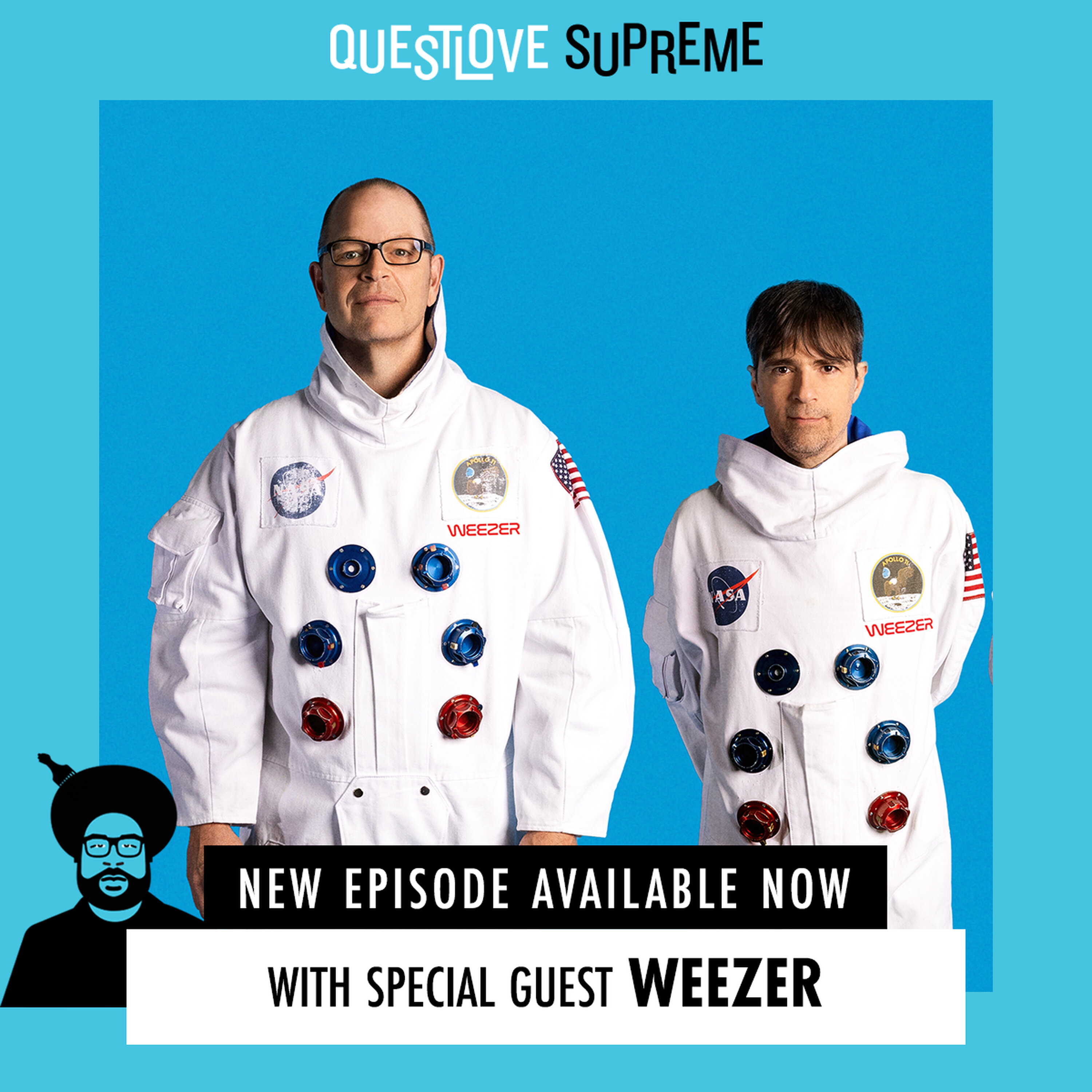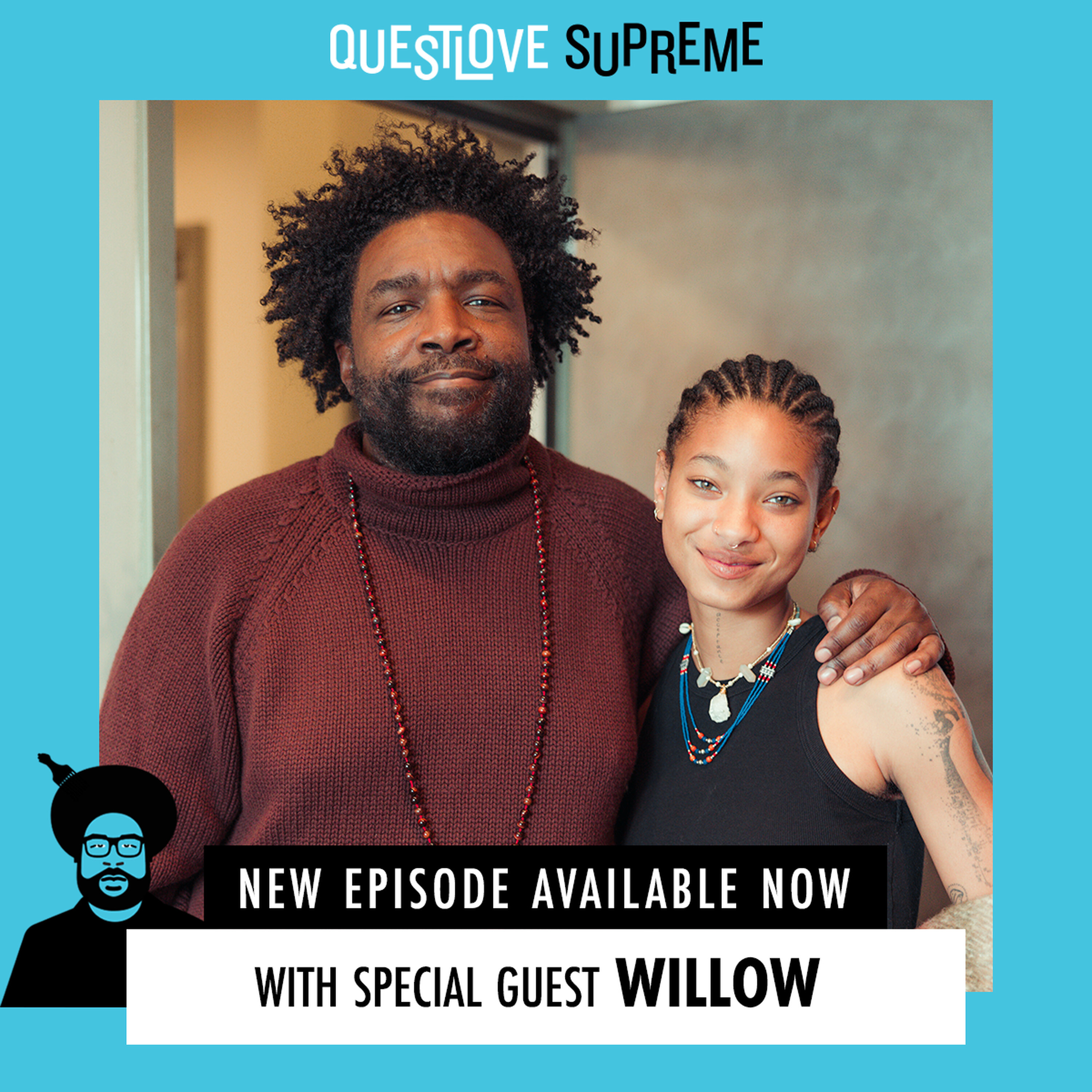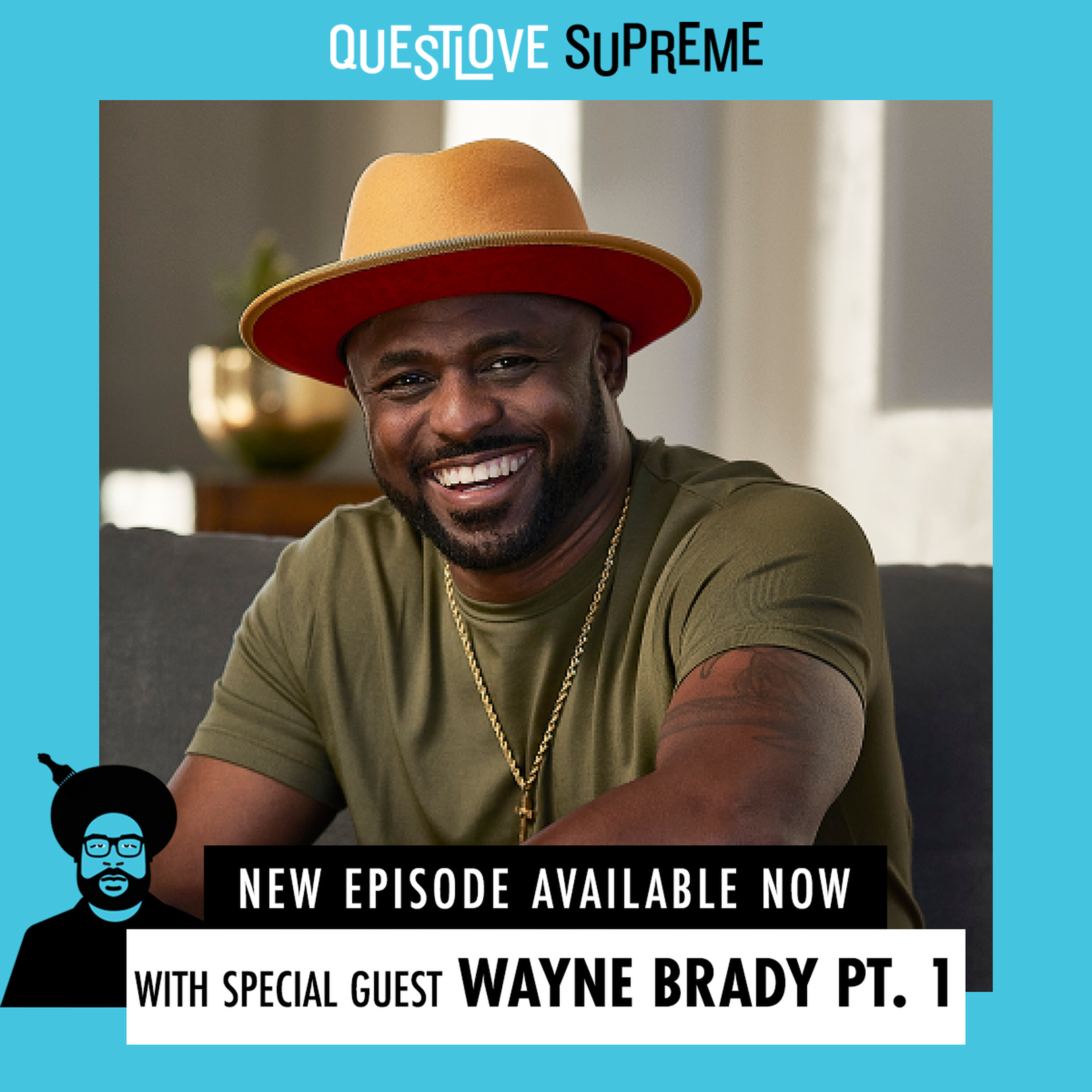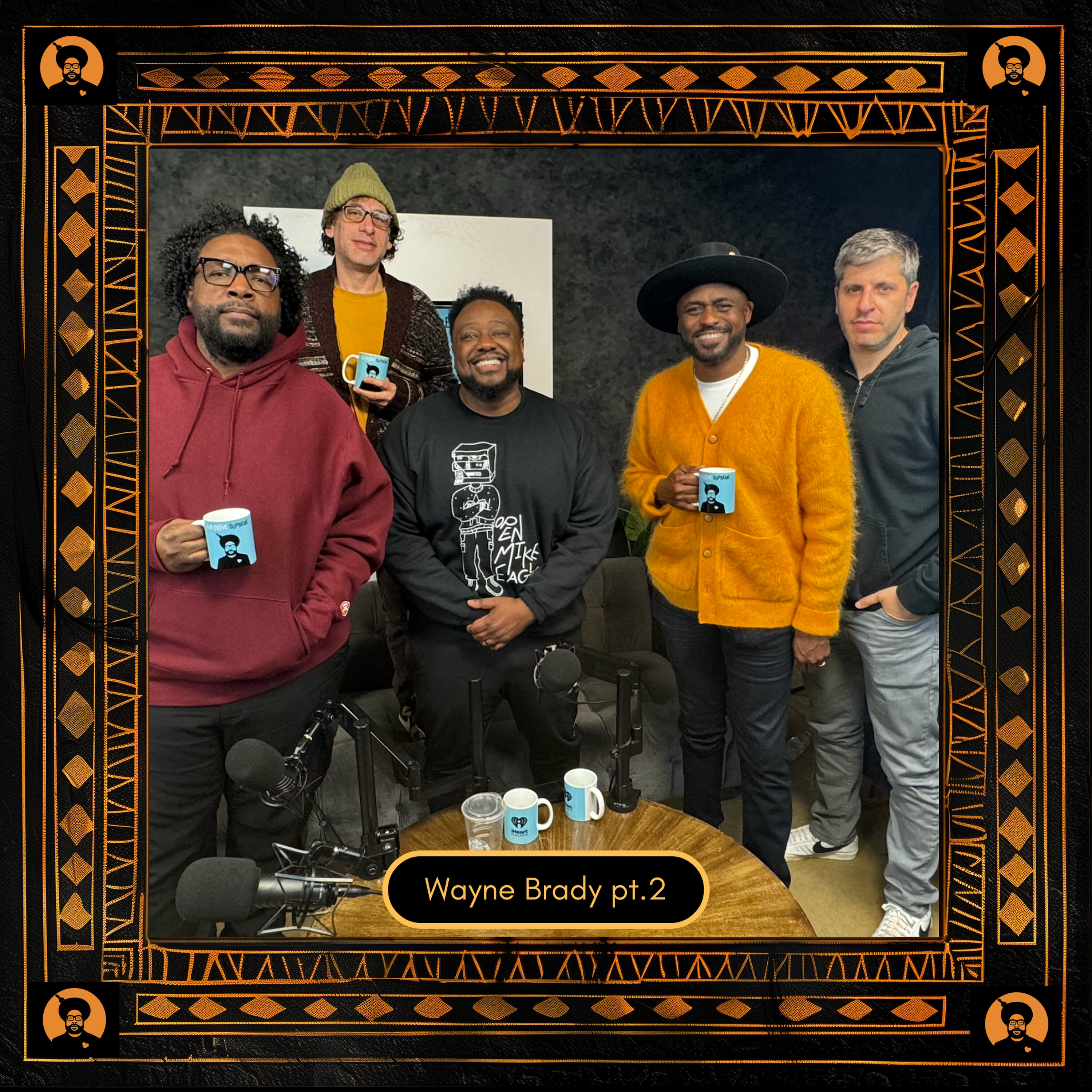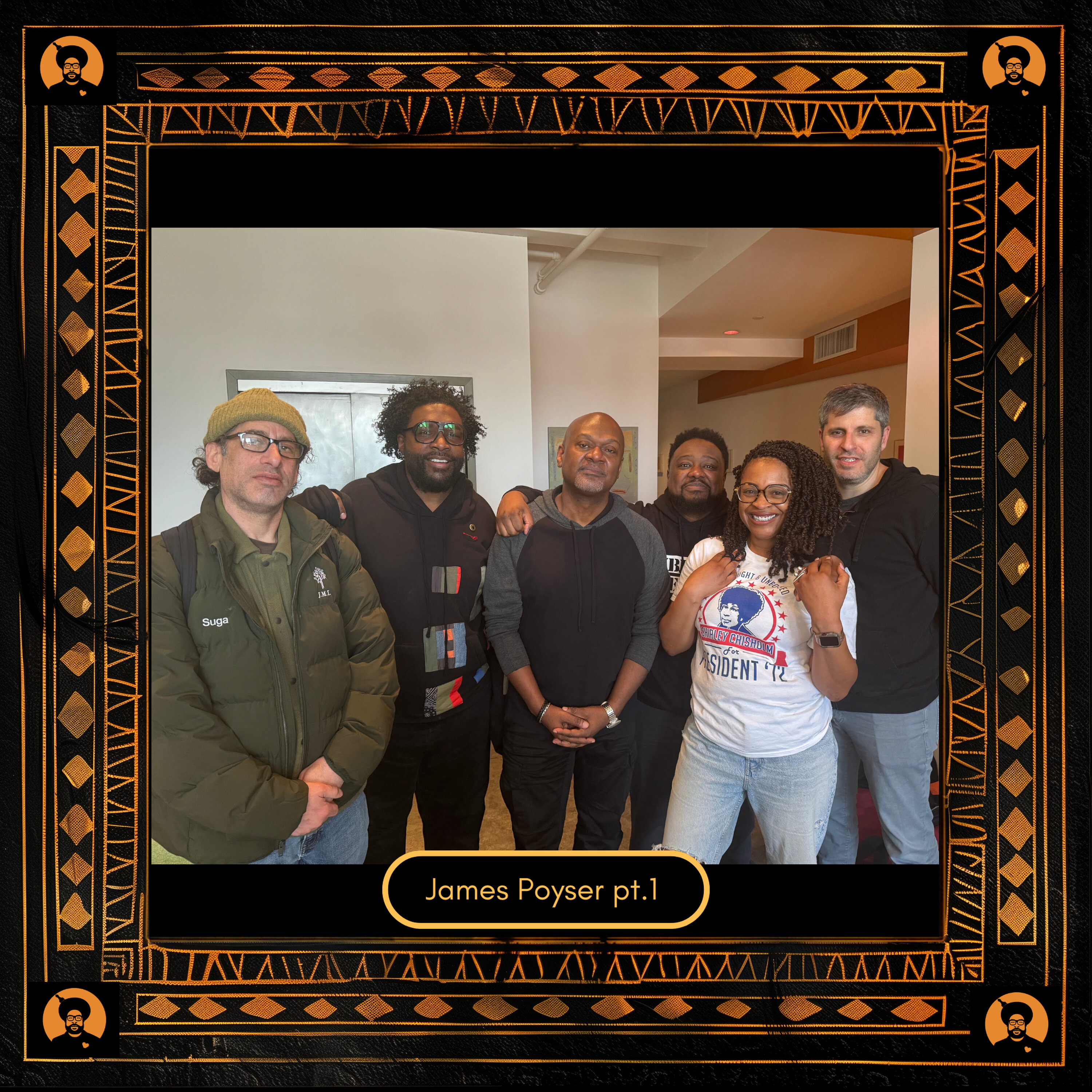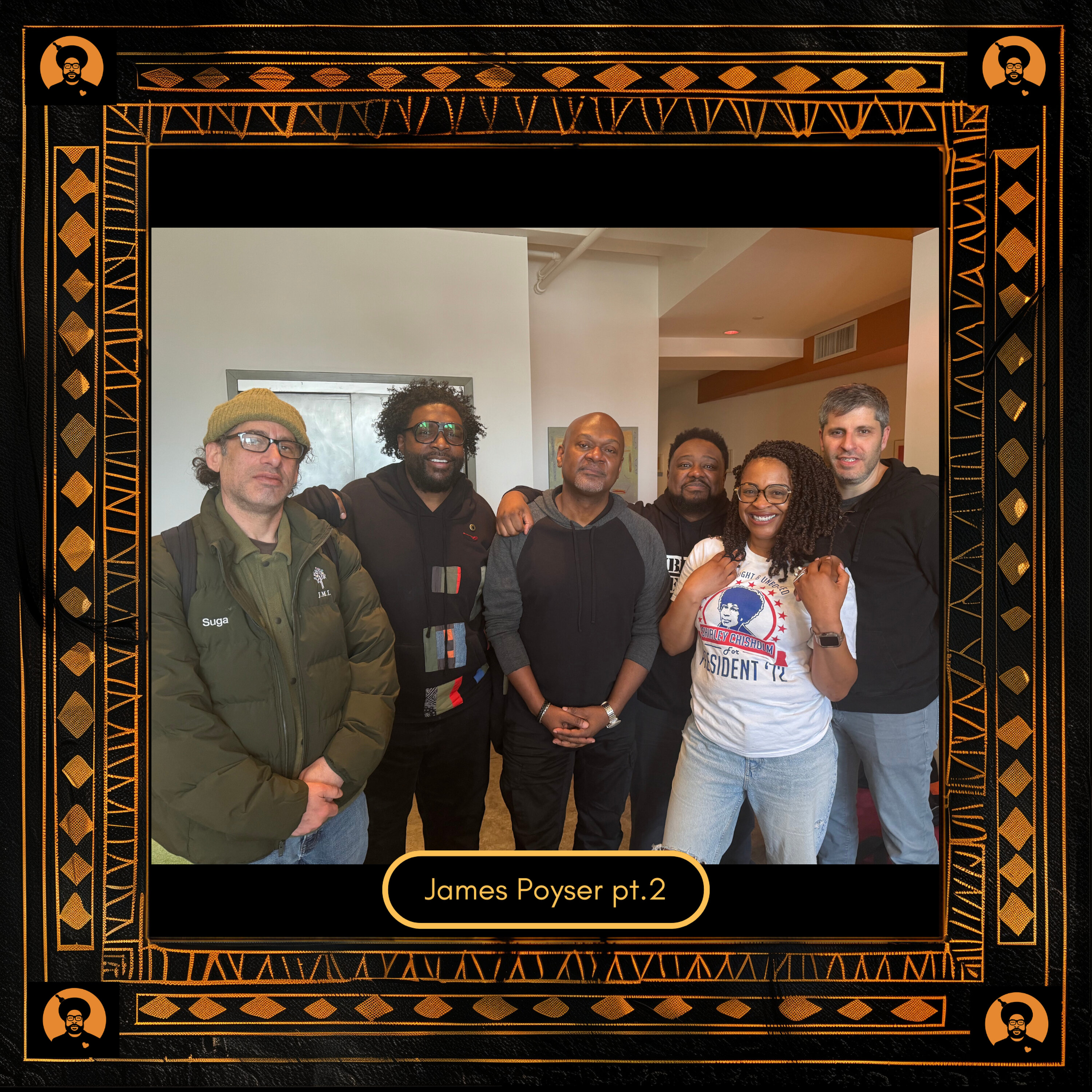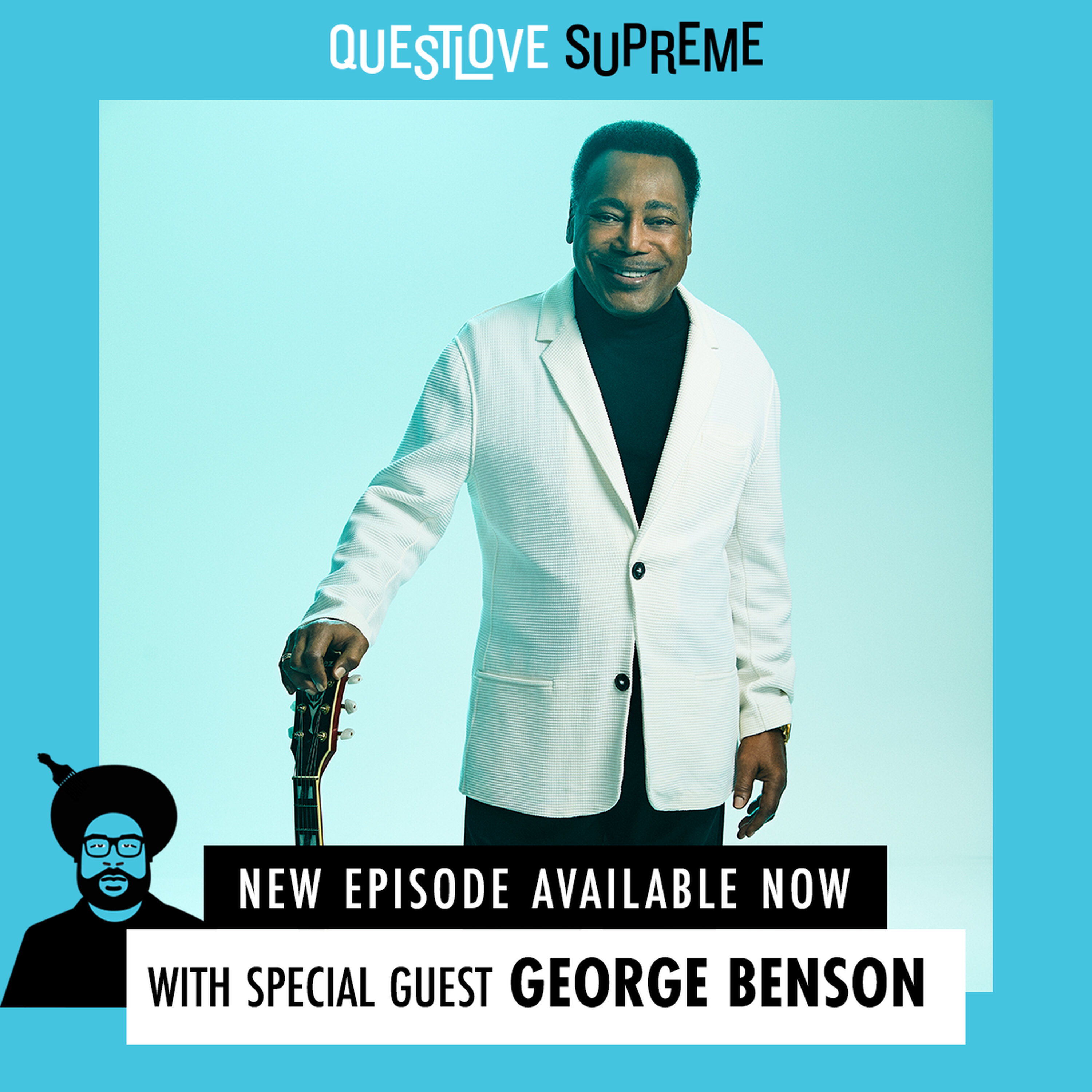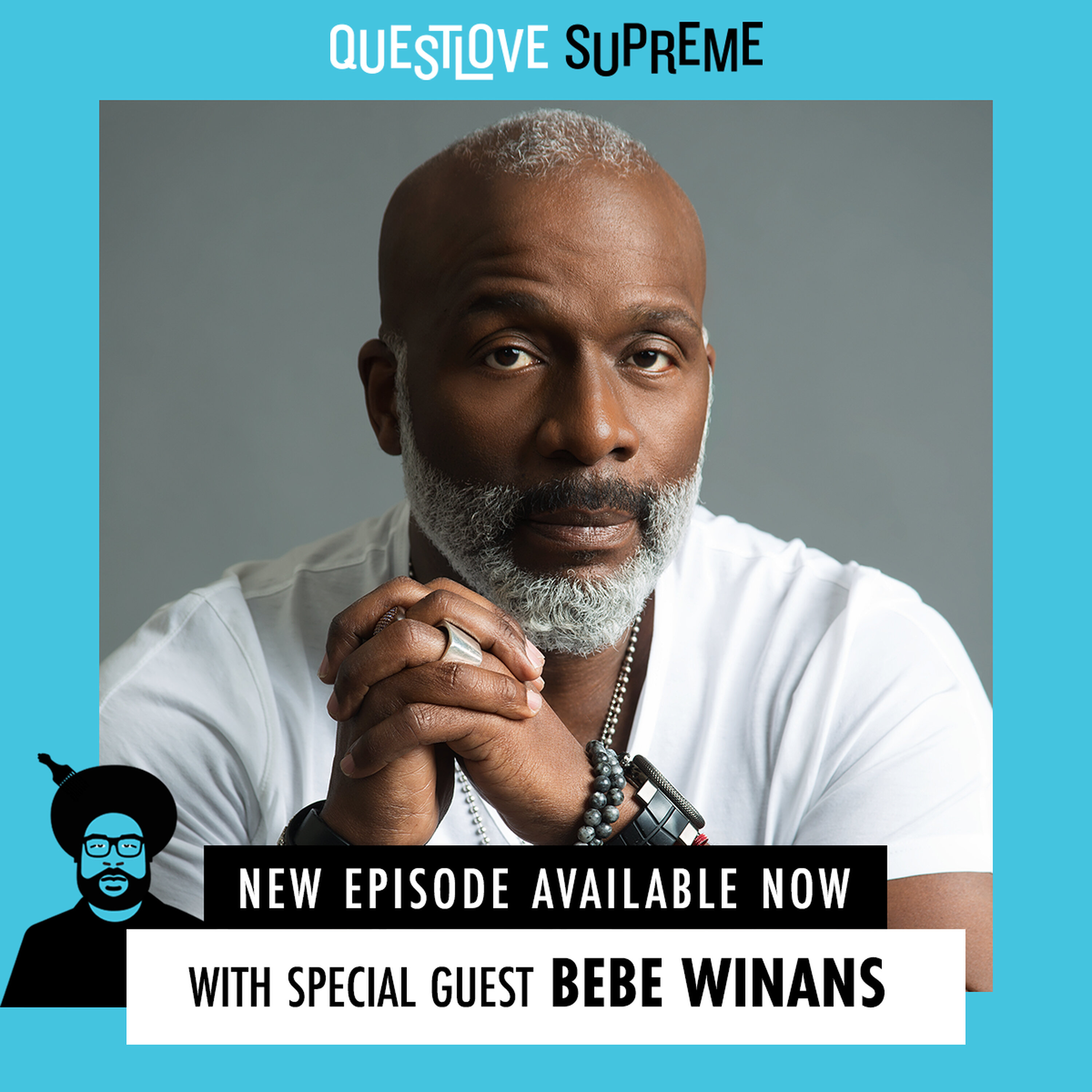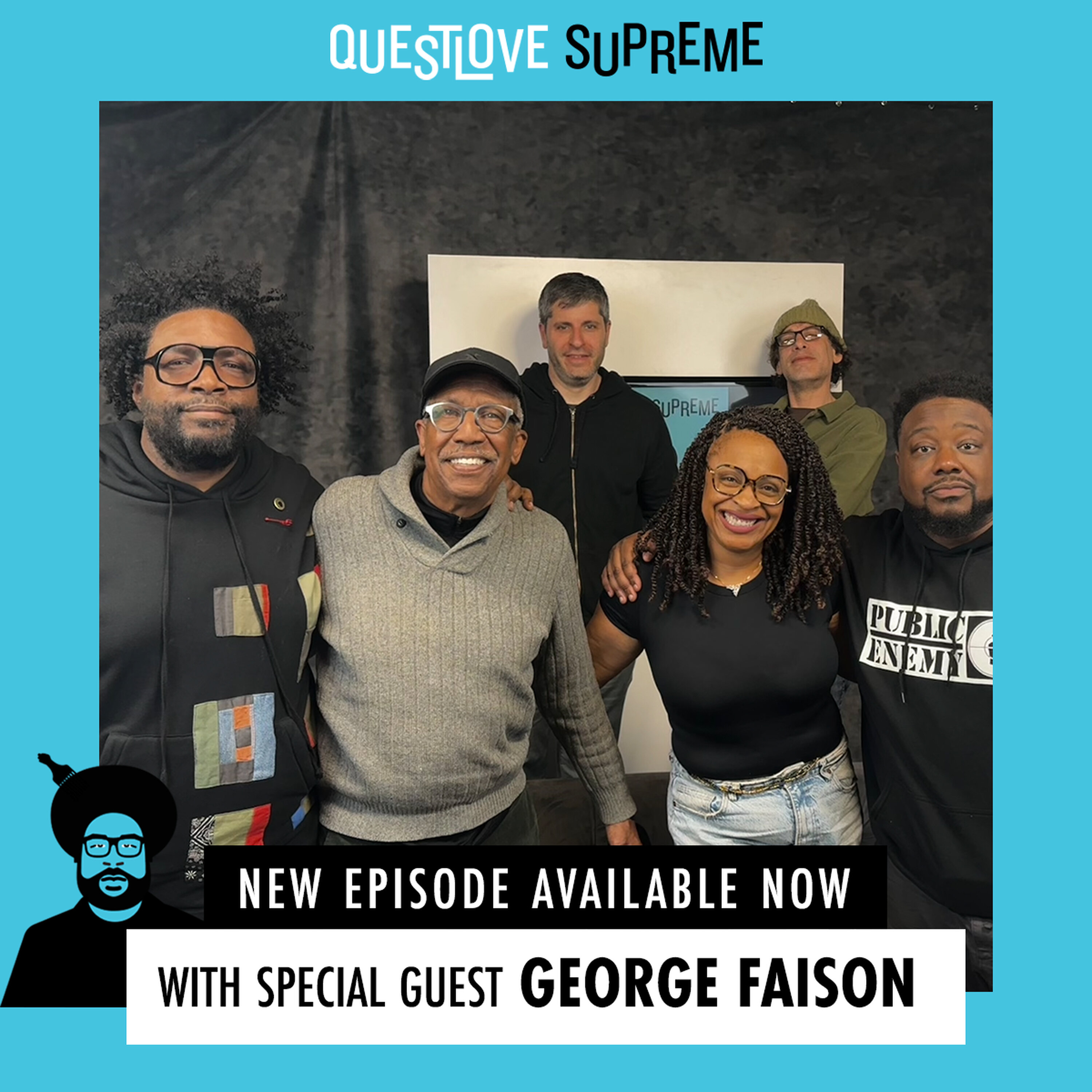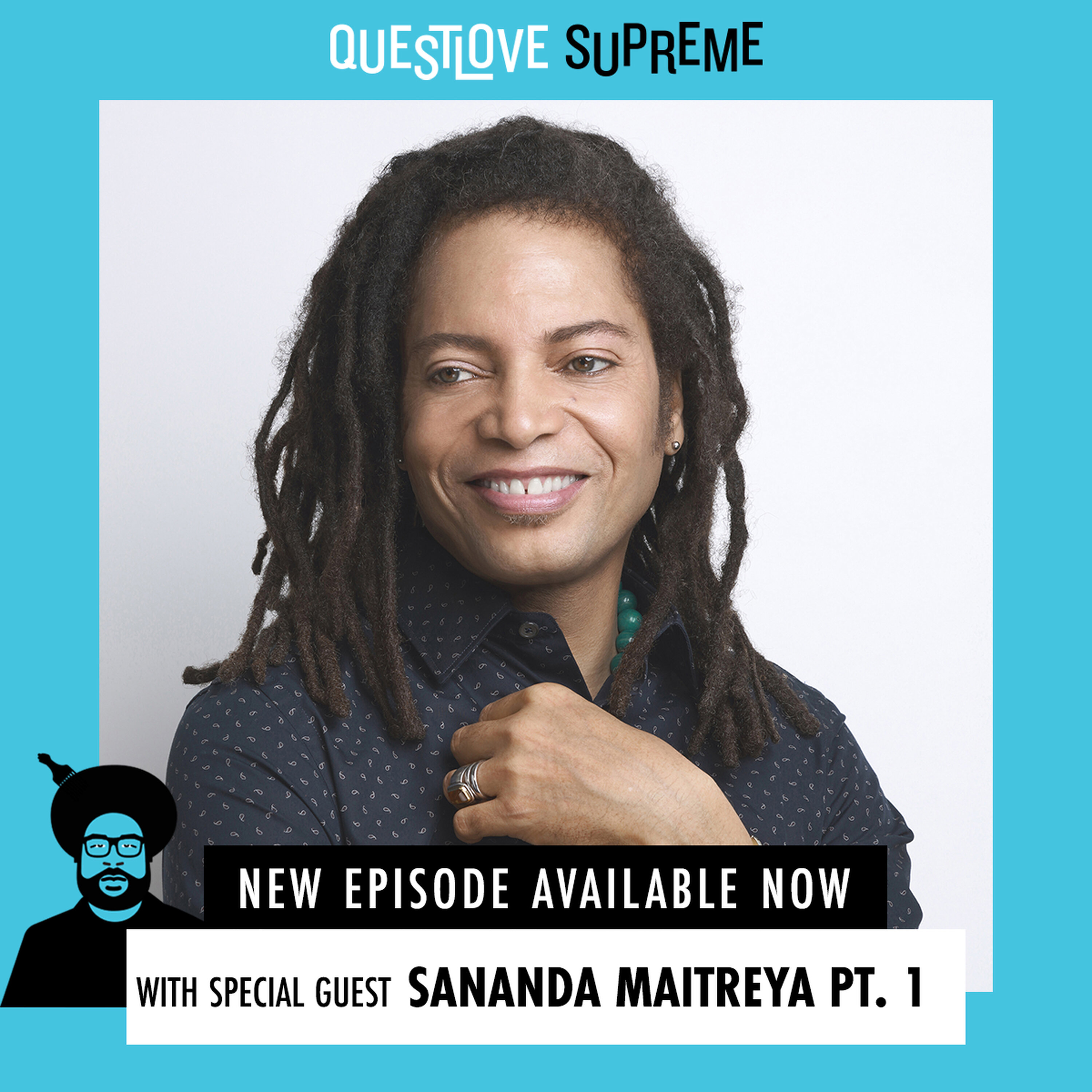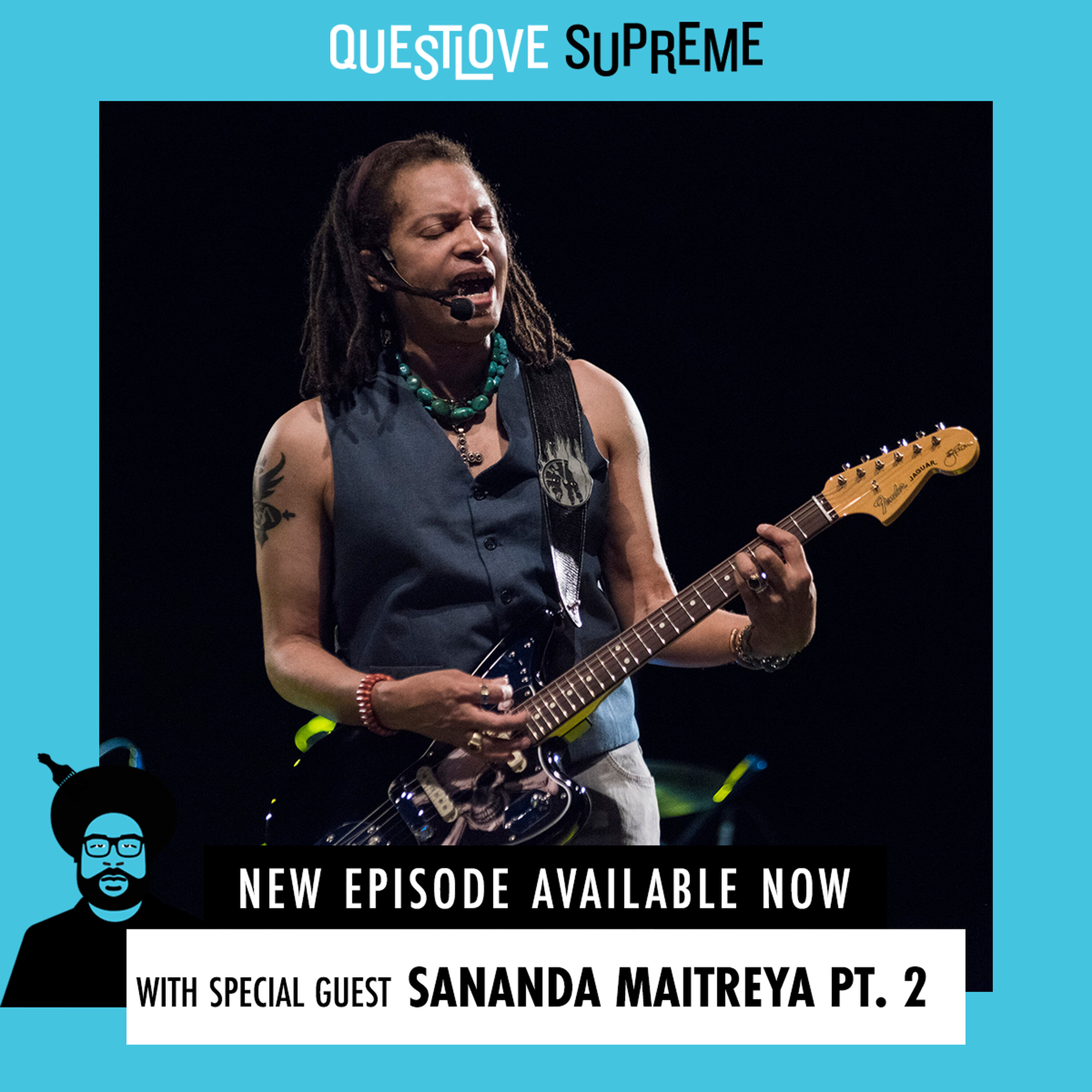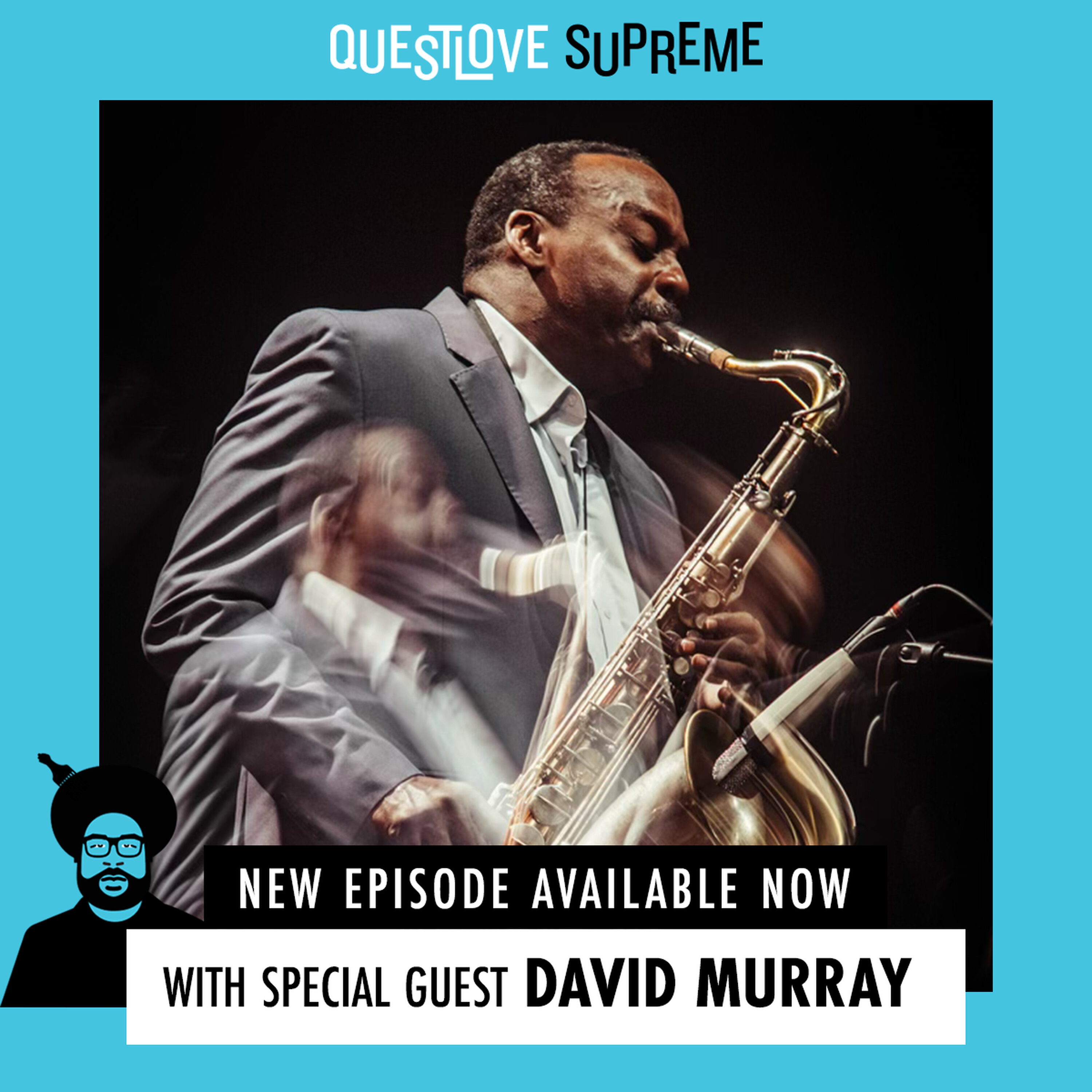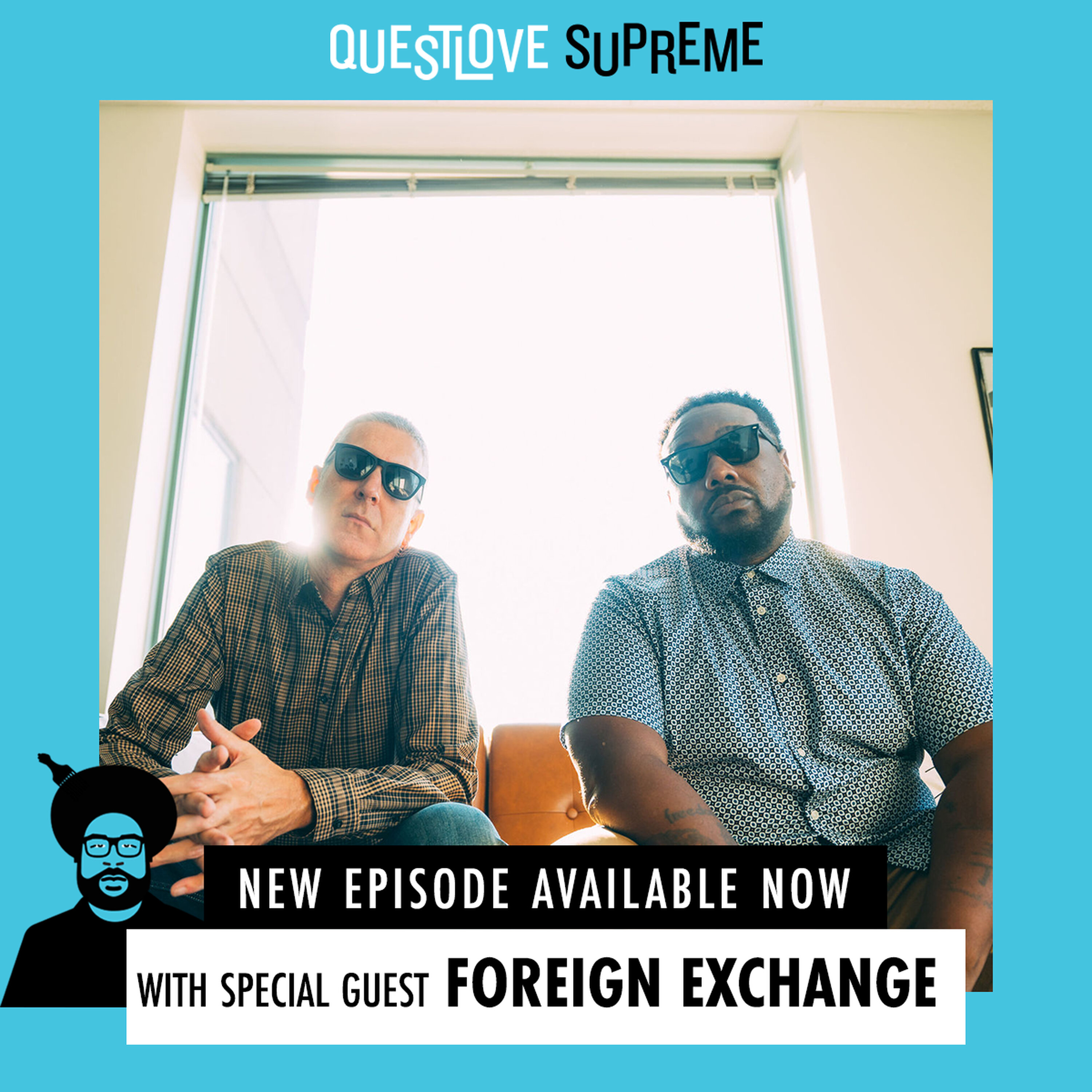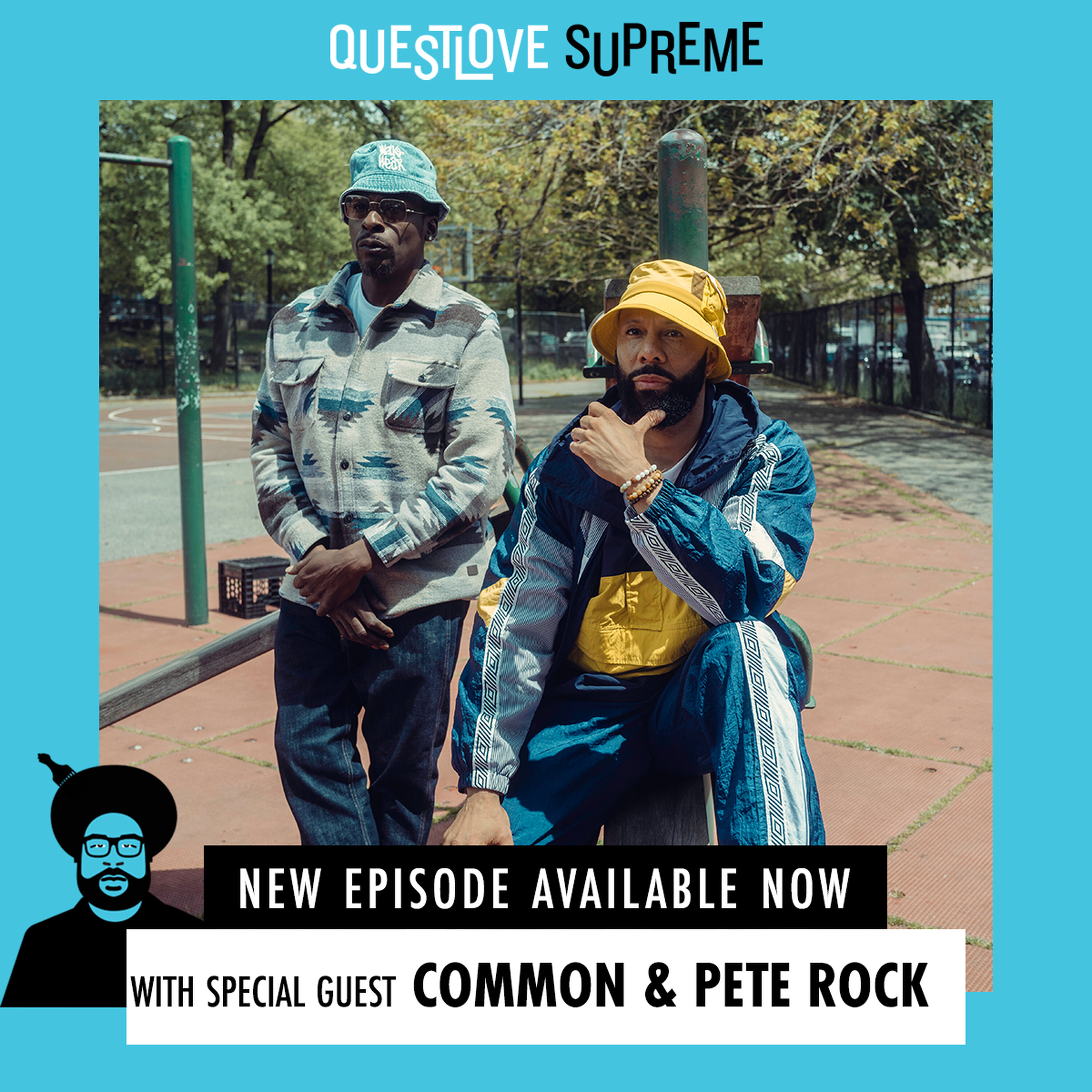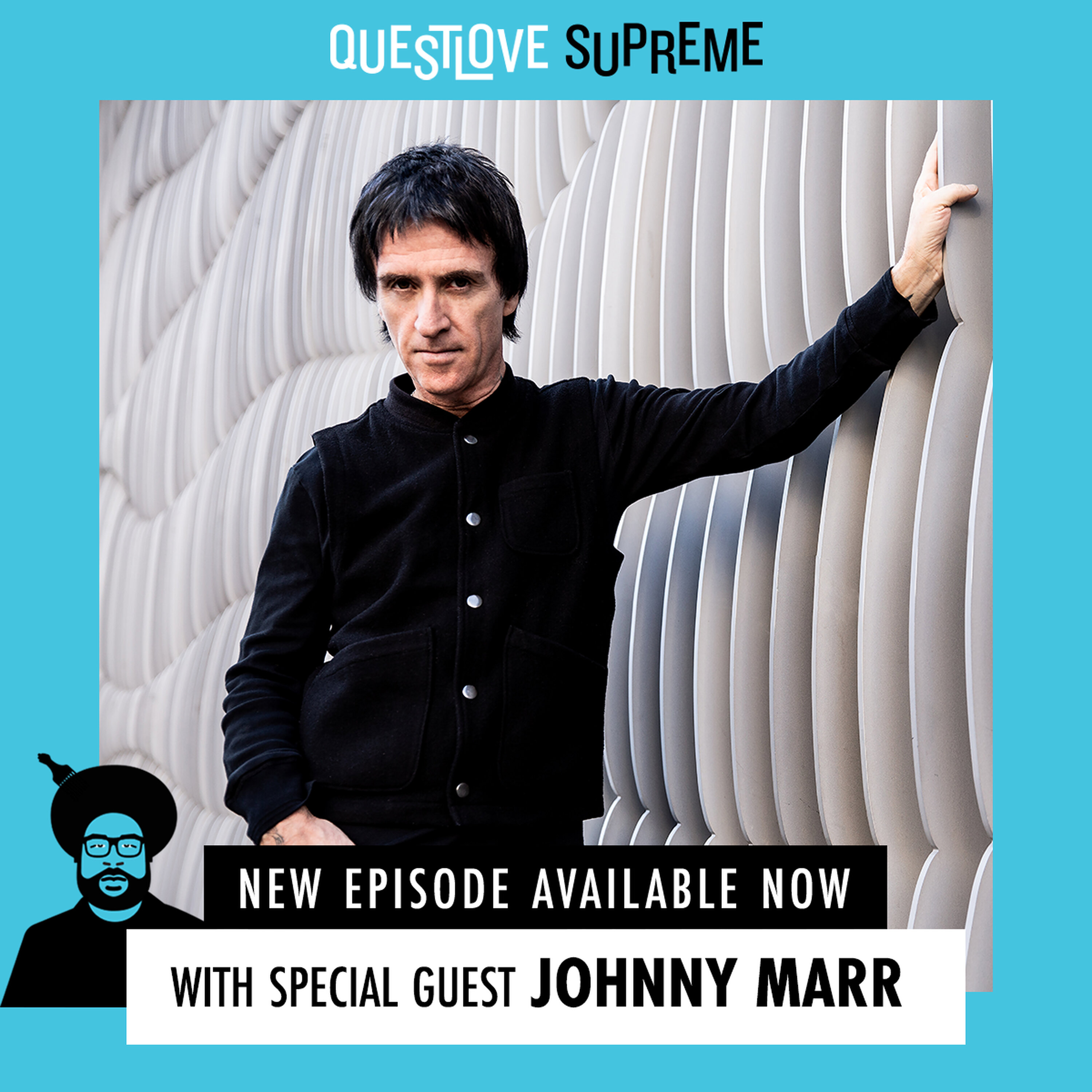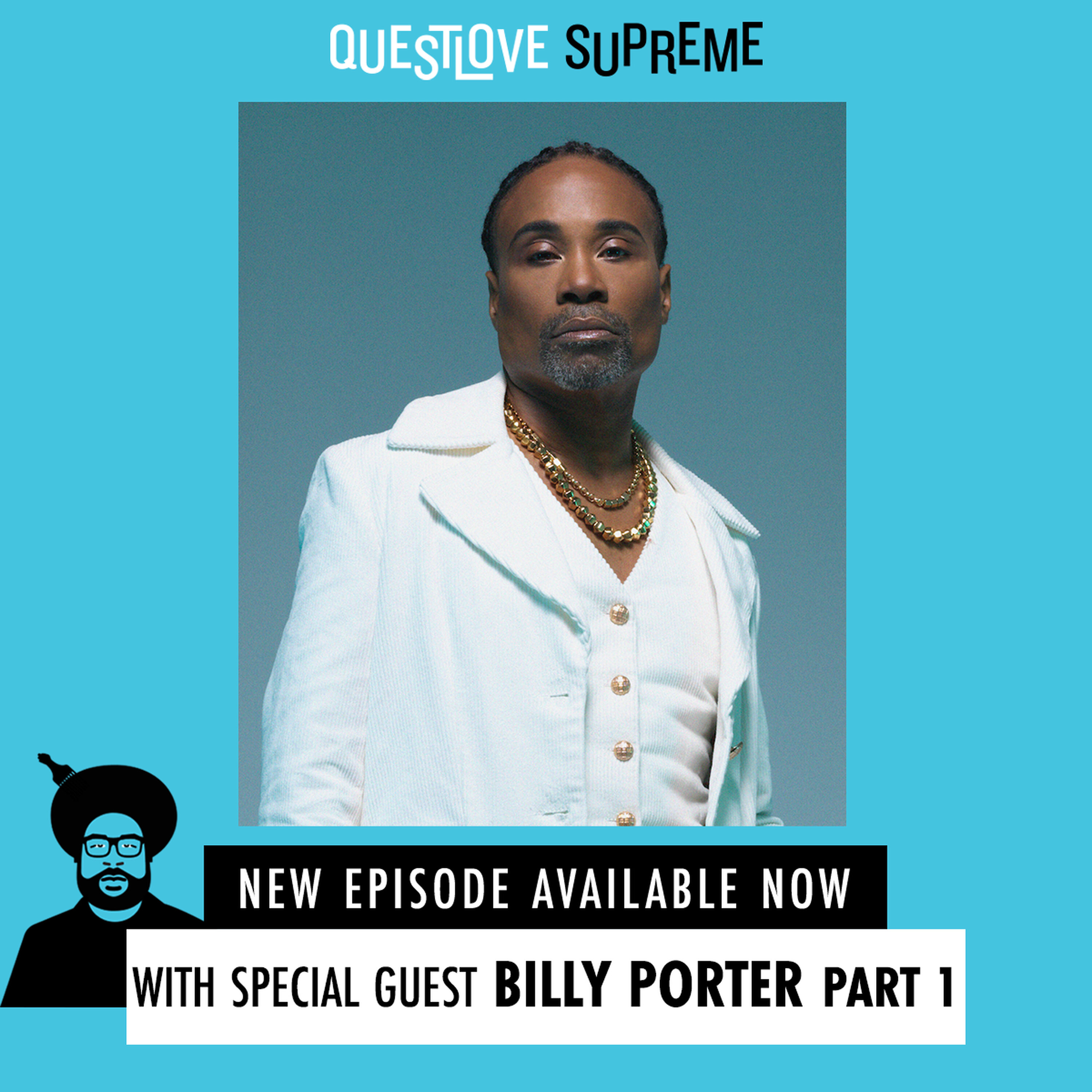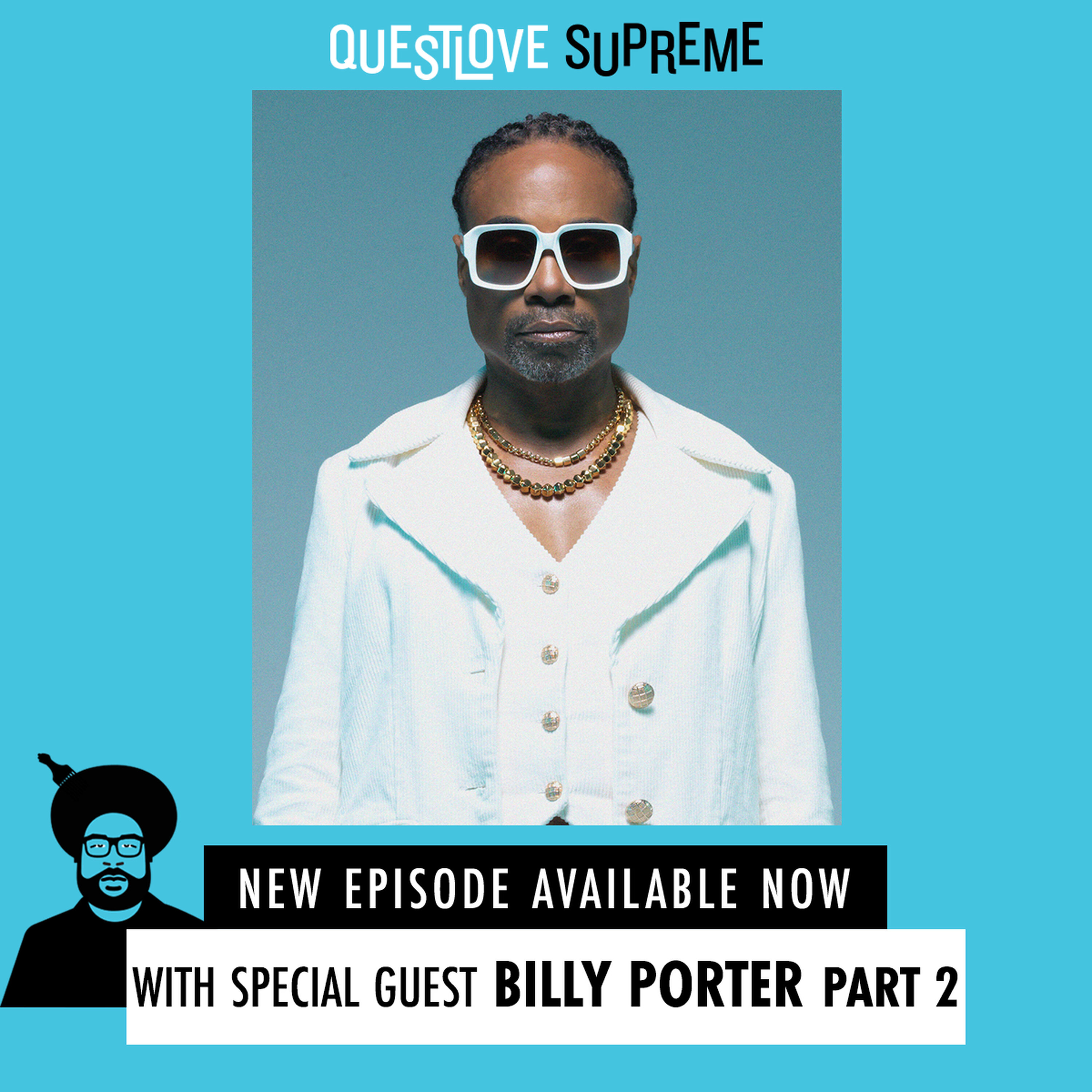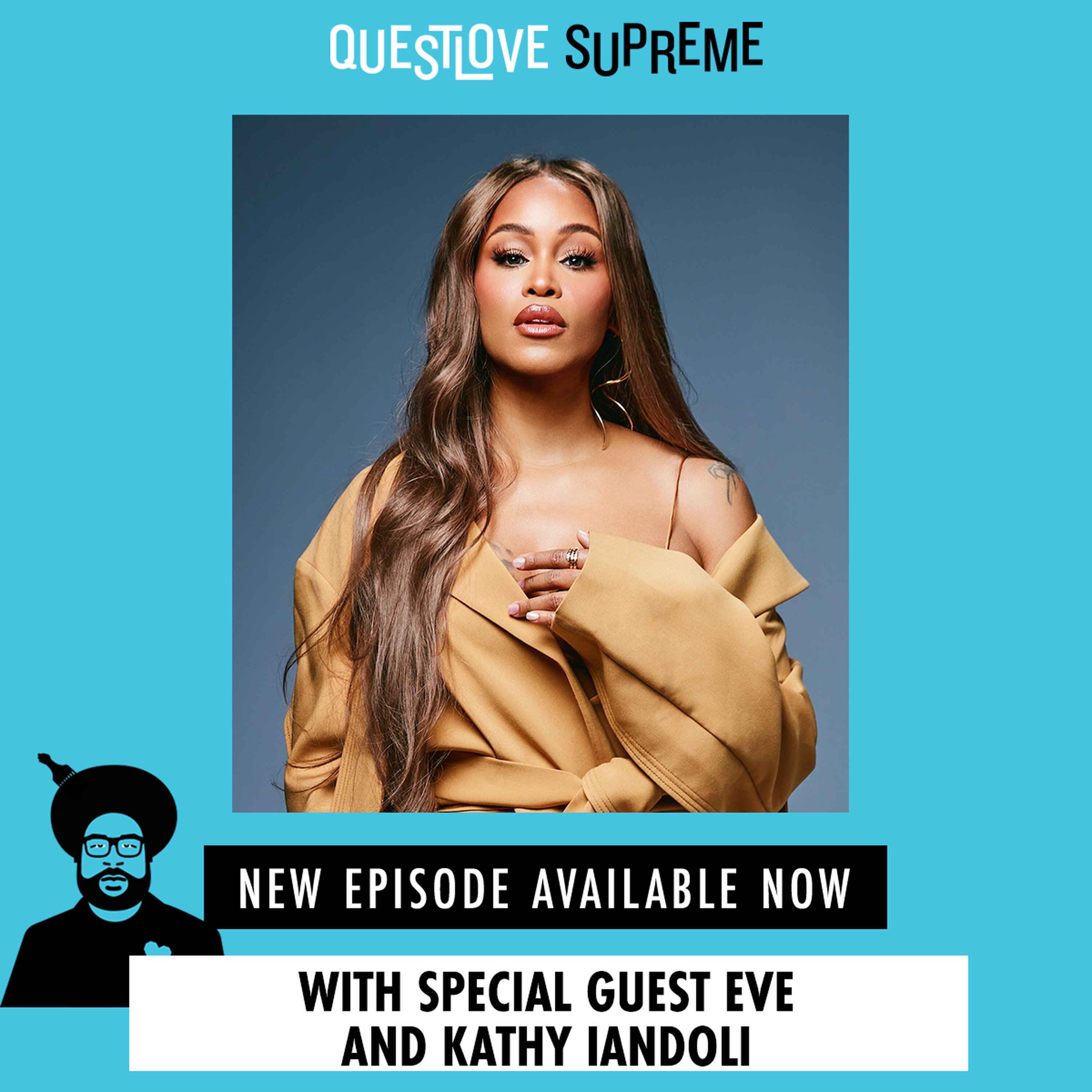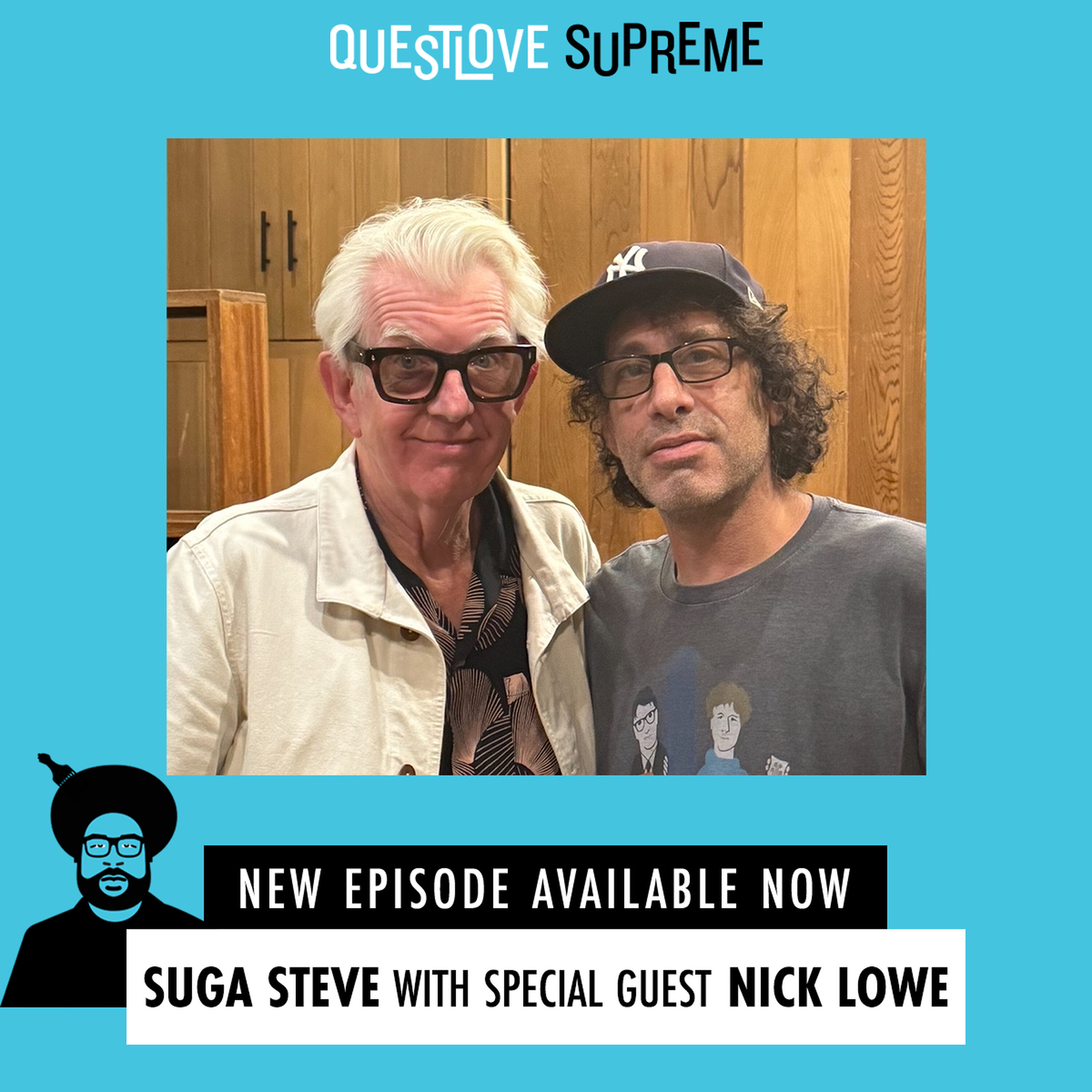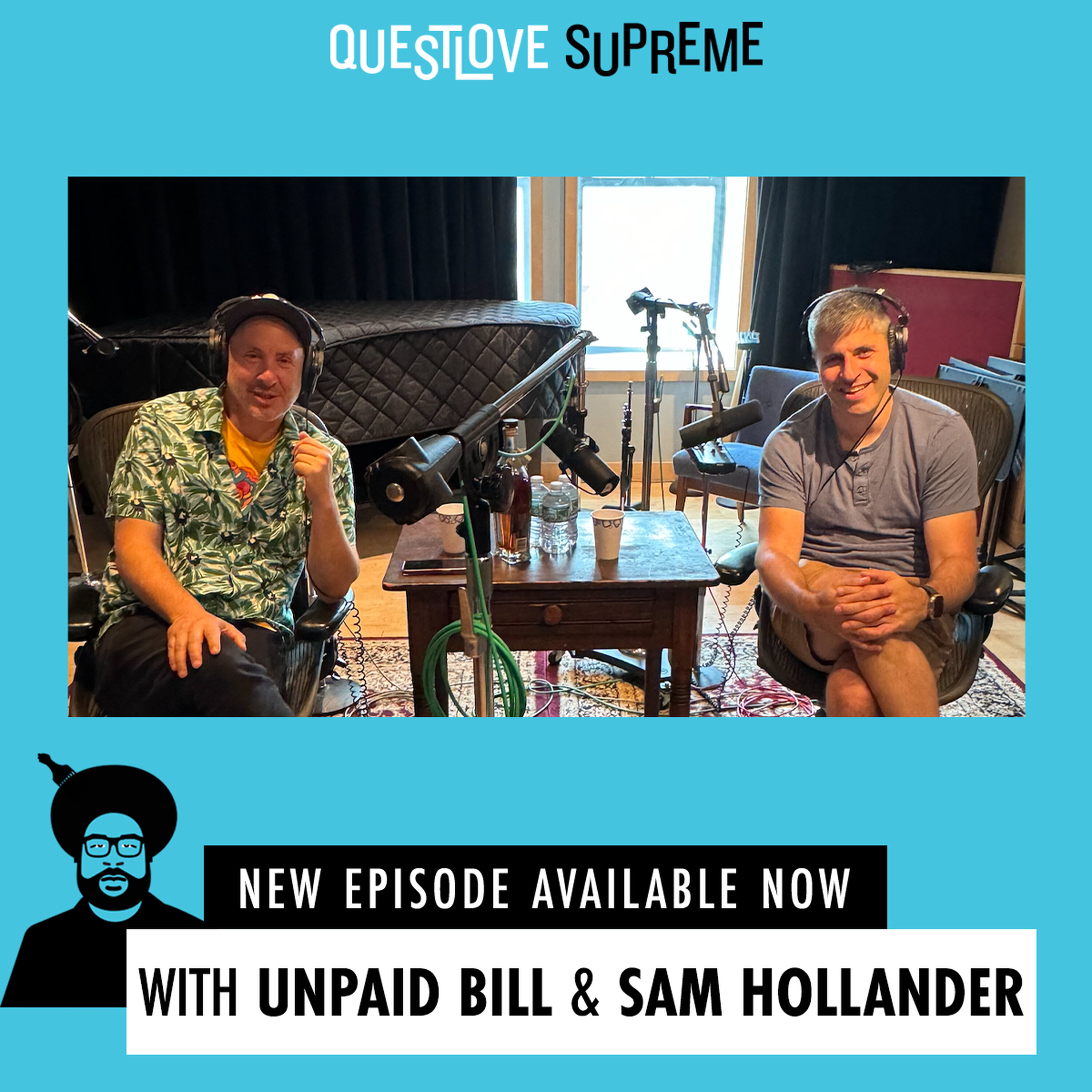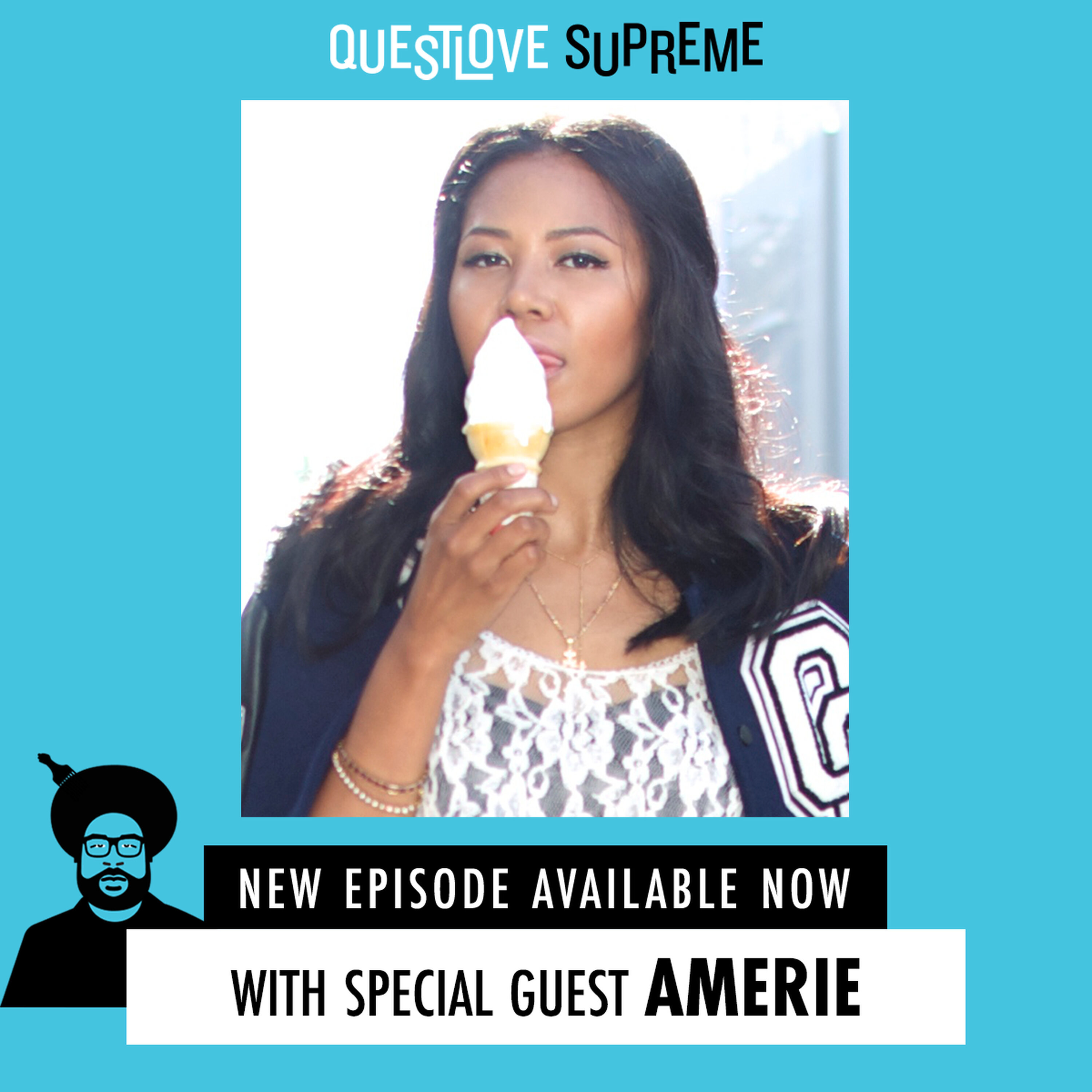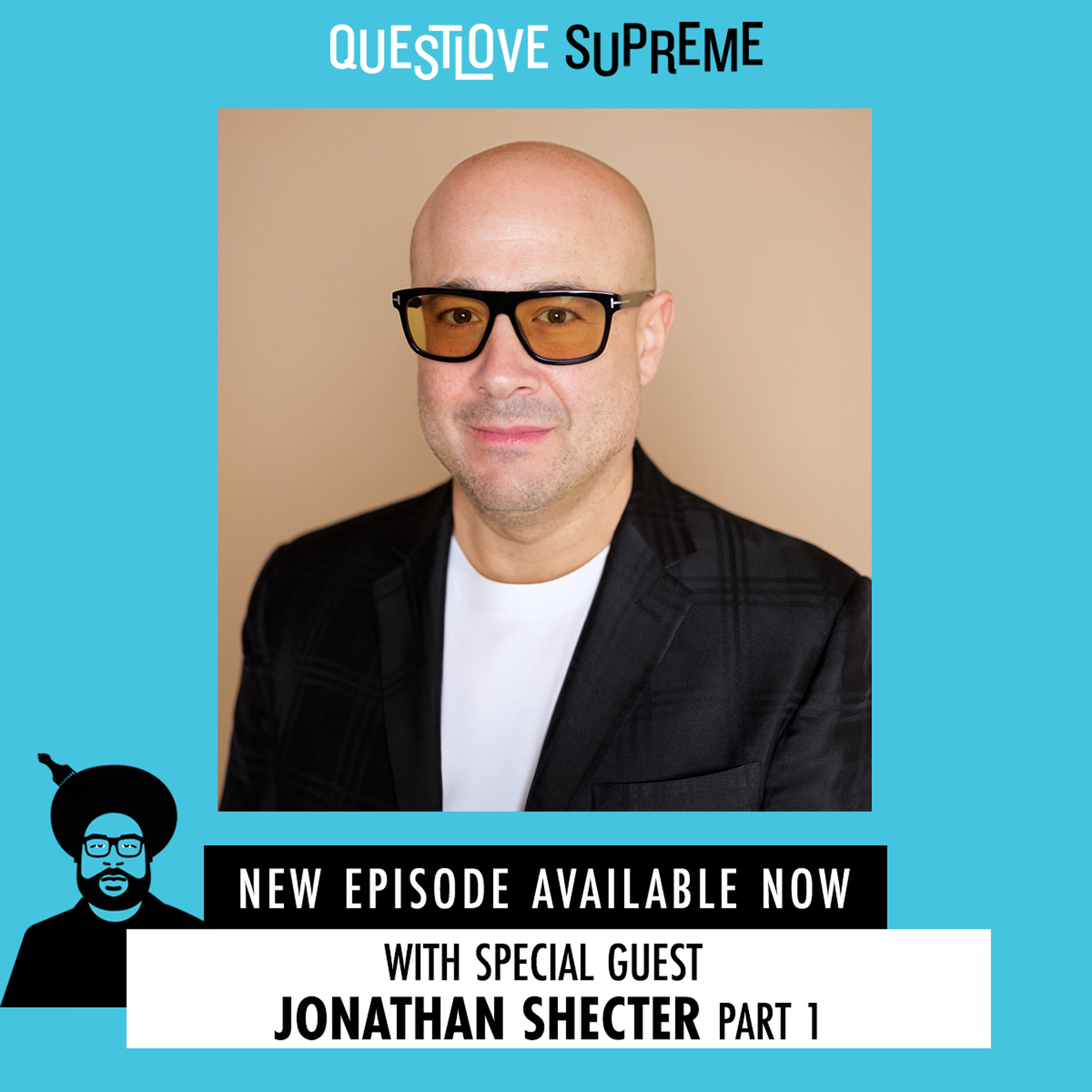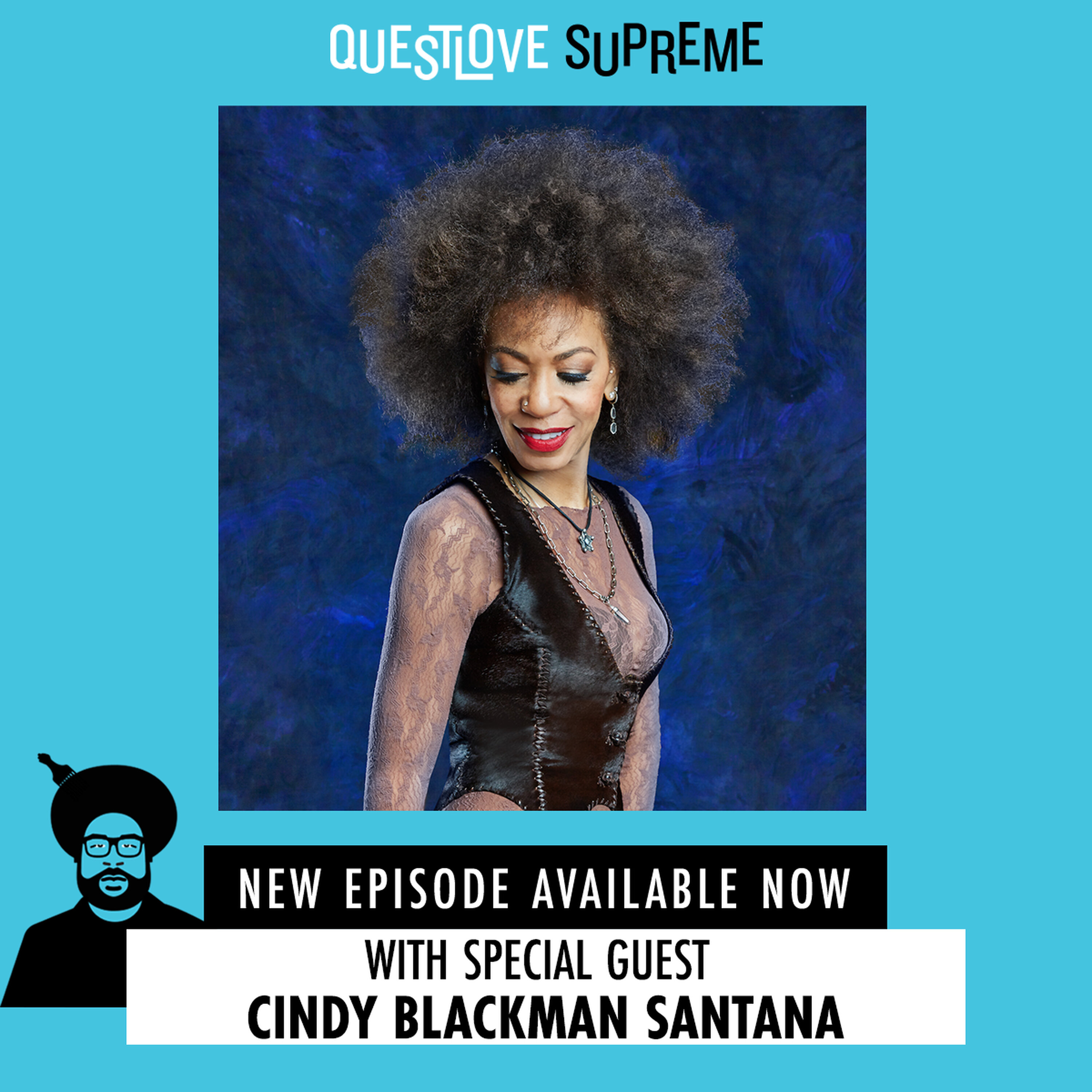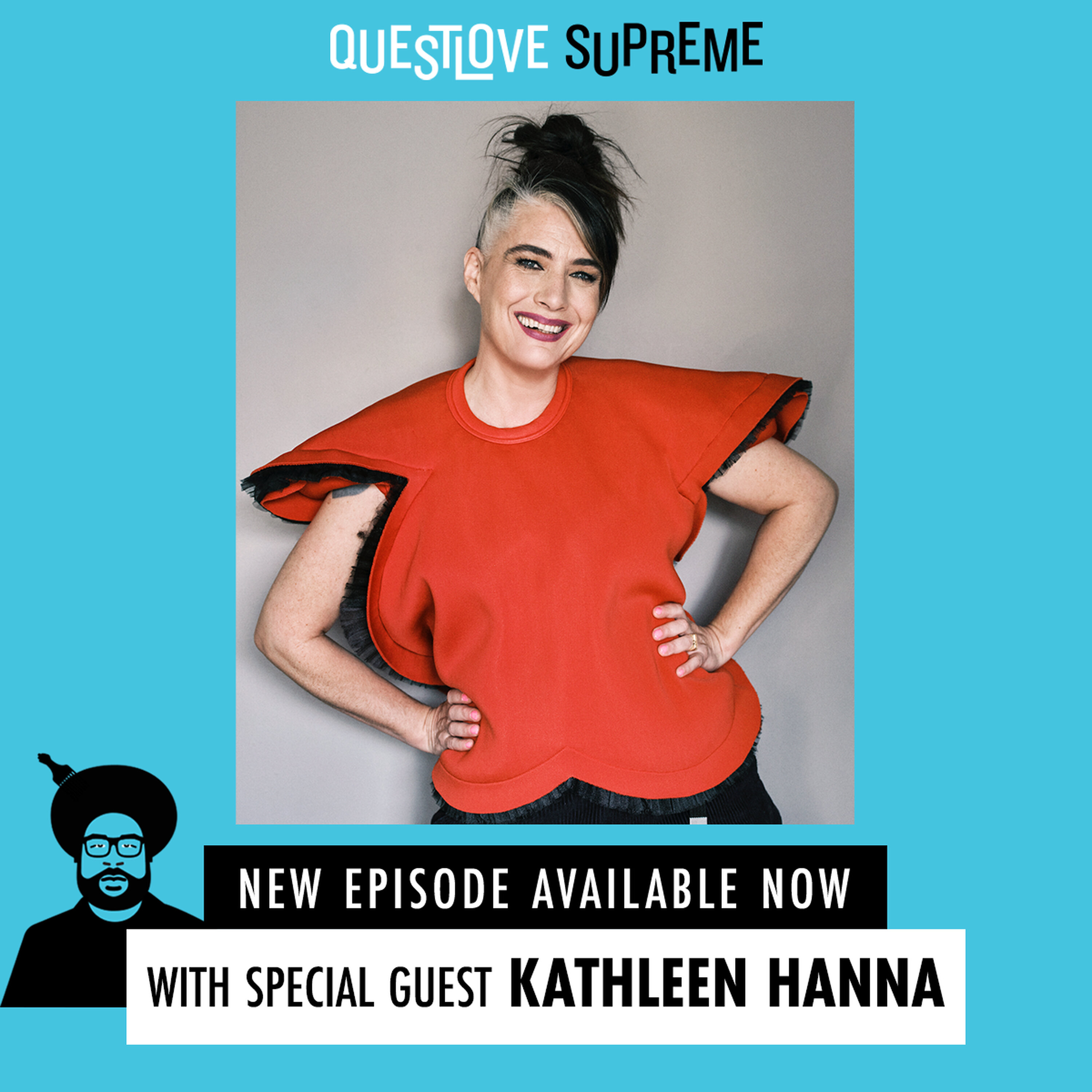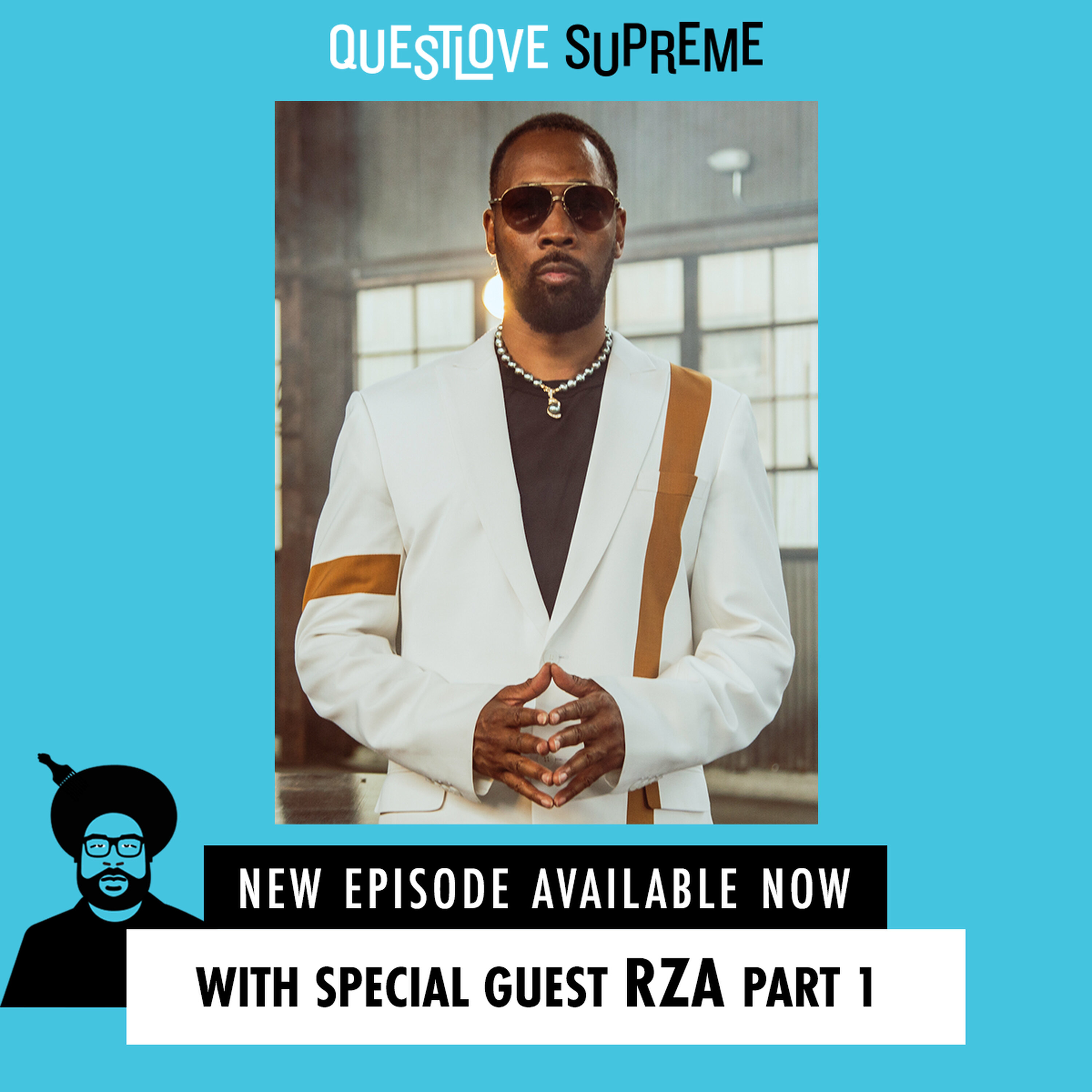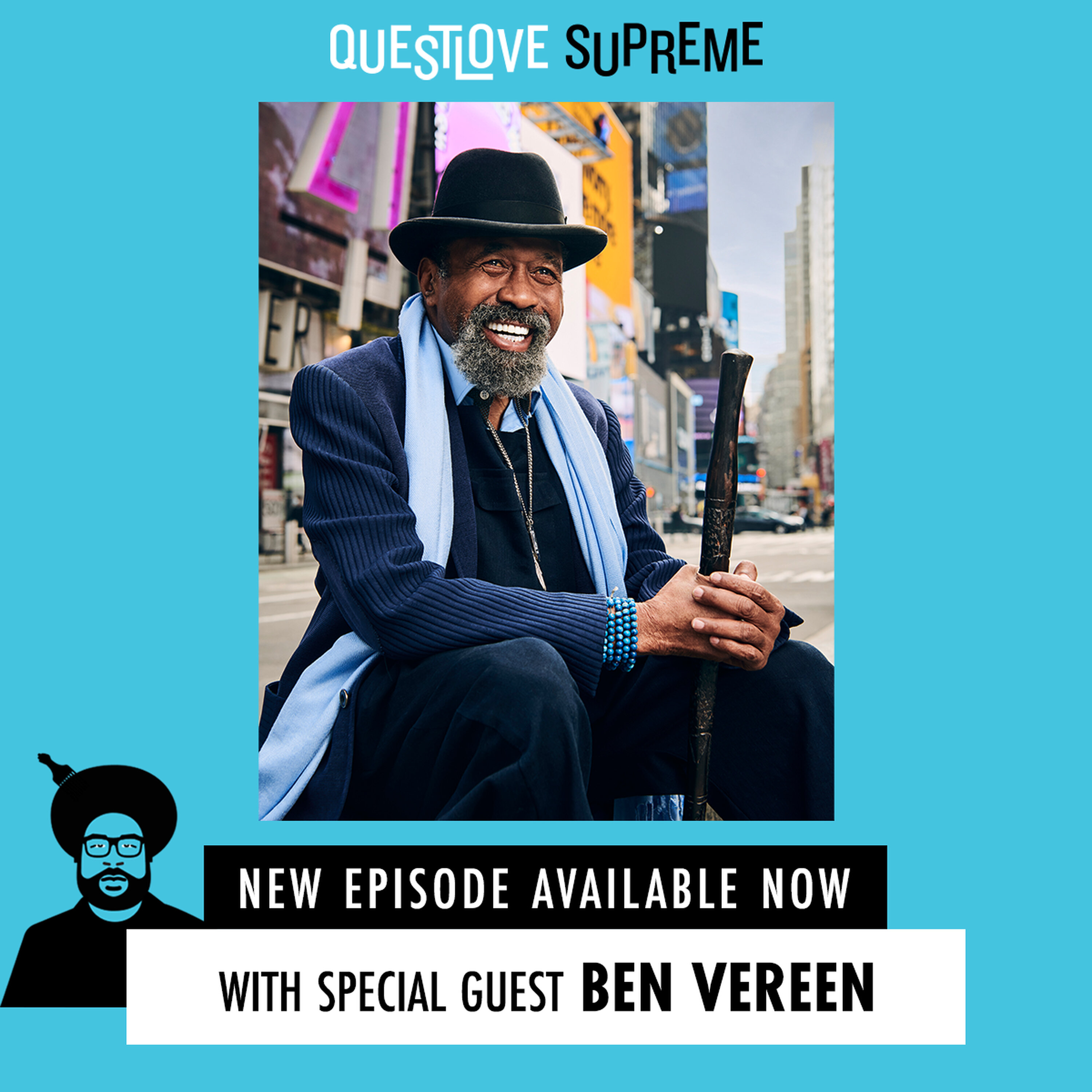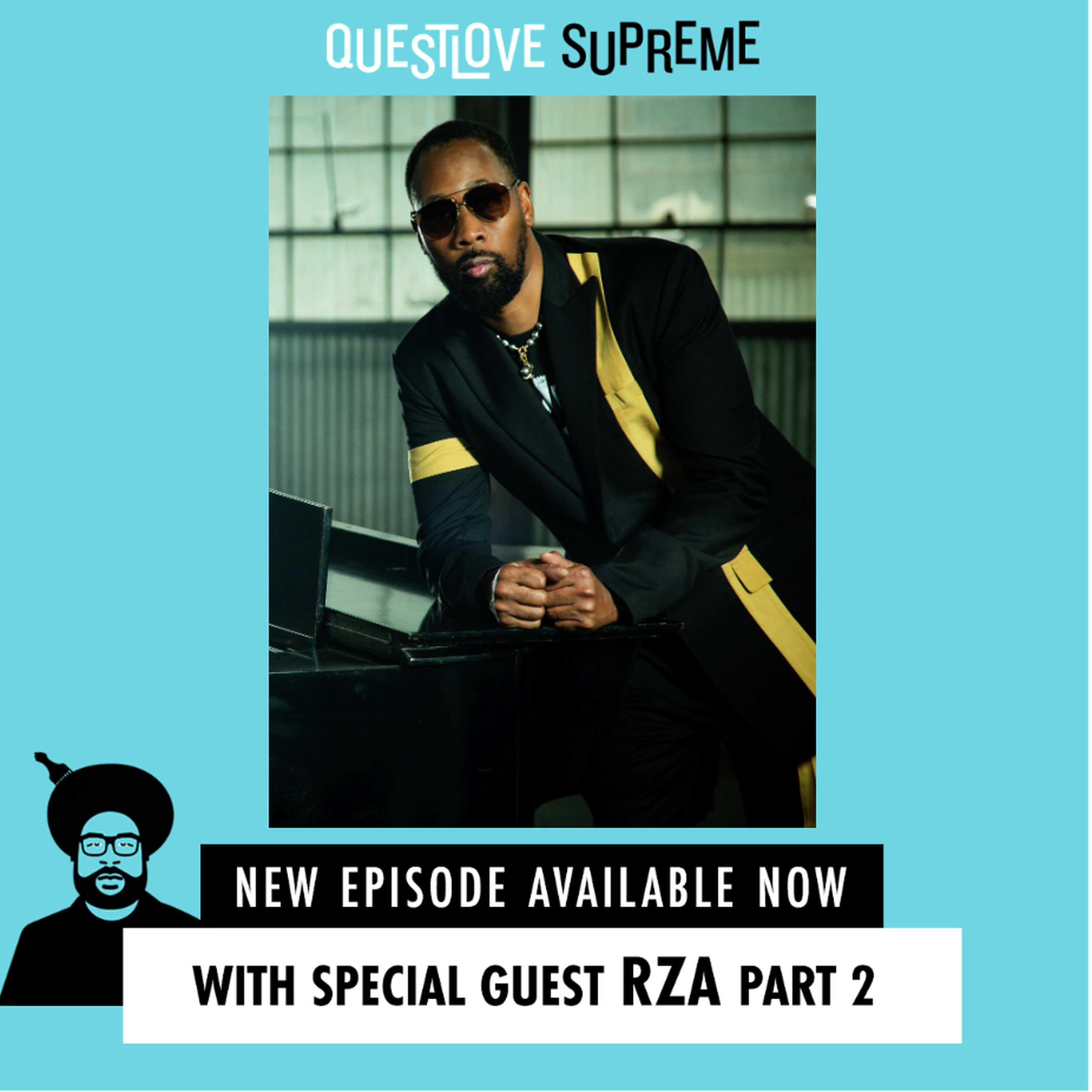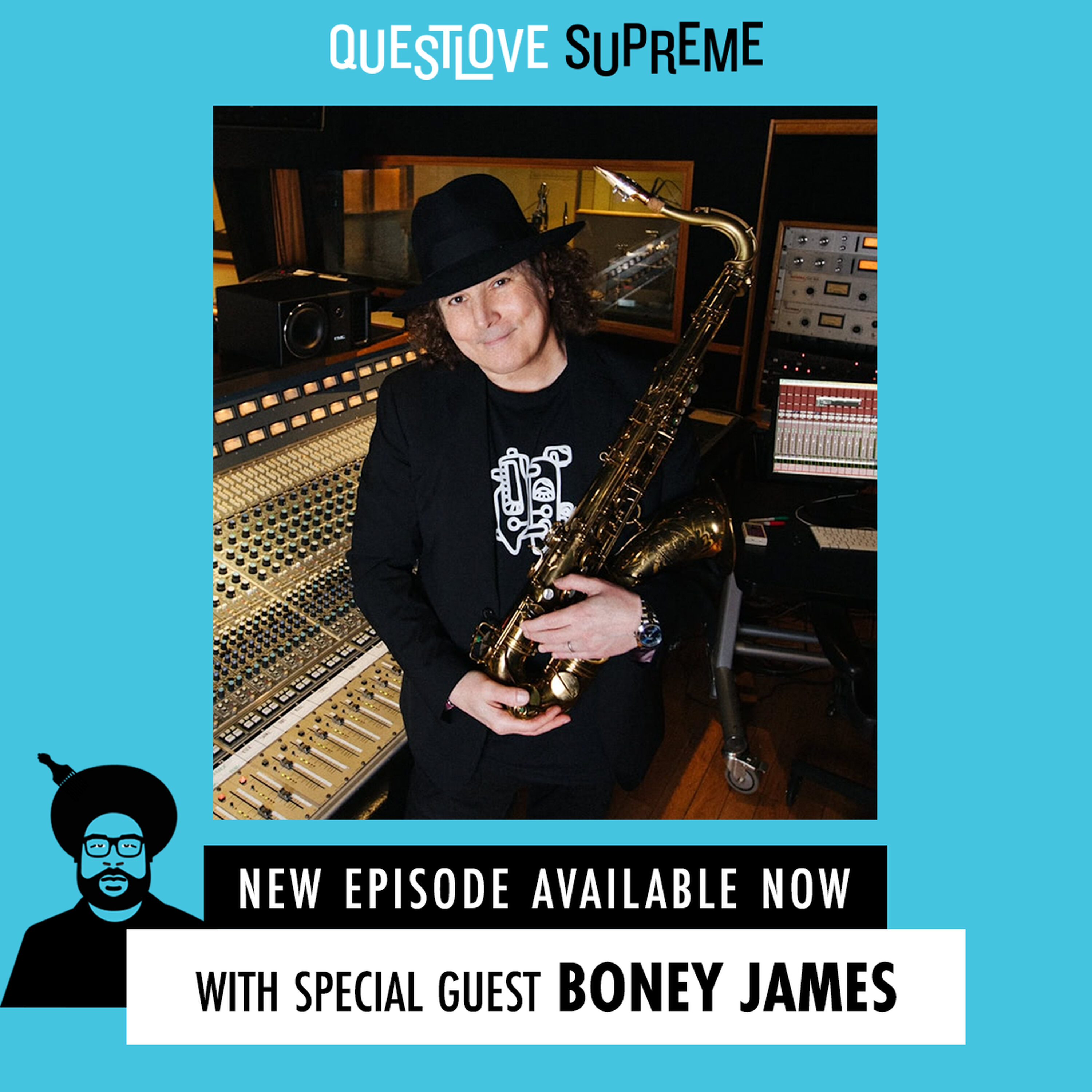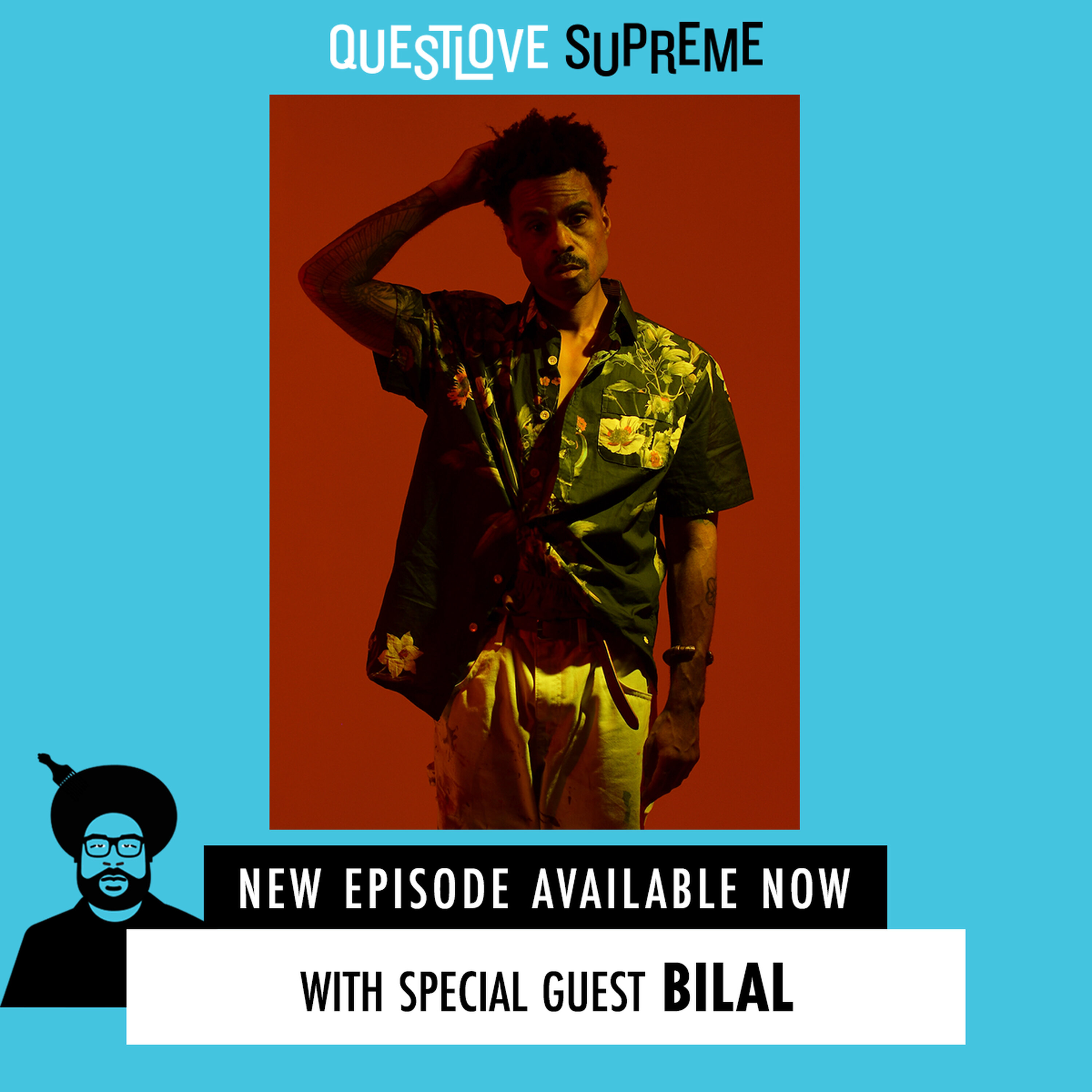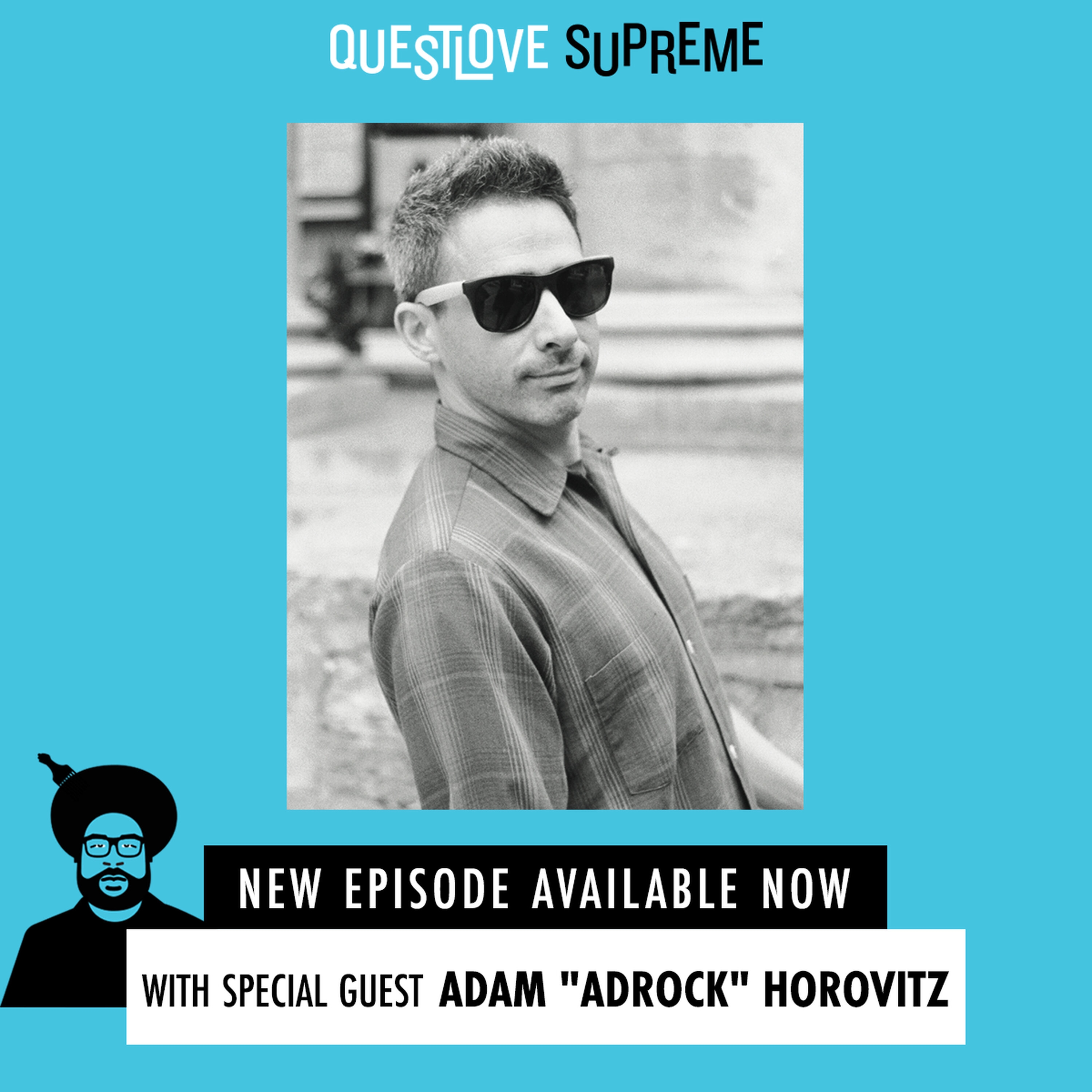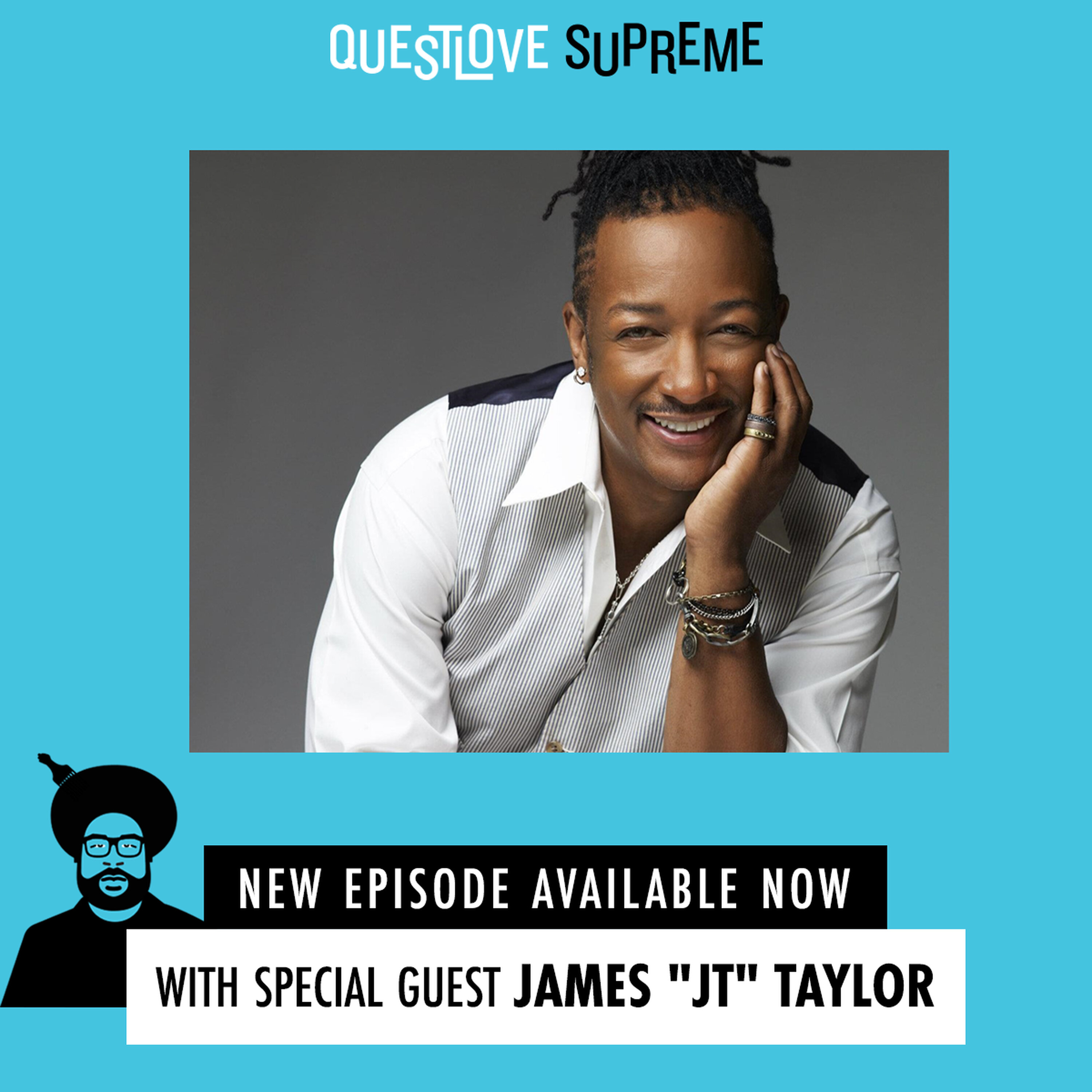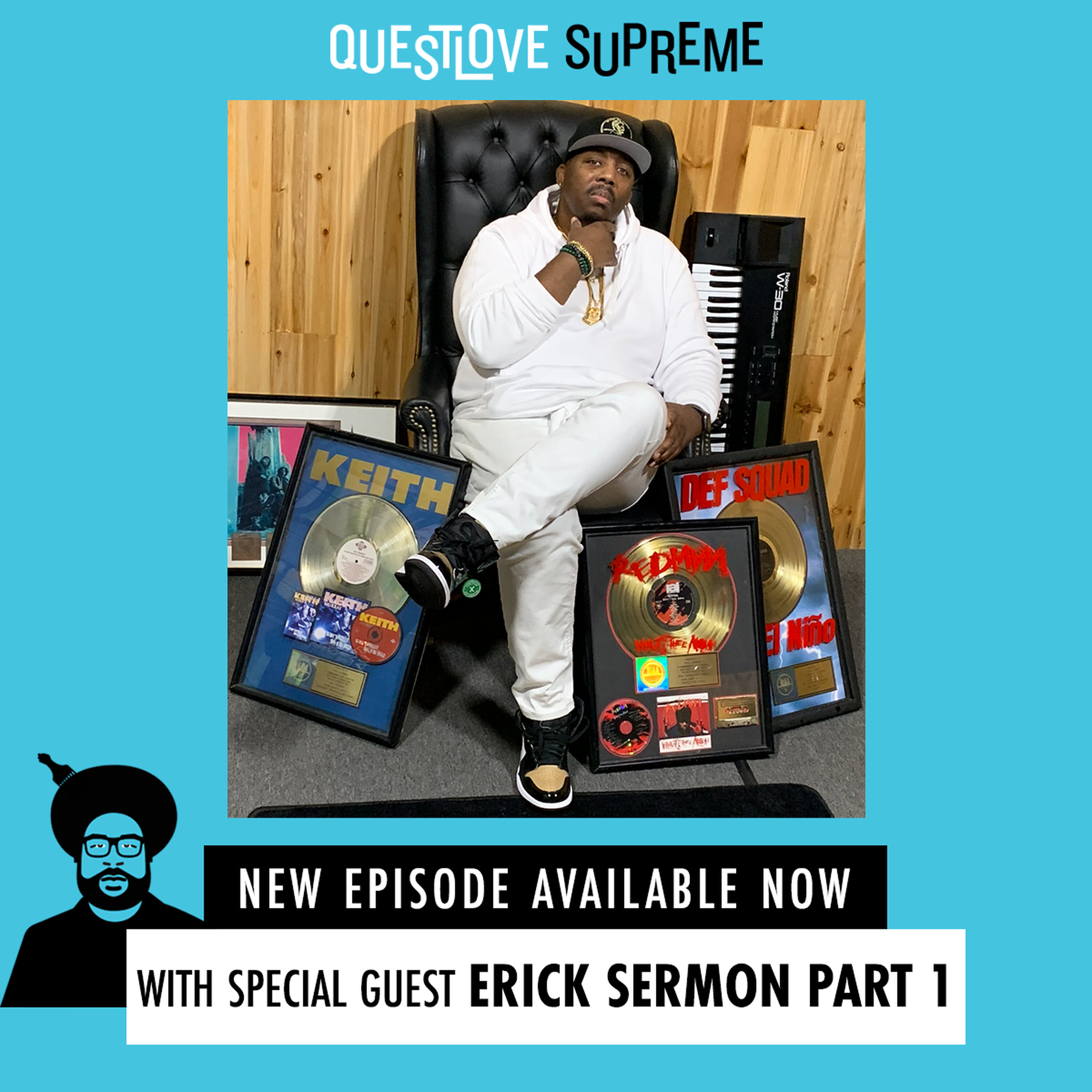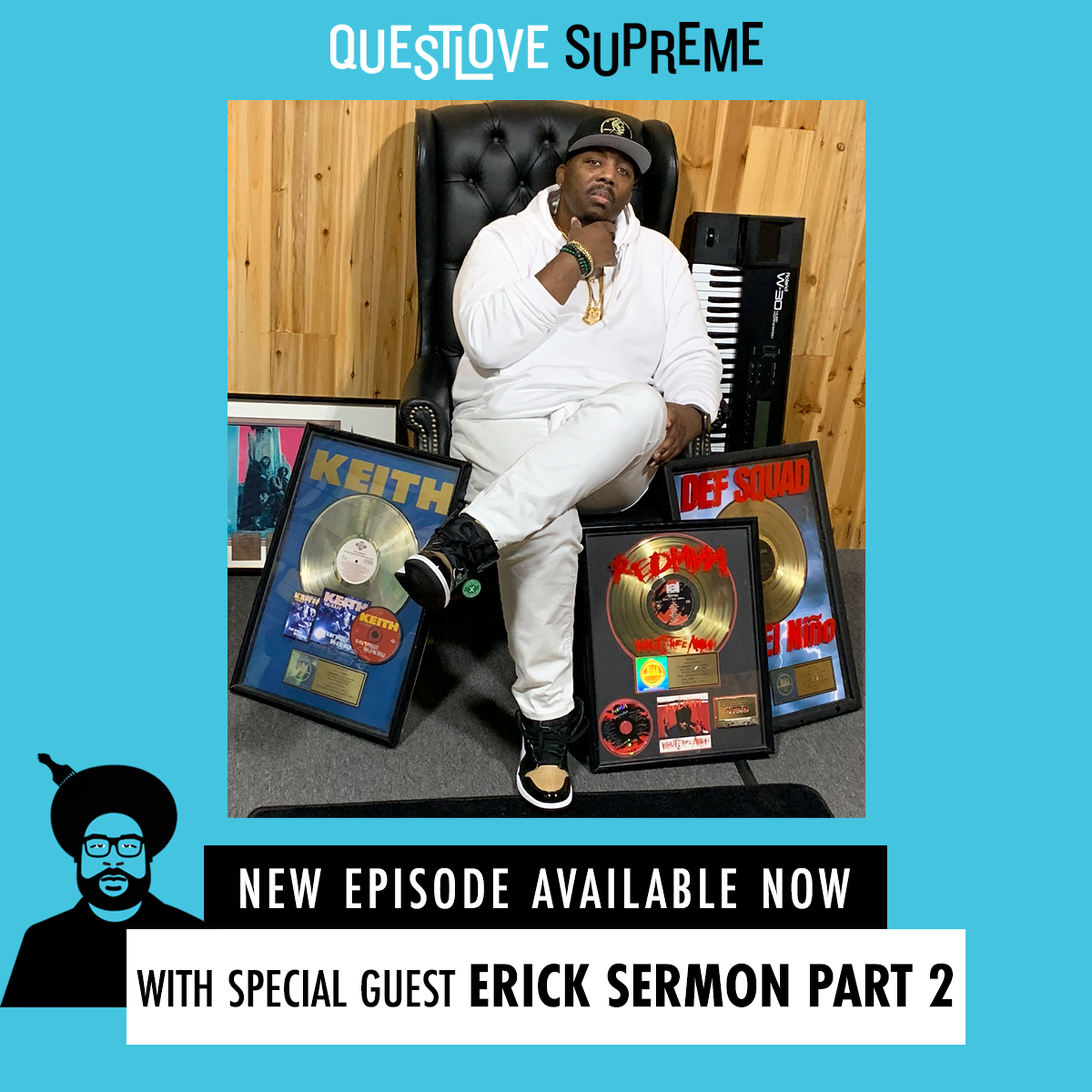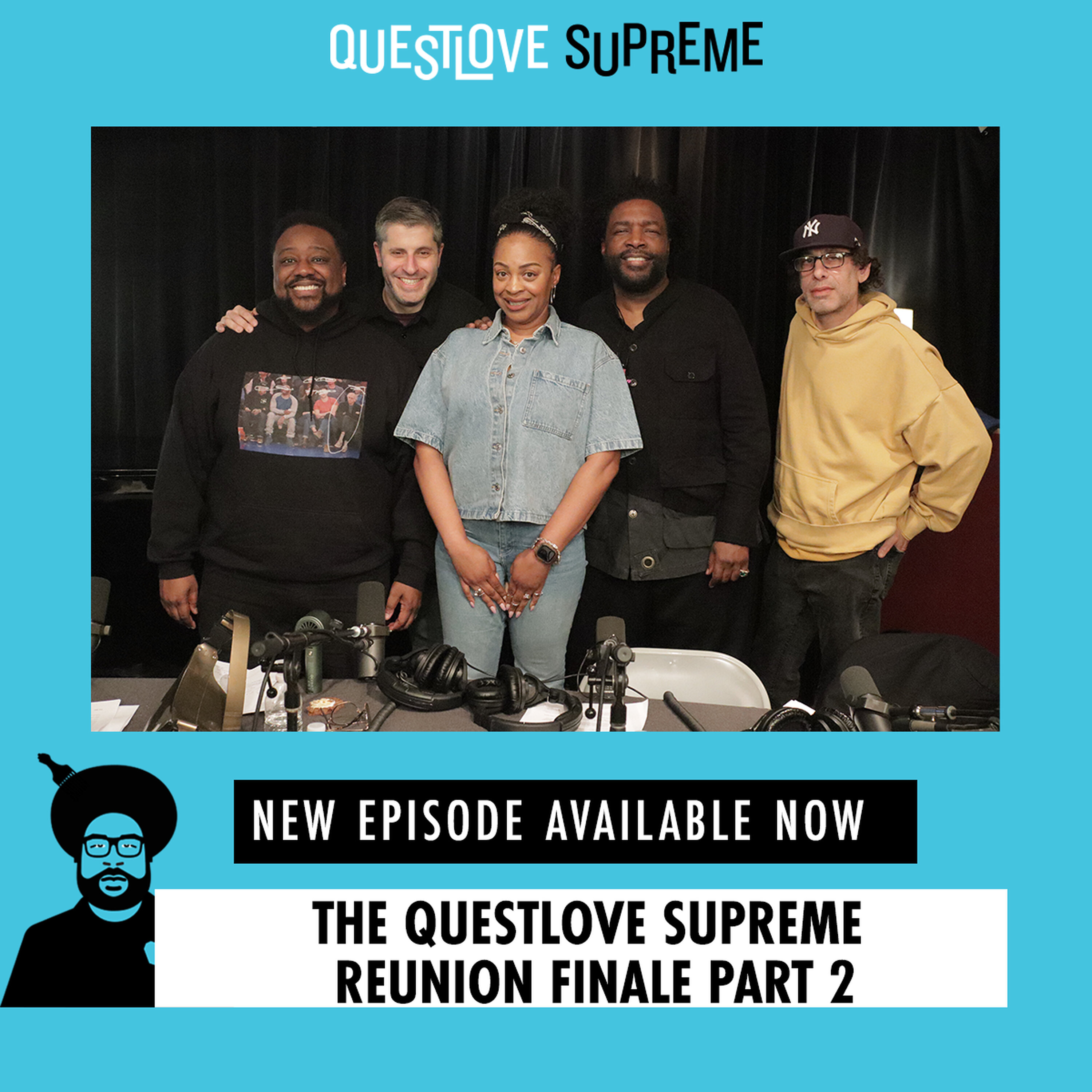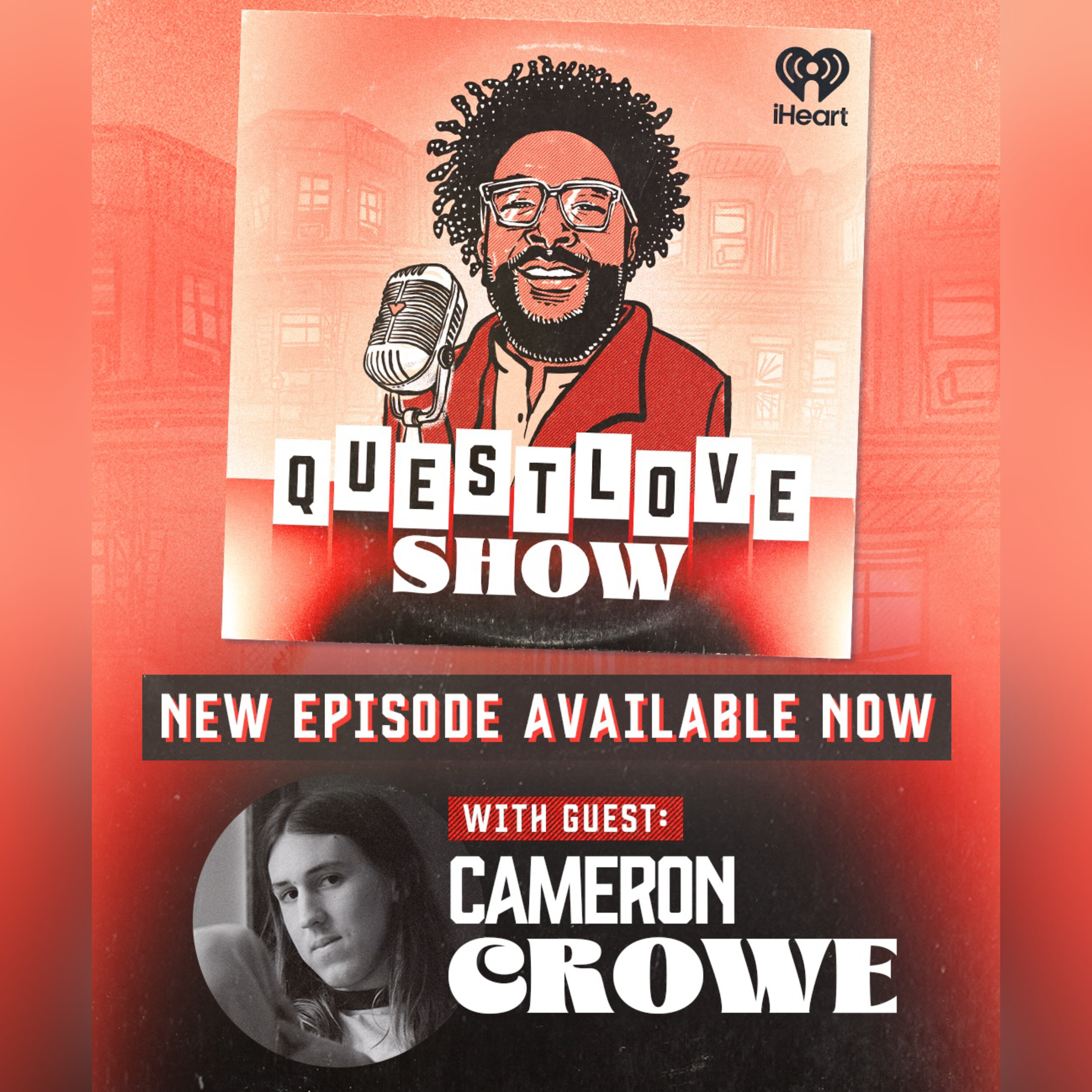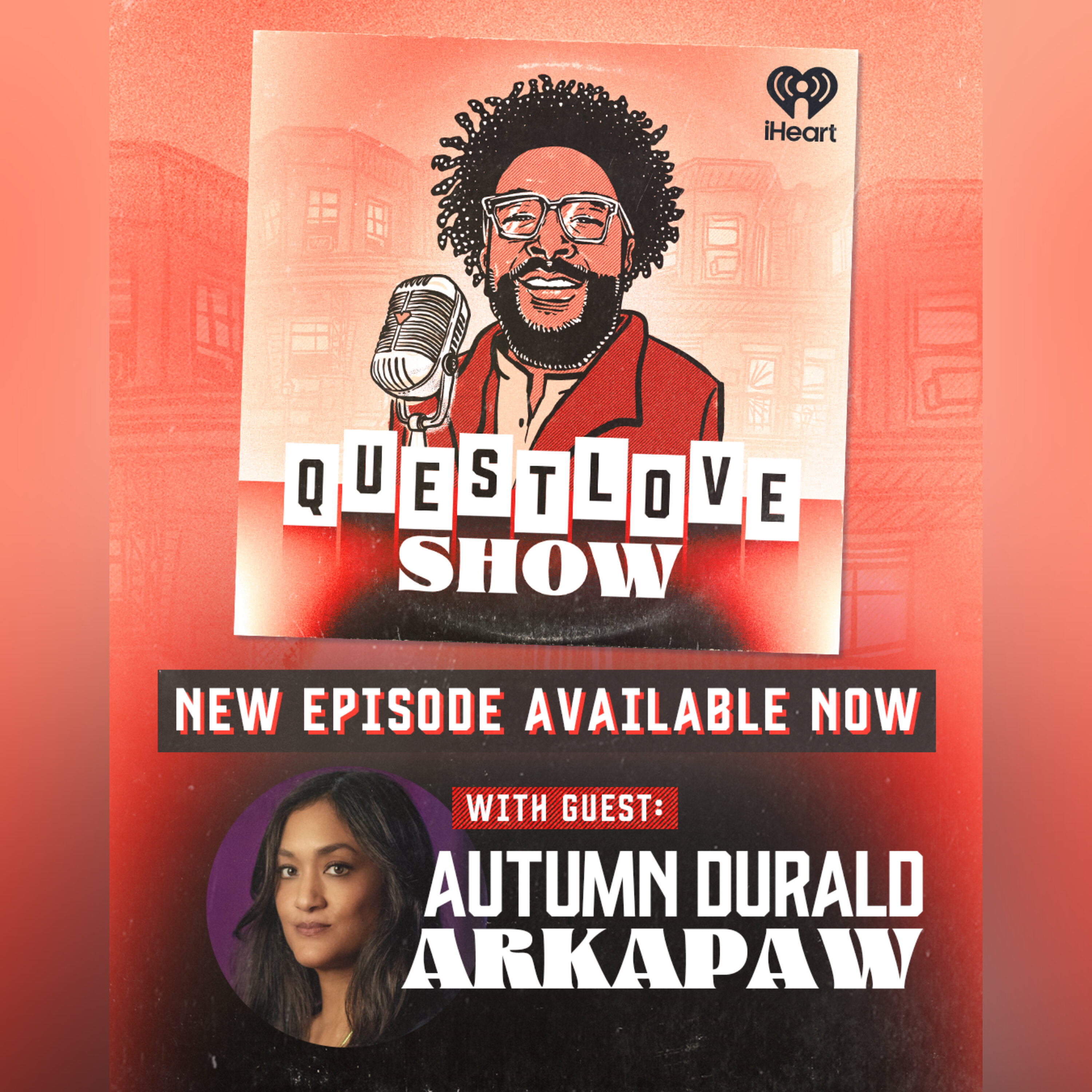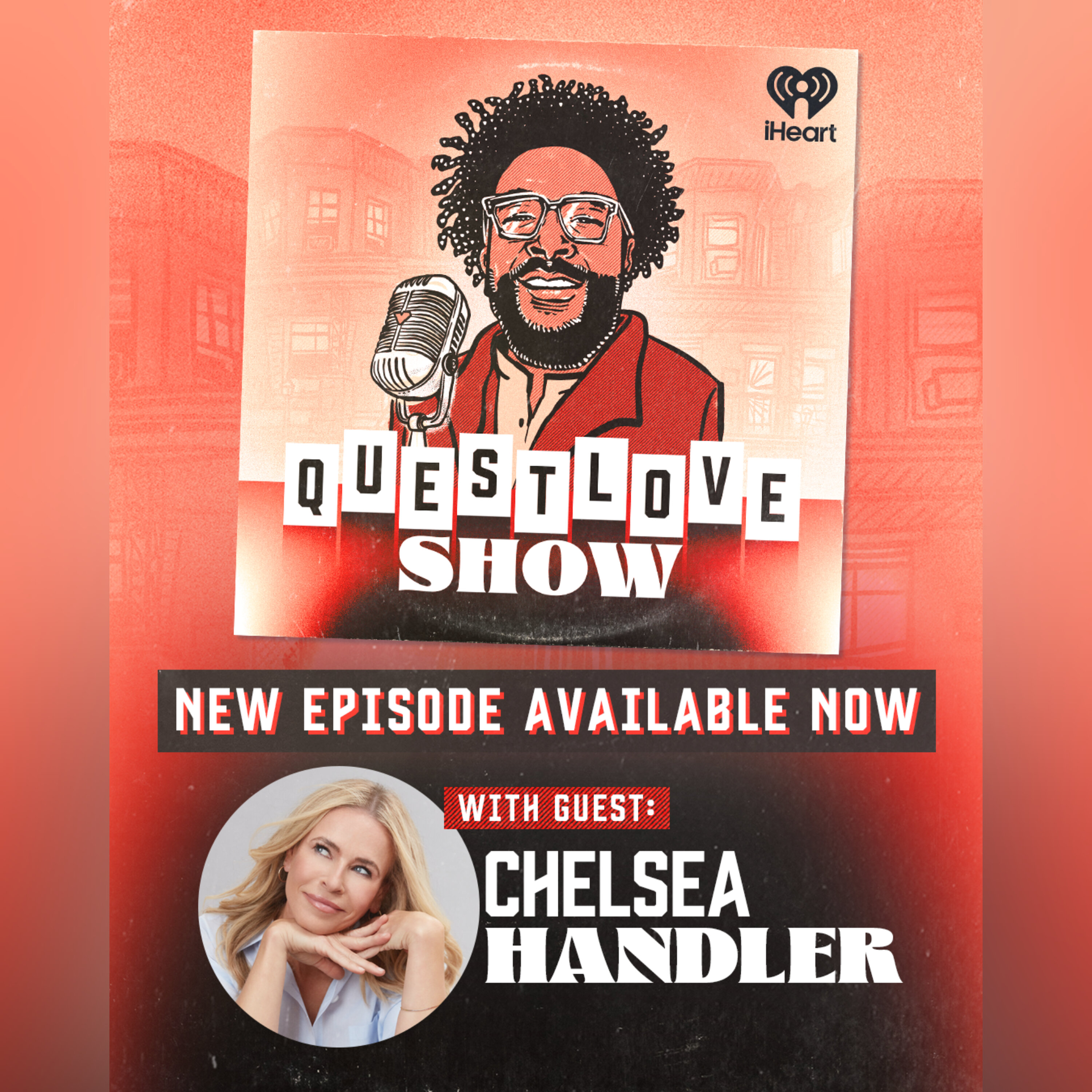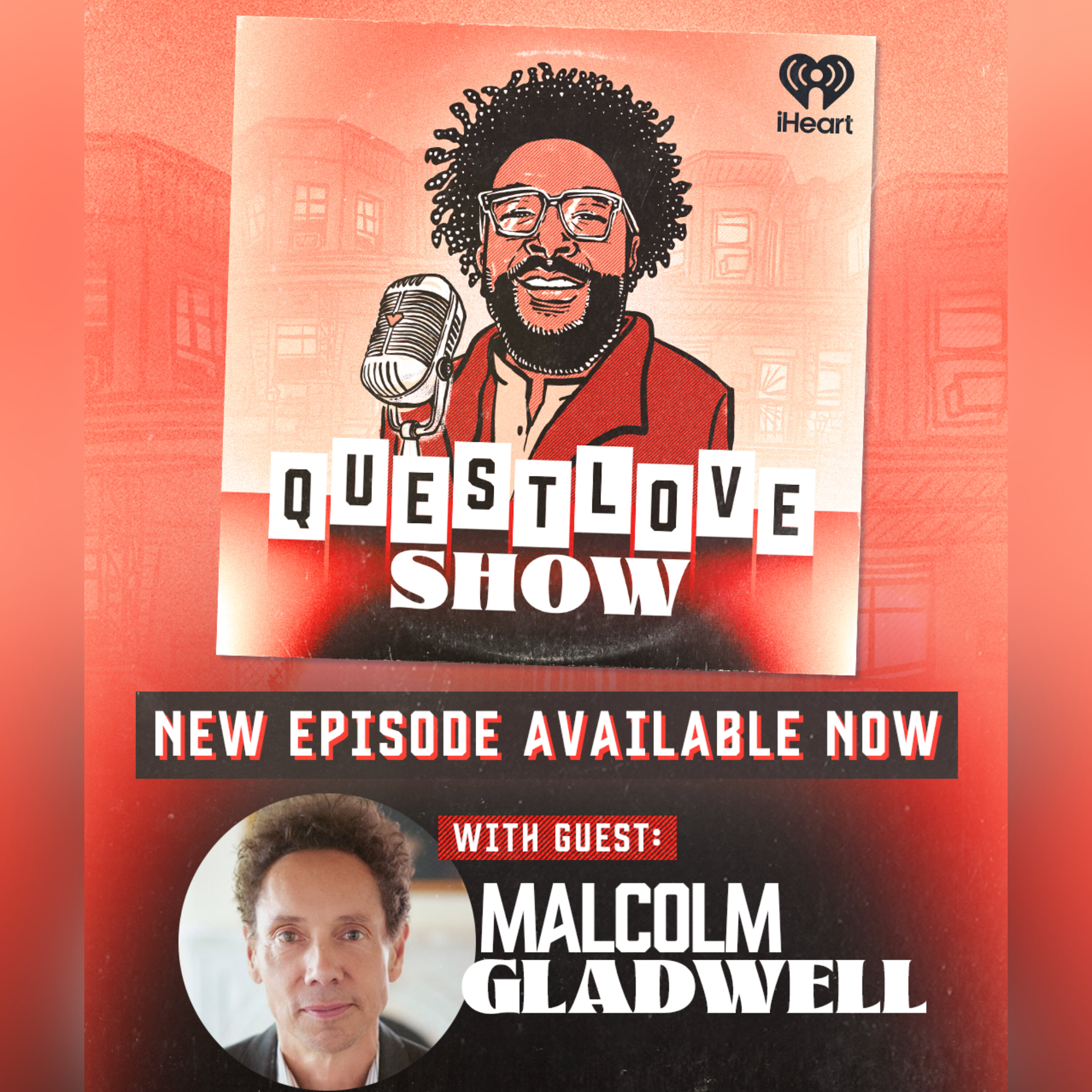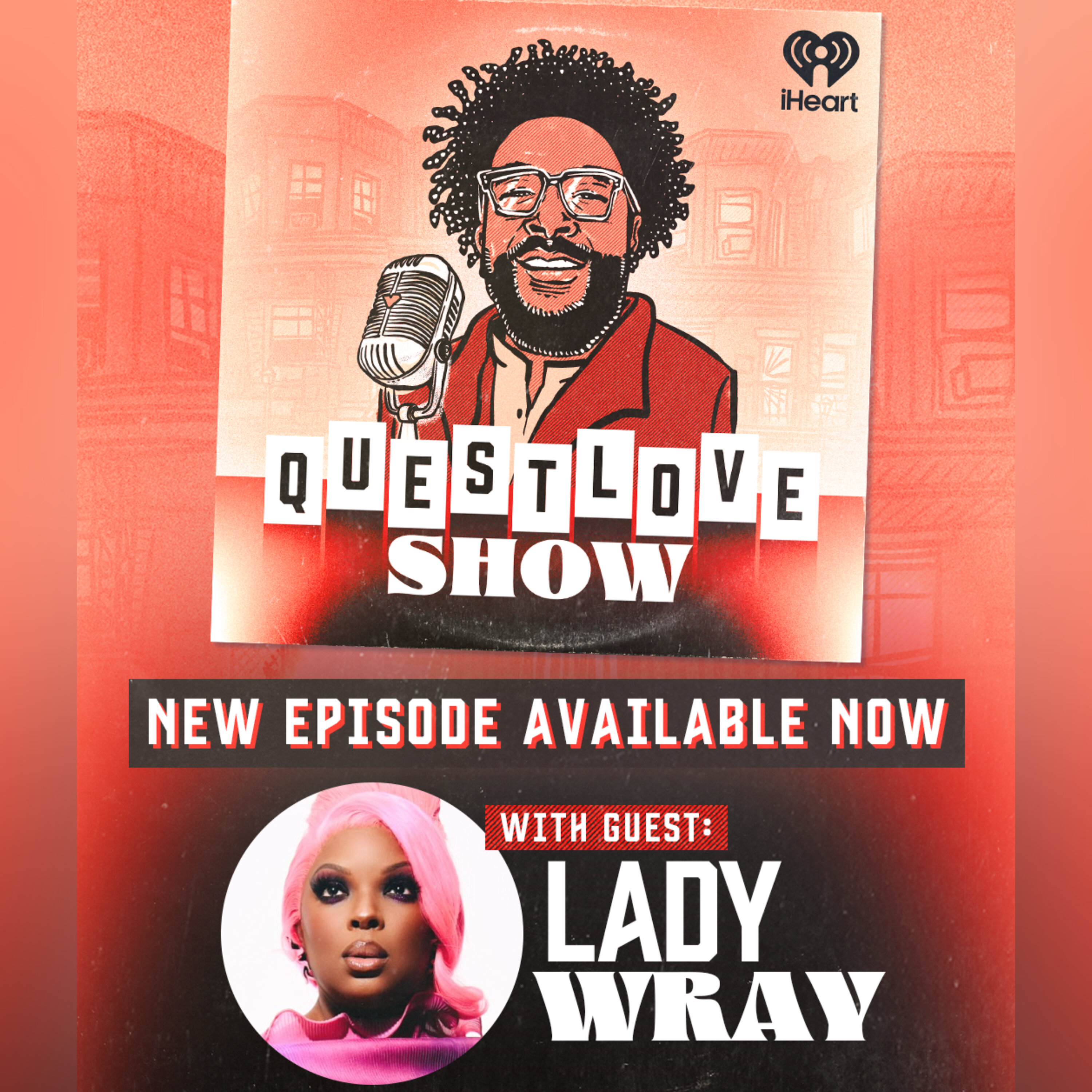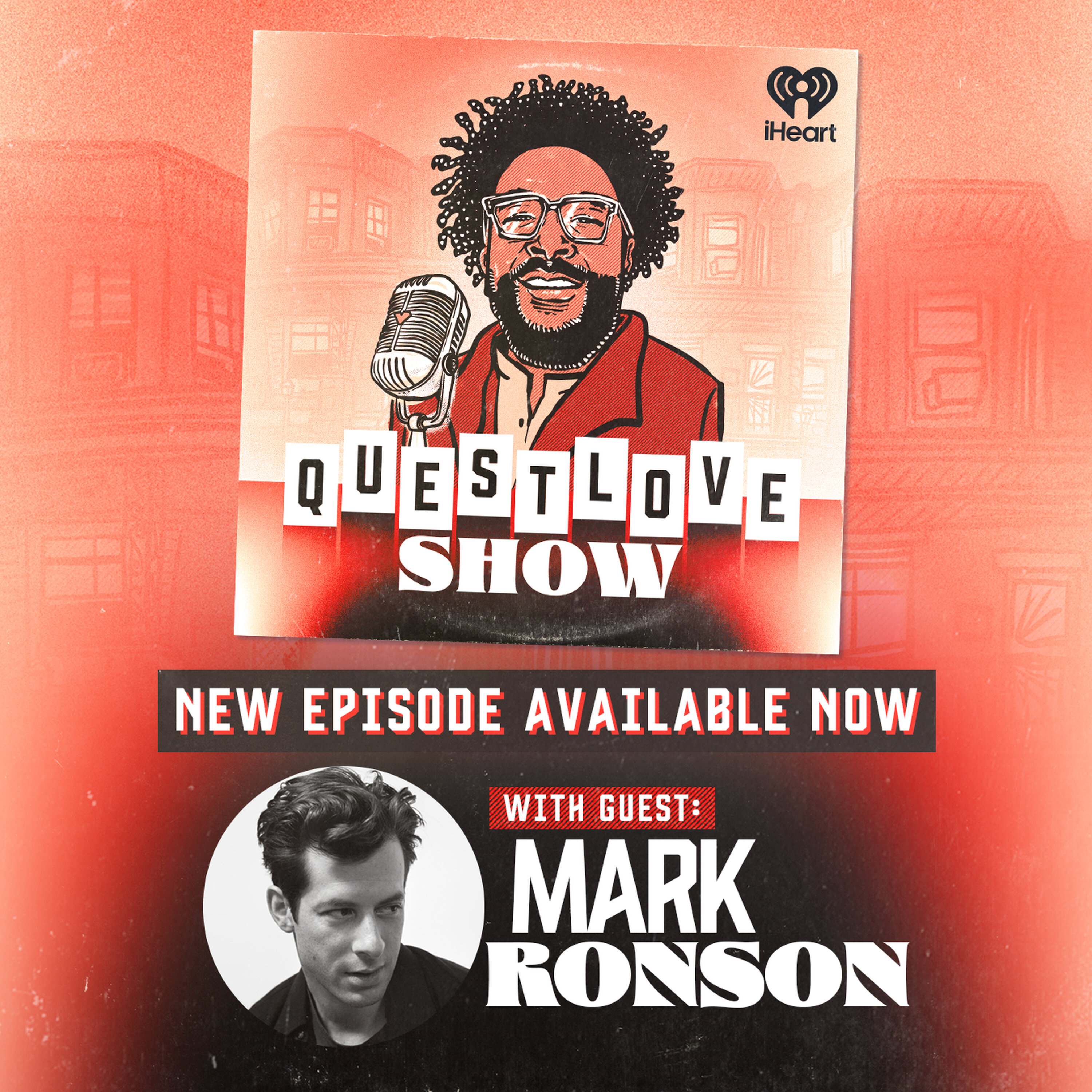Adam "AdRock" Horovitz

Adam Horovitz of the Beastie Boys joins Questlove Supreme to discuss his incredible journey. This conversation includes AdRock looking back to the early days of the Beasties and how the Punk band made an authentic and passion-fueled segue into Hip Hop. AdRock also speaks about his distinct voice, a lifelong passion for crate-digging, and how his career has allowed him to experiment with creativity now. This two-hour discussion has been years in the making, and it's worth the wait.
00:00:00
Speaker 1: Quest Love Supreme is a production of iHeartRadio. This is one of the moments where I don't even want to waste time, but I think I should say, first of all, if you don't know what you're listening to, this is Quest Love Supreme, your host Quest Love. I'm here with on pay Bill the Great.
00:00:25
Speaker 2: How you don't Bill fantastic?
00:00:27
Speaker 1: This is quite a day, Steve. How are you your home?
00:00:33
Speaker 3: Yeah, I'm home. I am on the East Coast. I don't have kids, so I just woke up.
00:00:39
Speaker 1: There you go, let's here, let's here for the child. Listen, cat dudes. All right. So one of the coolest things that I enjoy about my charmed life being the passenger seat of the first twenty years of recorded hip hop is also being witnessed to a lot of pioneering first and some thirty years ago on his fourth album, the late Keith Allen aka Guru instructed us on It's Hard to Earn album that it's mostly the voice. Mostly the voice. Our guest today is absolutely no exception. I will go on record and saying that our guest today probably possesses one of the greatest voices intonations. He's in my top ten favorite voices in all of hip hop, and kind of the Domino effect shows it, you know, when hip hop really came to an existence on Wax. At least, I feel like most MC's were kind of derivative of what we call the wonder Mike voice. Early Chucky was also that Meli Mel of course, ushered in the old MC, so they're you know your LL's, your your runs. Most will credit Mellie mel Is being the first authoritative Rah screaming MC. Of course, we can't forget Slick Rick's voice and his storytelling intonation and who he's inspired. Snooping down the line our Guest today is one of my favorite textures in hip hop. I don't know a thing for sort of animated nasal, whiny, high end above tenor below soprano voices. Not to mention the amount of history that Our Guest possesses today and these pioneering albums. As we speak, we're two years late of the thirty seventh anniversary of his debut album, Licensed to Ill. This is also the thirty fifth anniversary of his mind blowing sophomore album, Paul's Boutique, the thirty first anniversary of Check Your Head. I Can Go on and on.
00:03:06
Speaker 4: All right, it's been it's a lot of time. It's a lot of decades.
00:03:09
Speaker 1: Come on, dog, you listen to the show, you know each intro seventeen.
00:03:15
Speaker 4: Forty all right, all right again.
00:03:17
Speaker 1: Adam Harwinz aka King of Rock formerly still of the Beastie Boys, to cost Little of Supreme. When people talk of you, I know, they speak in terms of like lifetime achievement, awards, introductions. They just don't say. And our guest today is Adam harwinz the Beastie Boys. Like, did you imagine one day this would happen?
00:03:37
Speaker 4: Short answer, no, No, there was no plan, no thought, no nothing past. You know, what's the weekend?
00:03:45
Speaker 1: I will say for our audience that, first of all, one of my favorite all time audiobooks is is The Beastie Boys memoir, which I can't recommend enough if our audience isn't familiar with that book and how it's crafted the way, you know, it's almost like a hip hop version of Prairie Home Companion. So I'm actually going to spare this particular show of the kind of soup the nuts questions that I would normally ask on the show that's been covered in other interviews and also been thoroughly covered in the book. But there's a lot of in between the cracks that I'm curious about. So where are you speaking to us now from.
00:04:29
Speaker 4: I'm in the mountains. I have a cabin a studio smart in California.
00:04:37
Speaker 1: Without giving you a way, is this the uh everyone's recommending to me? Wherever Stevie Wonder took that photo in talking book? It begins with the letter E. It's like the mountains of It's like an hour north.
00:04:50
Speaker 4: Of LA I don't know, but it's that.
00:04:54
Speaker 1: I'm about to say air one, but that's the supermarket.
00:04:57
Speaker 4: I'm up in the mountain. Here we get there's bears andcats and stuff.
00:05:01
Speaker 1: So what I was going to ask, is the mountains more serene for you? Is that?
00:05:04
Speaker 4: Like?
00:05:05
Speaker 1: Why that location?
00:05:07
Speaker 4: Just it's not at my house. It's a different place. It's my own space.
00:05:12
Speaker 1: Okay, So you don't like to shit where you eat as far as creativity is concerned, you want to go to a place to be creative or not.
00:05:19
Speaker 4: I'll eat wherever and I'll ship wherever. That's not you know, I'm fine shitting and eating.
00:05:23
Speaker 1: Okay.
00:05:24
Speaker 4: It was COVID, you know, like you know, we were just all together so much that I want to get my own little space smart. I was lucky enough to get my own little space, A little smart.
00:05:37
Speaker 1: There you go. Sometimes you need your own real man cave.
00:05:40
Speaker 4: I get you, I get you, or nap zone, whatever you want to call it.
00:05:44
Speaker 1: Hey dog, I get it. And you know the fact that you two are still a unit speaks volumes. That's why sometimes space is important. I get that. What was your first musical memory?
00:05:58
Speaker 4: My first musical memory? My memory is very bad, but yeah, you know, driving in the vw vand with my dad and my brother and sister and my dad would just blast music eight tracks always and sing along really loud.
00:06:16
Speaker 1: And it were you allowed to curate the selections or was it like don't touch my stereo?
00:06:22
Speaker 4: No, no, no. He would drive, he'd you know, be driving really fast and be reaching for the eight tracks and trying to push you know, the one, two, three four thing. And that's when I really got into music as a little kid, especially from the radio. But I also knew. I was like, what is it? What's the deal with Neil Young? Like my dad would scream sing Neil Young songs?
00:06:44
Speaker 1: Got it? Okay?
00:06:45
Speaker 4: It's a tough thing. To listen to. It's like a five year old.
00:06:49
Speaker 1: Well, yeah, I was gonna say that. I two lived in a don't touch my stereo household, so a lot of the music that I went touch with a ten foot pole suddenly you know, you know, I'll give you a great example. So my dad was like pre pre yacht rock, free am radio pop, like he liked vocals like Johnny Mathis, Barbara Streisan, Nat King Cole, anyone that flexed harmony as well. So we have pet sounds in the house, but I'd never touch it right. And then when I read a review that wasn't the Rolling Stone Lever review Paul's Boutique, someone said, oh, this is Sergeant Pepper. He's like, I disagree. This is the pet Sounds of hip hop. There's more pioneering. And I was like, wait, dad has that record. So actually, like Paul's Boutique opened my mind to something I would otherwise resist before the age of eighteen, I'm now open to. So I'll ask you, like, because if you're listening to all of the music that you guys and all your refer and if you're familiar with the rapid fire way that you guys craft records. I would have thought that coming out the wound, that you guys were just like music savants that you know, grew up with the pedigree at the age of one of all this music. So I might have believed that at least with the first ten years of your life is more like force learning or Stockholm syndrome.
00:08:22
Speaker 4: Like no, no, no, no. So so that's an ingrained memory, you asked, like, my first memory, that's an ingrain. It's not it's not a pleasant one, but it it's a memory. But I have an older brother and sister, and this is you know, early seventies, when forty fives, you know, forty fives and I and the AM radio. It was a certain time in the radio where it wasn't like this type of music was played on this station. This type was played on this station. That you know, the music being made in the early seventies was a little taste of all of this different stuff, right, And you know, the radio kind of reflected that for a minute, and we had a sort of lesson from the radio for a very brief time. And also, growing up in New York City, just walking down the street, you hear so much different music that you're you're being taught every day.
00:09:14
Speaker 1: Okay, I would say probably in my mind, you're one of the figures I think of whenever someone's talking about the folklore of what New York City used to be or what New York City was. In your mind, what is the best version of New York City that we'll never get back.
00:09:35
Speaker 4: You can't ask a fifty eight year old that question, you know what I'm saying, because I don't go to clubs, I don't go to parties, and shit, do you know what I'm saying. Like when I was, you know, in my teens and twenties, I was out all the time having fun, doing this that and the other, running around rooftop parties, this that and the other. You know what I mean. And now you know I love my life, but it's a different light. So if you put me at a rooftop party with a bunch of twenty year olds right now, it's not for me.
00:10:06
Speaker 1: Right now, smart answer.
00:10:08
Speaker 4: In my twenties, Yes, I'm at the rooftop party. I got a forty. I'm having the best time right now, fifty. I have fifty eight. I have a Knicks game on, I got a chicken parmesan and I'm good. So those are those are my two happy places?
00:10:28
Speaker 2: Forty or Chicken parm one or the other done and done buggae.
00:10:32
Speaker 1: I think for me, though, the one thing that I miss more than anything is just I mean, there was a period in which, like whatever the equivalent of the best orgasm you ever had, like music did that to me, not daily, but weekly, like it was a guarantee that four to five songs were going to be played. That just made you like, holy shit, what the fuck is this? Sometimes it's replaced with you know, someone does something really cool on Instagram and I'm like, oh, that's dope. But for me, it's I think I'm more or less asking because music is so central to your life, and I know you're a serious record collector. Do you miss the time of which you were discovering music as opposed to where you are now, which is like a know it all expert of music?
00:11:33
Speaker 4: Again asking if any grown up is really it's just it's a different time of life, do you know what I mean? I do I listen to my old records, not that much. I have them, and I used to listen to them. I don't really listen to him that much, am I jaded in terms of music, and you know all types of arts, Like you see a band or a performer and you're like, yeah, I know what that is. I don't really like it. And you don't really give that a chance because you're you've heard it a thousand times or so you think that makes sense. Yeah, And so as you get older, the sad thing is that you end up cutting yourself off to that type of experience. That's just what happens.
00:12:18
Speaker 1: So are you still open?
00:12:20
Speaker 4: No?
00:12:21
Speaker 1: Okay, I.
00:12:25
Speaker 4: Couldn't care less.
00:12:27
Speaker 3: It's open to chicken palms.
00:12:29
Speaker 4: Yeah, you know what I mean, Like I had, you know, like I could get the Interest Mohammed record right now, and I'm telling you it would be just as good as not better. I could get a meters record. It would be just as good as not better than whatever. Whatever. Maybe that's me, but maybe that's fifty eight year olds.
00:12:45
Speaker 1: So what I do now, I'll pick like maybe there's always three to five kids or maybe three to five parents that will put me hip to their kids and the kids like curiosity of record collecting. And you know, I'll usually around this time, I'll do my Santa quest stick and I'll just so that gonna, I can have an excuse to go record shopping and go digging, like I gotta do that. So I'm not doing it for me, but I'll record shop for you know, a bunch of eight to ten year olds. Now, you know, come to Christmas Day, they're going to have like an amazing record collection to start on. So I was shopping yesterday. My main spot is a one Records in the village, and you know, there's always someone on the turntables just playing like something cool whatever. And this guy's playing side to of the Ohio players, mister mean album, an album that I otherwise would have passed up owned. But I realized in going through all the alphabet and him letting it play that Yo, I've been listening to records from the hip hop standpoint, where you know, in the very beginning, in such a rush for that, you know, dopamine of where's the break or where's those four bars? I need listening to it on forty five or just perusing through it and that sort of thing. And I realized that I stop listening to records just as records without a purpose of this is going to inspire me to write a song or go to DJ this next week, And so now I realize I got to go through my entire collection again just to go back to my childhood before hip hop existed. Like when you listen to records now is it? I'm certain in post eighty nine you were listening to records for what's going to help build the machine of my art, But for now, how do you records? Like are you still in that place where.
00:15:03
Speaker 4: There's a few things that I want to say that happened real quick, because there's a lot we just discussed. Yes, So I play softball with my friends right and to old people, and we all bring our kids, and some of the kids play. And my friend's kid Nat Show. He's nine, and we have walk up everybody have to pick a walk up song before you play softball. The kid played Travis Scott Fiend Fiend or whatever, and me and my friend and it's blasting, and I'm like, I was like, this is what parents must have thought when people were listening to Slayer, you know what I mean. It's like just this thing that was like, I don't you know, this is not for me. It's not for me. And I think that's okay for me. At least I've accepted that, you know, it's not for me, it's not made for me. I can like it or not, like whatever, it's I'm kind of irrelevant from that group of people that are listening to that. To modern music, that makes sense. Also listening to when you hear Ohio Players, you're like, bunt you worm players ball and you know all of their songs. You're like, you know, mister Mean was like a later record. It's okay, it's not I wouldn't put that on. And so the time that you have in a day to pick a record out from all the records you have, you're not gonna pick mister mean. Makes sense. But at the same time, in our early years we listen to songs, We listen to music, That's what we did. And then when we started record shopping in terms of sampling and all of that, we didn't really listen to music, do you know what I mean. It was like mathematical, it was a hobby. It was a thing, and it was all of that needle dropping and trying to find the thing and cool and then you made something from that, which is great. But now I don't do that anymore, and so I just actually listened to my.
00:17:01
Speaker 1: Records and do you let it go all the way through? Yeah, I mean we now live in a time in which the remote post remote control shuffle culture, you just skip to the part you like, again, the dopamine rush of it.
00:17:15
Speaker 4: There's also the thing of if you listen to something on a platform, you know, Spotify, one of those things, then it plays the song that you want to listen to, and that starts playing all this algorithm shit and then all the next thing you know, you're listening to fucking Tom Petty or some shit. You're like, this is not what I started out with. I don't want this.
00:17:33
Speaker 1: Just saying so you're primarily a wax person, Like what's your weapon or choice as far as how you consume music.
00:17:40
Speaker 4: That's it. But but yes, the downside of it is that you only listen to things you already know. So I'm not listening trying to find new music very occasionally, but not so much. Okay, all of the music, you know, it's sort of stopped at a certain year or time. Dub records are my favorite, right, So I'll put on Prince Jasbo and then you know, how are forty five minutes have gone by and I've listened to that record, and then I listened to Lee Perry record, and then so I'm not listening for the newer record. But the drawback is that you kind of you're stuck in the past of you only need things, you know.
00:18:27
Speaker 1: I specifically want to hone in on your creativity in the world of hip hop. I would think that some of my peers that are hip hop experts know that you have aded in creating the very first twelve inch for def Jam, which is you programmed the eight to weight and telarox. It's yours correct, No, the world things that you helped do that.
00:19:00
Speaker 4: No, Rick Rubin did that. I'm I was at the recording and I'm in the party track in the background.
00:19:06
Speaker 1: See you're the d like it. Yeah, yeah, you're the crowd. Okay.
00:19:11
Speaker 4: The story is l LL's first single.
00:19:15
Speaker 1: I made the beat for, So you made a beat for I need a beat.
00:19:18
Speaker 4: I made the beat that he needed.
00:19:20
Speaker 1: Yeah. That's even more pioneering because I don't even think LLL told me that story. Oh shit, Okay, I thought it was it's yours, my bet. So what was the day that you guys collectively said that, Okay, we need to sort of morph or pivot more to hip hop, Like what was the seed? That was Planet That was like, Okay, we can either travel this punk way or we can try another route. Like what how did that happen?
00:19:50
Speaker 4: I don't know how it exactly happened, but we were a hardcore band playing you know, hardcore shows, punk shows, and the scene was changing, right the hardcore scene. It was getting into like a real tough guy thing, and we were feeling sort of we didn't want to be part of it. We were kind of edging out of that scene. But we were also listening to rap a lot of rap music at the time.
00:20:15
Speaker 1: Wait, you cannot stop you one second. So you're saying that at one point the punk scene was a more pure for us.
00:20:22
Speaker 4: We were you know, as kids. It was like we had a little we had our little group of friends and you know, it was we were teenagers, boys and girls, and it wasn't the thing. And then hardcore show started. You would see like the guy from the football team at school would be at the hardcore show and you'd be like, what's you know, they were just making fun of him.
00:20:40
Speaker 1: So you're saying that you had a bridge and tunnel kind of that sort of thing.
00:20:43
Speaker 4: Started issue Okay, so we wanted to do something different and our music started. The music. We stopped kind of playing so much hardcore where were started experimenting with different music and then we just I don't know, we had a show oh jumping a little bit after we wanted to try it. But we had met this guy Rick Rubin, and because we were gonna do a show, we wanted a bubble machine for the show. And my friend Nick Cooper was like, oh, I know this guy Rick Rubin has access to a bubble machine, and so we need him to get the bubble machine. And we saw he had turntables and he was a DJ, and we're like, oh shit, let's we got the show. Do you want to try to you know, to rap?
00:21:24
Speaker 1: Right?
00:21:25
Speaker 4: So we just kind of did that and he brought his turntables and it was fun and we did We did like, you know, twenty minutes of hardcore songs and then like fifteen minutes of rap.
00:21:36
Speaker 1: Was the audience throwing off.
00:21:37
Speaker 4: I mean there was like maybe thirty people there.
00:21:41
Speaker 1: Maybe the less people the more hard it is, like is more intimate, So.
00:21:49
Speaker 4: Yes, being booed by thousands is easy.
00:21:52
Speaker 1: It kind of is. I was booed by thousands before. But it's way harder than like the fear of me comes if I'm playing under if it's under two hundred people, like if it's Blue Note size or Village Vanguard size, I'm scared out of my mind. But any other place I can just channel them out. So well, obviously, I mean, it went good enough for you guys to say, like, let's do it again. But what's the point in which it's like, Okay, this is what we're gonna do for real.
00:22:21
Speaker 4: I don't know, you know, so long ago we then we're playing shows and we were doing that, and then Rick had his record label. He wanted to try to make that, like he wanted to put out rap records because he had already had Deaf Jam. He had a he had like a noise art band called Hose, and he put out his own record under deaf Jam. Got he wanted to you know, partner with somebody and make rap records, and so he met we We were all at this club dan Seyria, and he had a meeting with this guy, Russell Simmons. He was Run's brother and Running the Thing's manager, and we were excited.
00:22:57
Speaker 2: Was Rick Riggins pursuing always what we know it is to now.
00:23:01
Speaker 4: I don't know him now, so I wouldn't know. He was really into wrestling, so he wanted He was very loud and like that kind of like over the top wrestling guy. Yeah.
00:23:09
Speaker 1: I don't think he was going back then. He's been on our show, so he's very's in.
00:23:15
Speaker 4: That's very not at all what he was like when I knew him.
00:23:18
Speaker 1: Got It, Got It, Beastie Groove one. Can you were you there at all when the Latin Rascals were doing edits for you?
00:23:30
Speaker 4: Oh?
00:23:30
Speaker 1: Yeah, all right? Can you just explain that whole entire process, because.
00:23:36
Speaker 4: Somehow we ended up at Shakedown Studios, which is Arthur Baker's studio, and Arthur Baker made Planet Rock. He did like he made a couple of really big records right and remixed in the eighties, and he had these guys, the Latin Rascals who would do his edits.
00:23:54
Speaker 1: And the edit. They're under his tutelage.
00:23:57
Speaker 4: They well, they worked at Shakedown Studios and he yeo yeah.
00:24:00
Speaker 1: Yeah, oh god dog, we gotta get author on the show Man.
00:24:03
Speaker 4: And I know this because Adam Yao worked at Shakedown Studios at that time he was a gopher. He would go get the you know with the sodas or whatever, you know, whatever sandwiches for the Latin rascals.
00:24:16
Speaker 1: Ah.
00:24:17
Speaker 4: And these guys they were in like a closet sized little side studio at shakedown with just you know, two reel turreels and they were taking you know, just the razor blade and the tape and they would just cut this little fraction of word and cut it and then you know, splice it, tape it in and then re record it and then tape another one, then splice that and tape it on to the next one, and it'd be like bla bla blah. They would literally do that with tape. It was crazy.
00:24:47
Speaker 2: That's crazy.
00:24:47
Speaker 1: You're saying to me that on BC grus or parties getting rough when you guys are like, ah, all that stuff is handstopped. It's so they would have to make like ten copies of a song.
00:25:02
Speaker 4: Forever, for hours and hours and hours, and if you splice the tape wrong, well, oh well I don't know what you're gonna do. So they were so precise and so talented at what they did. Nobody could fuck with them. They were so good at Latin rascals. I mean, it's a thing that you can't even understand. Now what the thing of slicing tape was the idea of Slidestone taking a two inch tape his song and just slicing it is crazy. You would never do that.
00:25:37
Speaker 1: Yeah, So just having finished his dock and getting privy to his master reels and all that stuff. I was rather shocked at how air quote hip hop sly really was, especially with Loose Booty, which I mean a lot of post Riot stuff was just him sampling himself and you know, like to hear the original jam sessions those things came from, and then.
00:26:08
Speaker 4: Then those to me whenever you feel like it, I would like to have those.
00:26:13
Speaker 1: I got Yo. You'll you'll be You'll be shocked. Probably the biggest revelation that so much in the movie that we had to take a lot out, and a lot that we had to take out was the just the nerdy stuff. Uh. There's a period there's a moment during Fresh there's at least four songs in which the only way I can describe it is it's almost like he had Fela's army assault, Like there's a baby's making babies. There's a a bloated version of a skin I'm in Like, at one point Fresh was going to be just like a just a sonic assault of like at least with Specter's Wall of Sound thing. It was side of a compressed.
00:27:03
Speaker 4: To have like four drummers playing at the same time.
00:27:05
Speaker 1: Yes, dude, I was like, okay, dude, it was her pat rizzo, like all right, beyond forty eight, but go ahead, no, it was over. I mean what we wound up with was the better record stripped down. But the initial Fresh sessions, like four of those songs were just like just an army of the.
00:27:34
Speaker 4: Brothers beat where there's two drummers playing.
00:27:37
Speaker 1: Oh, get into it so good? Yeah, yeah, yeah, get into it. Okay, just two getting into it. Yeah two. Now, this this.
00:27:46
Speaker 4: One is full the Niagara beat.
00:27:48
Speaker 1: I'm familiar with it.
00:27:50
Speaker 4: That's two drummers. That's a good one of each other. Okay, wow, okay. Oh. Also in Dante Carfona No Hit Me to It, I was on tour in we were on tour in ninety eight. We had the day off. I want to find a record store for record stores. Okay, I think this this whole thing is in the book, is in bac Boys book.
00:28:15
Speaker 3: Okay.
00:28:16
Speaker 4: We had a day off and I went through the Yellow Pages and I found like all the used record stores, and I took a cab to the first one and I go in the record store and there's some some records playing whatever, and I'm flipping through. It's a huge record store, and all of a sudden, I hear something that I'd never heard before, some breakbead and some crazy like some crazy shit. And there's nobody in the store and it's like ten in the morning, and I'm trying to look and I see this guy in the back at the turntable behind the counter, and he's like pointing at me and looking at me and laughing, and I go right over to him. We start talking blah blah blahh. He's like, my name's Dante. He's like, I work here, but I'm the one who buys the records when people sell a record, so I sift through them before anybody else says. And he's like, I'm gonna go want break in an hour, Let's hang out. And I went to his house and he just played me these records that I've never heard before. Since he is a record collector, he's put out tons of compilations. I can't even begin Dante Carfona. I'm I'm surprised you don't know him.
00:29:21
Speaker 1: Hey man, I'm not to know at all. I'm the student.
00:29:23
Speaker 4: I just wanted to give his little shout out because he's amazing. Okay, a couple of records and having the good stuff. There you go blaming. I agree. He's like you ever heard this? I was like, no, never heard this? Wow that I still get excited about hearing a break that I've never heard before.
00:29:44
Speaker 1: And do you still go in those missions?
00:29:46
Speaker 4: I've got like twenty five hundred records I've never listened to in crates that just say listen.
00:29:51
Speaker 1: To right your record. So yeah, I mean that's kind of where I am now, where I don't necessarily go. I'm digging as much as I used to. Now it's the first generation of record collectors dying. So I'll get a lot of calls from daughters that are like, hey, dad had a seven thousand records, do you want them? Or? Sadly enough, a lot of colleges are ending their jazz programs right, radio stations shutting down, so like, I know, oh, two hundred thousand records, that's a lot of records quest but I don't want people thinking like I'm going to record store. First of all, I don't think there's two hundred thousand individual good albums. I mean, you know, I have at least three hundred Billy Jean forty fives. So like kind of the new thing now is whoever would service jukeboxes at diners and bars and whatnot, they would have a warehouse or that sort of space where all of their forty fives and that they were serviced to mom and pop stores. Those people are dying and you know, either the mom has passed and the kids are just like, we don't know what to do with it. Whirred. Do you like music? You know, it's fourteen forty fives if you want them, So right now I'm kind of hoarding, uh record collections.
00:31:18
Speaker 4: But all right, two things, Yeah, do you miss the good old days when people sold their records for drugs? I mean, come on, you know and two three hundred copies of a Billy Jean forty five? Why what are you doing?
00:31:33
Speaker 1: Well? No, I buy collections again. Like there's a guy in Atlanta three hundred is like what well, why I realized after the fact, you know like it'll.
00:31:42
Speaker 4: Oh my third thing, yes, which lids to a fourth thing. You live in New York storage, Like you're bleeding money, just bleeding money. Why are you going to a one it's like the most expensive record store. What are you doing?
00:31:55
Speaker 1: Because I need some to do?
00:31:57
Speaker 4: Yo.
00:32:00
Speaker 2: You always complained about how busy you are, you need something to do. Now that seems like bullshit.
00:32:04
Speaker 1: I almost feel like listening to the record is almost like the last part. Like for me, the excitement of all right, I'm gonna take three hours out and go record shopping. I get the joy of going to a record store and buying a shit little records and I'll take this that this is. I could easily go in my storage and do that. But you're right, so right now I brought in the pandemic a farm and I will on this acreage build something that will house and store this. But right now, yeah, I got like somewhere between eight to eleven storage units, and it's killing me inside.
00:32:45
Speaker 3: Like in your defense question, though Billy Jean is a very important record, I.
00:32:51
Speaker 1: Was given a hypothetical example, but yeah, the forty five's I buy are from people that were servicing jukeboxes, like back in the day, you buy like seventy eight juke boxes, go to each restaurant, Hey, you want a jukebox, and then you strike a deal and you service. This particular guy in Atlanta had ninety over ninety bars and diners that his jukeboxes were utilized.
00:33:18
Speaker 3: So that's the trick for when you get older and you're a record collector is to switch over to forty fives seven inches. They're smaller, lighter, and just as fun.
00:33:27
Speaker 4: Well I consider that part of I much prefer forty five too in LP.
00:33:33
Speaker 1: So right now, I would say the first generation of renaissance hip hop producers, your large professors, your Diamond D's, your Lord Finess's, they're in their anti Serado phase and like forty five's only I mean, it's a cool flex. Like I've never been one of those, Like I don't own a Macintosh.
00:33:57
Speaker 2: I'm not.
00:33:57
Speaker 1: Like, Yes, I acknowledge that the the vinyl is more superior, but I've never been a vinyl head that like worships at the altar of the most purest form of.
00:34:11
Speaker 4: Well, the thing about it is nobody else cares.
00:34:13
Speaker 1: Exactly exactly, So it's only a flex for the quest loves of Uh.
00:34:21
Speaker 4: There's three people in the room out of you know whatever, two hundred and fifty that care about that. You're playing a forty five time out?
00:34:28
Speaker 1: Timeout.
00:34:29
Speaker 4: Oh I have a timeout too, Go ahead. Yeah. I wanted to go back to this though. Yeah, go to memories, and I'm bummed because I didn't. I wanted to get here earlier to go through my forty fives. I have a stack of forty five's that were my mind when I was a kid, and because me and my brother had the room, I used to put every forty five that I bought, I put a number on and my initials when I was like seven years old. So I have like one to fifty of my first fifty forty five's.
00:35:05
Speaker 1: See you never got rhythm, no, no.
00:35:08
Speaker 4: But I have not gone back, and I wanted to do it for this to look to see which was the first one to get. What was I don't know the first album I ever bought, But I don't know the first forty five, and I wish I could remember because it literally has a number on it.
00:35:22
Speaker 1: What's the first album you ever purchased?
00:35:24
Speaker 4: Well, the first album I ever got. I was with my dad in the VW van. He had to stop and we're getting sandwiches, and he ran into like this thrift store real quick and it's like I'll be right back, and he came back out with Rolling Stones Out of Our Head, Out of Our Head album, like here, you should have this. And I didn't have a record player or anything. I was like okay. And then when I got a record player and was listening to records, the first record I bought album with my own money was the Rocky Horror Picture Show soundtrack. That's a stretch like.
00:35:57
Speaker 1: There you go, all right, that's you need more?
00:36:00
Speaker 2: That's well, just because you liked the show, just because it was there.
00:36:05
Speaker 4: It was just a phenomenon in New York at the time.
00:36:08
Speaker 1: Yeah, okay.
00:36:10
Speaker 4: I think I hadn't seen it yet because I was too young, but it was right in my neighborhood where they would it would, they'd line up on the street to see it, and it's like a big deal.
00:36:19
Speaker 1: Another thing I want to know is at the time when you guys were first recording, was there an immediate plan to make a full album? Like why did it take three years for you guys to finally get license? Still a little out of.
00:36:35
Speaker 4: There, I don't know you know, like you'd asked if I would have seen this coming, like where I'm at now or all of the stuff that's happened. Like I was a teenager, you know, I was still in school. I was going to high school, and you know, we made a couple of singles. I didn't I didn't know that we were going to keep doing this. I didn't know that we were going to stop doing it. But I didn't know. I didn't know, like anybody who had an album, but you know, the bad brains, But like I didn't you know, it wasn't a just made some singles. I didn't know that it was a bigger thing was gonna happen, and I was cool with it. We were playing shows. I had a little money. I'd never had that before, so I was like I could buy tapes. That was cool.
00:37:20
Speaker 1: I know. The legend of the story is that that Freddie Demand wanted run DMC to open up for Madonna. But you know, the amount of money that they were willing to pay for an opening act was way below run DMC's market price, And then they would I guess they asked Russell if he knew the Fat Boys or could get them, and instead he pivoted them to you guys. But what I always wanted to know was, Okay, So in nineteen eighty five, yeah, with just won twelve inch, I mean, if you two, if you count the Bazoodi MCA thing, and there's season on it, so maybe with just two and a half singles exactly.
00:38:08
Speaker 4: Cookie Puss and Polly Watch do we had a few little records out.
00:38:11
Speaker 1: I was gonna ask what was the show like if you had no album behind it? Like, how long was the slot? Were you doing? Like a half hour? Forty five minutes? Ten?
00:38:24
Speaker 2: Yeah?
00:38:26
Speaker 1: So all we had ten minutes.
00:38:28
Speaker 4: I mean, it couldn't have been more than ten. I don't know what we would have done for longer than ten minutes. All of the hits, I don't know.
00:38:37
Speaker 1: I would imagine for a lot of that audience that was their first hip hop experience.
00:38:41
Speaker 4: Yeah. Sure, And it goes back to the Rick Rubin wrestler thing. And so when we were like getting ready to go on the tour, We're like, what are we gonna do? We've never really done a show at like an amphitheater or anything like that, so we were trying to figure out what to do whenever. So Rick was very involved with that.
00:39:02
Speaker 1: Okay.
00:39:03
Speaker 4: He was like, you have to do like wrestler stuff where you have to like fuck with the audience and just be an asshole, and you know you're gonna.
00:39:10
Speaker 1: You know, he wanted you to be a provocateur.
00:39:12
Speaker 4: Oh absolutely, yeah, I didn't know you walk into the Paramount Theater and be like, I'm the King of the Paramount anybody. You know, they could burn this place down after we leave, you know all that stuff. What's the Eddie Harris record one of my favorite albums of all time where he's talking in between the songs. Oh that's why I'm talking shit, Eddie Harris.
00:39:33
Speaker 1: Okay, fucking great, and that's that was your modus operandi four.
00:39:38
Speaker 4: I hadn't heard that record yet, but it's that type of thing where I got it. Just fuck it. And they did not want that at all. It was little kids and their parents to see Madonna.
00:39:49
Speaker 2: This.
00:39:49
Speaker 4: It was just be major thing was her.
00:39:53
Speaker 1: Can't worried at all, like, oh, we might have chosen them wrong. Actor.
00:39:57
Speaker 4: Yeah, they wanted to kick us off the tour after like the second.
00:40:00
Speaker 1: Showy, but you did the entire show.
00:40:04
Speaker 4: Madonna was like, no, keep them, they're great Madonna's I Love Madonna's fantastic.
00:40:10
Speaker 1: Great person. Yes, okay, so you guys were sort of our first experience and I was wondering that as well. Like, okay, we had basically been living in Europe for the longest and us coming back to the States to start the second half of Ill Communication tour, and you know, at this point, I wasn't fully aware if you know, the audience would be with it or not with it. And you had us going on in between Atari Teenage Riot and John Spencer's Oh Dog a Tari Teenage Riot and John Spencer's Blues Explosion, then the Roots, then the Beast, show your Money's worth at that show, No Dog. Everything I've ever learned in my professional life I learned in those six weeks touring with you guys literally everything a writer to hotels to oh I can shop for records like anything that I've ever learned that I still do to this day. I learned on that tour.
00:41:23
Speaker 4: You never read Krs's book.
00:41:25
Speaker 1: I absolutely you want to know something hilarious. So mid we were in I don't know what city we were in California. We were at a truck stop and we saw that Karris one book, and God we purchased it, but kind of as a joke, like, wow, Carris One's given instructional on how to be an MC. So I will admit that we would mockingly read that book on the tour bus in carras One's voice when you ride to the fin You.
00:41:56
Speaker 4: You're not the only one that did that. I think most people that have that book did that.
00:42:01
Speaker 1: Here's the thing, though, we would joke about everything he said and then kind of like on stage, do what he said, yeah, and then like, holy shit, that actually worked, Like he did this thing called when you come on stage, he said, always come layered, wear a T shirt, a shirt, a vest, a jacket and a coat, and time out when like every four minutes take off a jacket. That tells the audience late, I'm rolling my sleeves up, I'm ready to work. And so one.
00:42:40
Speaker 4: There's so many gems in that book.
00:42:42
Speaker 1: I always thought it was a jinx. If you give an eating establishment an eight by ten and autograph eight by.
00:42:49
Speaker 4: Ten always, your tour manager should always have three periodicals on him at all time. Newspapers magazines should have a pair of slacks, a pair of black jeans, and some other specific thing about pants and have eight by tens for when you go to a restaurant, specifically when you go to Burger King and you need to cut the line, tell him that you have a pregnant woman on tour with you need to get through it immediately. It's so deep. But he also tells bottles of water to have on stage, how many what speakers, like everything, It's amazing.
00:43:29
Speaker 1: Probably the best thing that we still do to this day is dynamics. He's like, sometimes start the song at a whisperer. Yeah, then you get loud, Like we went from playfully mocking it so like wearing it by like a tattoo. Yes, but no, everything I've learned touring was was with you guys and so, but I always wanted to know, like what was the repertoire at a time when you didn't have music out?
00:44:02
Speaker 4: So we did whatever songs we had. We had the rock card, the rock.
00:44:08
Speaker 1: Card, parties getting loud, Beastie groof.
00:44:10
Speaker 4: We did, Uh, she's on it, probably right, Yaouk did a verse of spoony ge freaking and spanking, and I did. I did like a verse of Jimmy Speiser.
00:44:26
Speaker 1: Hip hop covers. Okay, early to the game, got it.
00:44:29
Speaker 4: And then I might have did the electric boogie for like thirty seconds. I don't know, some sort of breaking robin and lock in something really embarrassing.
00:44:38
Speaker 1: Were they were they even? Like I'm certain then, especially hip hop's shows, the usual car and response. Somebody say, HEO thing was a staple. Was it at all responsive or were they just ten thousand no, we don't want this.
00:44:53
Speaker 4: No, no, no, no, tear crying, like literally crying, hatred, just hated, hated.
00:45:01
Speaker 1: Us, not knowing they worship at the altar three to four years later, none of them did. I've met many people. Oh what's her name? I think she told me that, uh uh Portlandia, Harry Brown seen, yeah, Carrie. So like everyone tells me, like, oh I first saw them open before Madonna, and then later I became a fan. That's what I'm saying.
00:45:26
Speaker 4: Like they were like if your parents promised you a big wheel for Christmas all year, every other night getting the big wheel, You're getting the big wheel, and then you'd get like a piece of shit.
00:45:43
Speaker 1: At the time, did you mind it? Did you feel like, oh, we're fucked, or like what do you think that.
00:45:48
Speaker 4: Was our thought processes? So long as they remember us, so long as they know who we are. If we just went up there and did a couple of songs, we'd be unmemorable and they'd forget who we are.
00:46:00
Speaker 1: So at no point, no one's saying, hey, this is one of the biggest artists of all time. You might wanna I'm a gonna made her ecosystem.
00:46:09
Speaker 4: To her manager was definitely like, you gotta go. We're gonna get somebody else because you guys are terrible. She I don't know this is fact, but I'm sure she knew, like they hated us so much that by the time she got on stage, it was like, sure it got it was like, you know, a dozen big wheels.
00:46:27
Speaker 1: I see it now, I see it. I see it so strategic, strategic planning. I get that. When does the official process of making license to ill start?
00:46:38
Speaker 4: Is this forty years ago? That's yes, And like, I don't know the day. I'm not like you, I don't know.
00:46:46
Speaker 1: I would assume sometime in eighty five, holding out hit his early eighty six I would assume.
00:46:50
Speaker 4: Yeah, around after the Madonnas were I guess we came home and started recording. We found you know, we Rick I guess found a studio Chunk King Studio, and we would just.
00:47:05
Speaker 1: We found out that LL named that studio when he was making a radio it was John King Studios.
00:47:11
Speaker 4: But someone named John King owned the place. Duty was the engineer Okay Day Burnett, who was also the engineer.
00:47:20
Speaker 1: For Planet Rock, also worked at Chun King.
00:47:23
Speaker 4: He was the engineer who also found an apartment for Adam and Mike in Chinatown, which is a whole other.
00:47:29
Speaker 1: Situation, the rat apartment.
00:47:32
Speaker 4: Yes, I.
00:47:35
Speaker 1: Live about three blocks away from I can see it from here. I don't know the exact apartment, but my eyes are on it.
00:47:42
Speaker 4: No.
00:47:43
Speaker 1: LL says that there was a Chinese spot with food so good that he liked the He's like, yo, man, you should name this Chunk King Studios. History made. That's the focalore of LL saying that he named it went from John King to Chunk King. Whose idea was it to put the a cappella version of hold It Now? Hit it on the twelve inch.
00:48:10
Speaker 4: I think that was Rick. I don't I don't believe it wasn't me. Okay, So you know, it could have been youks, it could have been could have been any could have been anyone other than myself, because I don't think it was mine. It was prob it could have been Rustles. I don't know. Rick was part of the like the djool think.
00:48:30
Speaker 1: Back then, but it never occurred to anyone. Hey, why don't we put the actual instrumental on the B side so we could perform this shit in concert because people were still like rhyming over their vocals.
00:48:45
Speaker 4: You know, the details weren't as important to me at the time. It was more like trying to get free drinks, you know, like going to clubs, meeting people. It was kind of more my head's face, right, you know, getting phone numbers, that kind of thing. Really more where my focus was.
00:49:05
Speaker 1: Okay, I think I told you previously that the initial pressings of that twelve inch actually had the a cappella on the A side and the drum version on the B side, of which when Lady B started playing it. The first time I ever heard the drum machine version of Hold It Now hit it was when I got licensed to ill, but for a year and a half before Power ninety nine only played the a cappella version, and in my mind, it was the most mensa genius shit ever. I was like, yo, they're so dope. They don't need no music, Like.
00:49:45
Speaker 4: We don't need no music.
00:49:51
Speaker 1: Yeah, So when I got the album version, I was like disappointed, Like, wait, where are these drum machines coming from? Like what the fuck? I mean? At the time, though, like what was it like to get finally like latt Storm in terms of like getting respect from because the single caught on in New York and elsewhere?
00:50:09
Speaker 4: Correct, Yes, yeah, yeah, yeah. There's a lot of stories about all of this. But the Lady Be thing, I'm just going to say, I can't remember what's in the book or not because it's it's a lot of pages in that book. But Lady B. I love Lady B. She booked a show for us at that time at this is not going to make her.
00:50:29
Speaker 1: Look great at day, right, but at the after midnight?
00:50:32
Speaker 4: No, this was this was at a hotel. This was at like the you know, like the brunch center of a hotel, you know, like the meeting area. Okay, And it was on a whatever night and we drove down to Philly to play. Here it's like somewhere near Philly but not in Philly and not Jersey. I don't know where it was, right, No, but only Lady B showed up.
00:50:56
Speaker 1: That's it.
00:50:56
Speaker 4: That's it, and the you know, the couple of people that work there, and so we just did it. It was basically like we did a show, but it was, you know, a practice and that was when DJ jazzy J was our DJ jazzy J was our DJ for a minute.
00:51:11
Speaker 1: Really, Oh yeah, nice, Okay. I didn't know that any other tippets from this era that I should know, at least in the pre licensed ill.
00:51:20
Speaker 4: Oh, you mean that we played with the Rap and Duke, Now we do?
00:51:23
Speaker 1: You did a show with the Rap and Duke? Yeah, Cali based.
00:51:28
Speaker 4: Or it was somewhere, and it was one of those shows where it was like, you know, ten different rap groups and we would just do you know, two songs, and obviously I don't remember who else was on the bill because Rapp and Duke was, you know, the main event. We did it. We go somewhere in Jersey maybe, and a limo picked us up to go to the show, and then it stopped to pick up just Ice and we drove in a limo out to Jersey and we were blasting like le Zeppelin and he hated and he got a ride with someone else. Back home a lot of stuff like that.
00:52:10
Speaker 1: Ah, No, I live. I live for stories like that. Now. I mean kind of the elephant in the room is based on just assuming I thought groups of average white bands Tina Maurice caliber was a once in a fifty year occurrence. I just assume that you guys wrapped that you had to have been Puerto Rican. Okay, that's all right. So the story is that you guys, you guys made a you guys made a stop in Philly during your tour, and I had the cassette of licensed Ill so there was no like inside sleep or anything, and there's no pictures of you guys and shout out to uh Don Robinson, this is ninth grade. Great, we meet you guys. You guys are staying at a hotel on like sixteenth and Locusts in downtown Philly. So like school's let in now, obviously like are letout. Time. Might have been your lobby call to get to the spectrum. And as we're walking home from school, you it was you and uh yea, we didn't see Mike sugar ANNs Quick and Don was like, yo, I didn't know they were white. I was like, now, they're not white. They're Puerto Rican. It's like, nah, I think they're white. And there was a listening booth like a block away and we had like a you know, you know the one smart guy that works at the record store.
00:53:46
Speaker 4: I don't you would.
00:53:47
Speaker 1: Have been that guy. It's but we go there and his name is Mark and we're like Mark, Hannah's the licensed ill album and it's the inside gatefold, and Don's like, look at the inside, look at them. They're clearly white. I was like, I don't know, man, I think they're Puerto Rican. And he's like, dude, and he pulls out the things like Horowitz, that's a Jewish name, and the whole time I was just like, yo, I didn't know they were white. I mean, at the time, were you guys aware that you were in even though yes, I know that there were a pioneer and hip hop artists of all ilk and all cartures and backgrounds in the game of hip hop, but as far as being marketed to us, we thought that hip hop was a black guy's game, a brown guy's game sometimes. But at the time, were you guys aware of it? Do you think that Russell was aware of it in terms of like you not being on the album cover of those things.
00:54:50
Speaker 4: Certainly wasn't thinking about marketing, and I was, you know, I was a dumb teenager, so I wasn't really sort of wise to the to the ways of the world and how you know, white people have been doing this for a very long time, and so I wasn't aware of like Russell being like, clearly in his mind he's like, this is what's gonna catapult all of my other artists. Do you know what I mean? This is unfortunately the game that has to be played to get the white people out there so then I can get run dam seeing Houdini and all my other groups out there. I don't know that Russell ever saw us artistically as the thing that's you know, going to propel him. You know, as I grew up, I clearly understood that. But we came from a background of all types of music and all types of people. Growing up in you know, Greenwich Village in New York. There's kind of everything for you. There's everybody and everything. And the interesting, you know, thing I was going to say is very inspired by the Clash, and the Clash kind of did what we did right they and we did it because they did it, and so they took reg and they played reggae music.
00:56:02
Speaker 1: The thing that was just amazed at, and I don't think a lot of people noted, is that, you know, you guys could have easily played the caricature card, but you didn't, you know what he like, what you could have, I mean, you could have do you mean like for me, you guys never came out trying to sound black, you know what I mean? Like you sounded like your voice is clearly your voice. I just my thirteen year old self would not think instantly but that white people can rap as good as black people do. But I will say that, you know, you guys could have easily cashed in on the because there were groups after you, the white boys, like people kind of cashing in on the novelty of being an outcast in hip hop. But y'all never played that card at all, Like you were naturally yourselves and you just made dope music that you know was pioneering a death. So y'all could have did that, but y'all didn't. And I think that's kind of why, like the respect was always there, you know what I mean, I just didn't.
00:57:27
Speaker 4: Know, but we you know, we just really loved the music, so we weren't trying to make fun of the music.
00:57:34
Speaker 1: And I clearly knew that, Yeah, I clearly knew that.
00:57:36
Speaker 4: We don't. We never thought that rapp was a novelty, do you know what I'm saying. It wasn't like, oh, it's funny, let's do that. We it's we we love it, Let's try to see if we can do it. And when we first started doing it, I just wanted to sound like Jimmy Spicer, and so I was doing that thing where I wanted to sound like a specific somebody and that changed very quickly because I don't sound like that.
00:57:59
Speaker 1: What's your voice?
00:58:00
Speaker 2: Something developed over time or was that the first Like how did you get to the voice that is the iconic voice that you rap with? Was it something you worked on or was it just what came out?
00:58:09
Speaker 4: I think it just worke came out, Yeah, because at first I tried to sound like a baritone.
00:58:14
Speaker 2: Your speaking voice is lower, clearly.
00:58:16
Speaker 4: Yeah, I just something happens when I start yelling.
00:58:20
Speaker 2: October too.
00:58:21
Speaker 1: Yeah, you nailing air quote the voice? You nailing that. That's some rare shit, because like again, it took Chuck d an album to really get into Chuck d space, like, there's very few people you you nailed it. Q Tip nailed it all.
00:58:41
Speaker 4: Right, So I was going to start. I was trying to start a band in the nineties called the Nasal Tongues, me and Q Tip and mc milk and be Real, be Real Yeah, And it was one of those things like yeah, yeah, yeah, we'll do it, we should do it, and then it never happened.
00:59:00
Speaker 1: Ah, okay, well, I mean you did a song with Milk, Yes, I did. So. I have a theory, especially when it comes to hip hop music and soul music, which is I feel like most of the time acts are not living in the studio to really know what their sound is. It's like, we got an hour, let's get in, let's get out, one take, We're done. Whereas you can tell who had time to Like Prince obviously had all the time in the world to figure out what his sound is and all that stuff, which is why he's so developed. I'm certain Michael Jackson's budget same thing allows that. But there's a lot of groups who had to be in, had to be out. So in general, like, were you guys like living in the studio, were you always like demoing stuff, or because even when it comes to the chemistry of the delivery, like the whole tug of war were played between you three, Like how you guys developing that.
01:00:01
Speaker 4: Well, there's a few things. One the thing that can't just comes to mind now about our voices is that the three of us, it's kind of like siblings and you have to fight for your space, you know what I mean, right, And so we're trying to each try to fit in and be louder than the other one, or try to make ourselves fit, fit in and stand out, if that makes sense. That could be bullshit, I don't.
01:00:22
Speaker 1: Know, but no, that's what I think. I think you found the high register that obviously YUT can't do.
01:00:27
Speaker 4: What we used to do is we would go to Mike's apartment and we would just write rhymes over an instrumental of whatever, and we would just listen to whatever it was over and over, whether it was our song, a demo of a beat that we had, or a beat that I made, or some other record that we just listened over and over again, and we would write rhymes and write them and then sift through them and pick what we liked, and then we would put three copies all together and underline who was going to say what? So we knew and we were this at Mike's apartment.
01:01:01
Speaker 1: Ah, okay that I mean.
01:01:04
Speaker 4: We also just tried to copy run DMC, you know, Fearless four and all the you know, all the greats. You know.
01:01:10
Speaker 1: Well, I've heard a demo of a I think I heard a demo of looking down the barrel of a gun, in which all three of you are saying the same things. So I always wonder, like, was it the thing of also punching in, Like would you all just say the same verse in the way that you would say it and then decide?
01:01:30
Speaker 4: Not that I remember that might have happened. But the only time I remember was there's a specific song of polls would take re out because like we got to do it all three at the same time, and me and Mike were like, that's a terrible idea.
01:01:43
Speaker 1: Well, I definitely heard looking down the barrel of a gun that way, where all three of you could have been oh no, no, no, no, no, no, over working underpage, staring at the floor. Oh stop that train.
01:01:54
Speaker 4: Yeah, that's the song. It's got all three of us.
01:01:55
Speaker 1: It's on stop yes, stop that train.
01:01:58
Speaker 4: Yeah, all right, I thought was a terrible idea. And it doesn't matter. It's fine. It's like one minute on the whole album.
01:02:05
Speaker 1: So when you guys are doing your vocals, are you doing it all at the same time in the studio together or not? Going on?
01:02:13
Speaker 4: Not always but often.
01:02:15
Speaker 1: But doesn't that make it harder to get a perfect take? Or you just do a take and then you punch in whatever you have to take?
01:02:24
Speaker 2: What's a perfect precision?
01:02:27
Speaker 4: That's not something We always got a perfect take. What are you talking about? That's not that's the perfect take? Wasn't a concern? Making each other laugh was more important? And so our studio in when we got our studio in La there was like the live room here and the control room here, and the pass through was like a phone booth thing, and be like one of us in the studio, one in the phone booth and one in the live room with a window. It always just you know, I know, yeah, fun to do it all together.
01:03:01
Speaker 1: How many Licensed to Ill songs wound up on the cutting room floor? Besides I'm down and there's a song that sounded like a reverse PSK. I think it's all scenario.
01:03:16
Speaker 4: Yes, scenario which is in a movie.
01:03:18
Speaker 1: But who's controlling the drum machine on that? Might have been youk Okay, you gotta understand there's BC boys fans that like listening see the music annually, whereas I get that you recorded and you probably haven't heard it since it was made forty years ago.
01:03:36
Speaker 4: So it's you know, in life, you remember what you did, or more important, you remember what you didn't do.
01:03:45
Speaker 1: Got it?
01:03:46
Speaker 4: You know what I'm saying. So I remember if I didn't do something like I didn't program that that beat, So I know that I didn't Who did? I don't know?
01:03:55
Speaker 1: Yao?
01:03:56
Speaker 4: Probably yeah?
01:03:58
Speaker 1: Musically, were you loud in the input on licensed?
01:04:01
Speaker 4: Ill?
01:04:02
Speaker 1: As far as like what you want to diff.
01:04:04
Speaker 4: Like when Rick wasn't there, we got to have fun and do stuff.
01:04:07
Speaker 1: So what songs were those where mister.
01:04:09
Speaker 4: Ed you know, like all of the weird little bits and pieces that's us having fun.
01:04:15
Speaker 1: On the title track, got It? Got It?
01:04:18
Speaker 4: Oh wait, there's one other song that's not on that record that was a public Enemy song that wasn't going to get used that we recorded at Electric Ladyland. That was terrible and I think it might have been cold lamping and it was like Flavor gave it to us and then oh we also Oh I was going to say we also did Slow and Low, but we ended up using that. But yeah, we did cold Lamping. We're one of those Flavor songs that they ended up they used.
01:04:48
Speaker 1: So initially that was going to you guys.
01:04:50
Speaker 4: They I guess they recorded and didn't like it, and then they were like, you guys have it, and we recorded and it was so bad that they must have been a yad, well really bad. WHOA.
01:05:01
Speaker 1: I gotta find that, motherfucker.
01:05:03
Speaker 4: I have all these things on cassette somewhere there.
01:05:06
Speaker 1: I cannot wait for that. Okay. As far as the infamous White House album follow up, was that ever completed or was Desperado the only thing recorded before you guys left?
01:05:24
Speaker 4: So yeah, it's a long I don't even know what I'm like legally allowed because there was so much weird shit that happened at the end of our relationship with Rick and Russell. But the threat was that if we didn't record an album that Russell was going to get some producers to put our vocals, which I don't know what vocals he was going to use to this new music called house music that people were into, and he was going to put out a record called White House and it was going to be huge because people really like this new house music thing. Really, I don't know, Yeah, sounds great.
01:06:09
Speaker 1: I see, Okay, that's interesting. Well yeah I heard Desperado.
01:06:14
Speaker 4: But that's that's not house music.
01:06:18
Speaker 1: Far from it.
01:06:19
Speaker 4: Yeah, just than that. Jungle Brothers had a song called house Music All Night Long, so good.
01:06:26
Speaker 1: He wanted you to cast you on that. All right, that's crazy. So your time in Los Angeles because you guys were the first to really experience hip hop success. How jarring was it to be not only hip hop successful, but like worldwide level of success? In hindsight, was it more of a burden or was it just like something you didn't care for?
01:06:56
Speaker 4: Or no, it's fucking crazy. I mean, this shit just it really happened quickly. I don't know how to sort of explain it. It's like, uh, you go to a party and you wear like ear muffs, and everybody in the party is like, whoa, those ear muffs are cool, And then you're like, Okay, I guess I'm gonna wear ear muffs every day now for the rest of my life because fucking everybody loves my ear muffs. I'm getting paid to wear these ear muffs. It's awesome. It wasn't the plan. It was like, we had no plan. We are also a hardcore but we're a punk band. We're punks, and so we approached rap music as such, you know what I mean, Like we just we're just doing what we're doing and other people responding to it was weird enough that all of our shows were like, you know, our twenty five friends or people that we sort of knew, friends of friends. Then it got a little bigger, and then all of a sudden, like we're on tour with Madonna. We're like, whoa shit, that's crazy. As we come home, and then all of a sudden, we're on tour opening for we run DMC and Time Ex Social Club. It's like this massive thing. And then so we're like, okay, I guess we're this massive thing now. And so when the record came out, it was fucking huge. We're on the cover and the newspaper in England every day was like crazy. I don't know how. I don't know how people do it. I don't know how solo artists do stuff like that, because it seems so crazy, and you have people that like, all these people love you, but just as many people are like fuck you, you suck. Who do you think you are?
01:08:29
Speaker 1: At the time, was the just the constant worship and being a goldfisher in a goldfish tank? Was that tiring at the time?
01:08:41
Speaker 4: Yeah, I mean it got weird. It's a hard call because a lot of people are saying they love you and you're great. That's not bad, that's right, that's good in theory, right, So you you have that with you and so it's nice people like what you do. That's great. But the other stuff that comes with it, and interviews and you know, busy, busy schedule and all of that stuff, that's not something that anybody's used to. But we didn't sign up for all of that sort of stuff.
01:09:17
Speaker 1: I wasn't aware of how you guys were perceived in the press. I wasn't deep on the press until like check your head, you know what I mean. So you know, if you weren't in right on magazine, I wouldn't know too much. I think once you guys.
01:09:35
Speaker 4: Made it, we weren't right on a magazine.
01:09:37
Speaker 1: No, I know, that's I mean, that's how I'm aware. But it was the press contentious of you guys doing the.
01:09:43
Speaker 4: All right, so nineteen eighty seven Licensed to Ill. It's growing really fast, right right, We're gonna go on tour in the UK. This is in our book, available now at your local.
01:09:56
Speaker 1: I've read the book.
01:09:57
Speaker 4: So we're coming and writing articles about us in the newspaper, not magazines. I'm talking like the cover of the Sun and the Sun. And they had a parliament meeting should they allow us to come because we're these awful people, Like word has gotten out now that we're like the sex pistols that were like fucking up the youth of America. You know, we're like death metal music that's gonna do whatever.
01:10:22
Speaker 1: Isn't that the rockers dream to be parents worst nightmare?
01:10:26
Speaker 4: That's the record company's dream. So oh, it's all building and building, and we're on the cover of newspaper and everything we're doing, and we're feeding into it because that's what we're getting attention. We're you know, you're like a kid. Pay People are paying attention how you pick your nose, So you keep picking your nose that way because people love it. So we're doing it and doing it not to not to let us off the hook. I'm saying, we are responsible, we all are for what we do, but it's building and building and building. And so when we finally get to England and we're playing our shows, they start getting fucking weird and tense and different. And then we play a show in Liverpool and basically everybody there, not everybody there, a lot of people there are like singing football songs. It's like hooligan shit. They're throwing beer bottles at us. They're like, fuck you. You say you're you know, you're the shit. You say you're tough, but you're nothing, and beer bottles are raining down on us, and we're like, okay, now it's gotten to be too much.
01:11:25
Speaker 1: So you're saying the audience was going there just to heckle you.
01:11:31
Speaker 4: More than heckle. Yeah, because we've already told everybody and we've become this thing, and like we're definitely responsible for saying the things that we said and doing the things that we do. But like it caught fire in terms of press and newspapers and all this shit, and it was like, wait.
01:11:49
Speaker 1: Okay, I didn't know that was with the fan. I thought it was depressed.
01:11:52
Speaker 4: I didn't know it was like I went to jail for a few nights. It was like fucking crazy, sucked. But at the time, for the first time ever, I had some money.
01:12:02
Speaker 1: It was nice, got it? Okay? So was there an official meeting of the creative direction of what Paul's boutique should be?
01:12:14
Speaker 4: I'm the official meeting was me out of a mic, meaning like we got to get the fuck away from Rick, from Russell. I was like getting an end of it.
01:12:23
Speaker 1: So you don't think had you been on DEFTM, you guys wouldn't made an album as adventurous.
01:12:28
Speaker 4: There's no way, absolutely no way.
01:12:31
Speaker 1: Well, I mean even they imploded in what eighty eight?
01:12:36
Speaker 4: So rick Ball fell apart at the same time, the whole thing fell apart at the same time, between and Rick and us, and Russell, Russell and Rick, all of us.
01:12:45
Speaker 1: It just okay. So I'd take it that you guys met with the dust Brothers and whatnot. Well, the legend is that one of you heard some tracks at a party.
01:12:55
Speaker 4: Was it you? That was me?
01:12:58
Speaker 1: Yes, okay.
01:12:59
Speaker 4: I went to some weird Hollywood party with a friend and these guys are there just like kind of in the back out outside listening to cassette A cassette tape with demos that they made, and so we have crazy beats and instrumentals and all samples and stuff, and I was just like, what the hell is this? And one of them was this guy Matt Dyke, who eventually started Delicious Vinyl. We met a couple of years earlier because he flew us to La to put on a show at his club. He promoted a show which was a very pivotal moment for us.
01:13:32
Speaker 1: Why was that pivot?
01:13:34
Speaker 4: So he flew us down to this club, power Tools, which was like a club, like a well known club here in history books of La. And we played the show like all the like hipsters are there and we come on to do the show and the first eight o eight that kicks in boom, and it's like and the speakers are dead, and that's the beginning and end of the show. Eight oh eight was just too much for the speaker system at all. Mario Caldado goes over to Matt Dik and he's like, this is a fucking joke. I got my own PA system. I'm bringing it next week. You're hiring me to do sound. He does it.
01:14:12
Speaker 1: That's how Mario c comes into the fold.
01:14:14
Speaker 4: He does it, and he ends up being the engineer for Delicious Vinyl, for Tonelow Young MC all those records, and then we work together forever.
01:14:24
Speaker 1: Side note, Steve, you know the Roots reputation for being the loudest band in music at one hundred and and I'm talking Richard Nichols era, like one hundred and thirty eight dbs, like way above the legal limit. Like our face is plastered on every sound systems company, like the post office, like do not rint systems to this guy. As I said, everything we've ever learned in life we learn on toward the Beastie Boys. But probably the most important thing we learned was the importance of sound mixing and how important basis to a concert. So I will say the first two years of the Roots and the whole folklore of oh my god, you guys are so incredible a concert. What we learned on that tour was if you guys are loud and the sound is pristine, like for us, the sound, most people would say, an audience waving their hands in the air is the sign of like you made it. For us, the sound was the sign was if their hands were covering their stomachs like I can't take this too much base then that was like pretty much we learned. So I will say that for the most part, Mario would let me on the soundboard to help code mix with them and learn like so learning live engineering was that was my crash course and end that. So it's kind of weird that so you guys break into speaker is what brings Mario to the full. Oh yeah, that is some crazy shit man. Wow. After that tour, then that's when we became like serious about everything we ever done. So I believe that you guys revealed to me that the Paul's Boutique album was not sequenced in a way that traditionally you would sequence hip hop albums at the time, but that you guys basically looped everything on individual tracks and that's how the album was made. Did I ask that correctly in way that you understood how I asked the three things? One, I don't know that I understood the question the question right, But the second I.
01:16:46
Speaker 4: Was really high at that time. I was smoking. It's just so much pot that I don't I wasn't dealing with the you know, fine tuning of that type of stuff, right, the dust brothers, that's all they did. They went to school for computer stuff, so they were they were very involved. That was like their thing was like we control the board, not like how it gets mixed, but like in terms of how the samples are getting you know, right stop, physically, how they're getting put on new tape. They were doing that. So I was really involved with that. I would make beats here and there, I would you know, write the lyrics and have my input or whatever. But they were really the ones that did that.
01:17:26
Speaker 1: Okay. I was told that every sample on Paul's boutique, like for instance, Sounds of Science, that everything would just get like you would start with the drums and then try to match each sample to the drums. But basically instead of okay, the opposite of that is when when talking to public Enemy's engineer whose name I'm forgetting right now, that made Nation of Millions. Basically in making Nation of Millions, the best example, of course is not to Living Base. It's like literally there's a tracking sheet that accounts for every bar that happens in that thing. So literally, like they write it out as a science experiment, like all right, third verse planet rock sample comes in this you know, this salt and pepper snippet comes in at exactly bar seventy eight. We tuned down eighty five eatpm for Bowie's whatever. Yeah, like it's completely detailed, soup the nuts and execute it as such and pre eqed, so they barely did any equing on them. They did all the pre work, whereas I was told that for this album, you guys weren't like, okay, only on this when this baseline comes in on verse two, we'll program it. No, it's just like we will loop everything as is and then we'll automate it that way, which is a harder way to make a record. In other words, if there's sixteen tracks, Am I saying it?
01:19:09
Speaker 2: Right?
01:19:10
Speaker 4: I knew drum machine. I can use a drum machine, right, okay, And I can program drum machine dx DMX whatever eight await whatever the thing is. I've been doing that for a long time for a while, a few years. The licensed ill o. I know, there's a lot of tape loops, right.
01:19:26
Speaker 1: And that was Cincento, see what I was talking about.
01:19:28
Speaker 4: Sorry, Nick, shout out to Nick Sansano, And so that was tricky to get those things lined up. And I remember the dust for this had all this shit lined up, was like, it seemed very magical. And then they had a computer, so I was like, I don't know what I did. I didn't understand what computers did, so like that it was the music was coming out of a computer was fascinating to me. I was like, is that like craft work? I don't understand what that means. I didn't have much to do with it, and you know, so I couldn't. I can't answer the questions of the specifics of how those tracks were made because I kind of sort of dipped out when it came to that. What a reaction to that was For the next record, I was very, very involved in terms of I got a you know, SB twelve hundred, and I got I didn't like that. I wasn't able to touch everything.
01:20:21
Speaker 1: So you were in a studio in which engineers would not let you. No, no, no.
01:20:27
Speaker 4: I didn't understand it. I didn't understand computers, so I didn't know how to to do it, do you know what I mean? And Yak understood tape loops and me and him knew drum machines. He knew tape loops from working with the Latin rascals, all right.
01:20:42
Speaker 1: So can you explain. I'm still trying to understand when you guys talk about looping when the levy breaks for riman and still and how you had to have a pencil over here and tape around the room, Like exactly what is that process? Like, I've never seen that done.
01:21:01
Speaker 4: Is that?
01:21:02
Speaker 1: Are you saying to me that's the only way that you could loop something?
01:21:06
Speaker 4: Okay, So if music is on a on a tape, not like like on the tape and say the tape space where it goes around the loop that it goes around in the actual machine, say that's like whatever, like four inches of a loop from start to finish, right, and you take the piece of music. But that piece of music is actually like a bar of music that's like six point seven inches, So you can't just play it in the tape loop. You can't play it in the tape machine. So some of it has to come out of the tape machine to go back into the tape machine. It needs that extra space you're creating a loop, So you just make a bigger loop than it is on the actual machine.
01:21:48
Speaker 1: And this requires like the entire room of the studio.
01:21:52
Speaker 4: No, just some space, some good space, good amount.
01:21:55
Speaker 1: Are you there for when rhyming and still in is being a yeah.
01:22:01
Speaker 4: And I feel like, if my memory is right, we just hand played the kicks and snares. Could be wrong, but I definitely remember hand playing kicks and snares on a bunch of songs.
01:22:12
Speaker 1: Oh okay, I see, I'm sorry. I have to also just visualize it, so I get very over analytical with this stuff. What were your feelings after the mastering session of Paul's boutique?
01:22:27
Speaker 4: You know, I didn't actually say that I was a musician until into the nineties, right, Like I didn't know that was my job. I was still whatever, like early twenties, right, I was eighty nine, I was with twenty two, twenty three, twenty three, right. So I'm just still winging it. I'm just going like we live in La now, I can drive a car, I've got cash, I can get pot and sandwiches, you know what I mean. Like, I'm not really thinking like this is my career path. And I just assumed, like, oh, we put a record out and then we'd go on tour. I guess because that's what people do, That's what we did last time. We got to make sure. I don't know, I didn't. It didn't really give it a thought of, like I've never particularly given a thought of like demographics to sell to or to cater to, or how record sales are going to go or any of that stuff.
01:23:23
Speaker 1: Yeah, but I mean part of you had to get some sort of goosebump shit like, yeah, this is some shit, Like no one's making shit like this.
01:23:31
Speaker 4: I'll tell you this. So for our book, I wrote this short chapter called a short chapter called I Hate Dayla Soul.
01:23:39
Speaker 1: Okay, right, And so when.
01:23:41
Speaker 4: The record was all sat and downe and we're ready to go fucking three feet high and Rising came out, did.
01:23:47
Speaker 1: You know that was coming down the pike at all?
01:23:49
Speaker 4: No, I don't know. I mean I knew who they were. I listened to their twelve inch a lot, right, or the two ones they had out, and I was I was like, this is way better. So I was, you know, that didn't like, didn't ruin my day. I'm just saying it was a sort of in a way, I thought that we had done this weird thing that no other rappers that did. We made like this huge medley at the end of the second side. That's you know, it's like a beautiful yeah, right, and like, no one's done that on a rap record, and so we did all these things that we thought that were different, and so we thought it was cool. And right when the record came out, I went to Tower Records and they didn't have any okay, And I was like, oh, this is weird because also because the Tower Records was like ten blocks from the record label, right, like did someone just walk over with a box to sell so that nobody it just sort of died early.
01:24:48
Speaker 1: Were you at all impressed with the lead review from Rolling Stone at the time.
01:24:55
Speaker 4: I don't read reviews, so I don't know.
01:24:57
Speaker 1: So you did not read the lead review of Paul's boutique when it came.
01:25:01
Speaker 4: Out hair Less? Seriously, you know I'm paying rent off this stuff. I get it about my music. I don't care. You're not the person who's buying the records. You get it for free, no offense to anybody.
01:25:16
Speaker 1: I'm just saying, are you aware that it existed? And are you at least aware that nothing was aware that existed?
01:25:24
Speaker 4: Because we probably did a photo session for it, and that's the extent of any way.
01:25:29
Speaker 1: Well, I'm just saying that you know it was really hard for mainstream hip hop to get any sort of like real critical attention, like deserved critical attention. And normally, you know, at least that particular era of Rolling Stone, most guys born in the early forties or whatever, it was hard to impress them. Like they got Nation of Millions, and they were kind I really iffy on anything else that came down the pike. So you know, for Paul's boutique to get a lead review was like a major big deal and like I didn't even look at the stars, Like I held the hand over the review as I was reading, and I was like, yo, this, I've never seen a glowing I mean, besides the Village Voice, which you know, if you're kind of under the mentorship of the leader passing job, Robert Christigal, then you know that's a certain level of writing that's just you know, some of the greatest writers under the Village Voice. But that review was like poetic and for me, like that was the first time in which I felt like, yo, I want to create and you know, the roots didn't exist yet, but it was almost like yo, I could create something and get a glowing review like like this. I mean, I wasn't in the jaded, like fuck critics. And but for me, that was like a big fucking deal for you guys to get a glowing review that's usually reserved for like a certain act, but it wasn't because of the act. Like I think they had knives out ready to crucify you guys, and it was like, holy shit, they're artists and like knives down and it wound up being the opposite of that. So that's amazing that you weren't even aware of that.
01:27:30
Speaker 4: I'm sure I was aware of it, and probably our managers, you know what I'm saying. I just mean in terms of they were happy, but even us in general, I don't. I've always looked at it like coming from a punt, you know, upbringing right, They're not rolling Stone's not giving a huge review to the Germs or to the Slits or Eddie Bow or any you know, anybody that, like I I'm trying to think of anybody's names that like they're not giving Yeah, Prince Jasbo isn't getting a lead view or whatever. A lead review is like a big review and then there's other reviews.
01:28:05
Speaker 1: Is that what that means? Meaning like hear you, hear you? This is some life changes the shit right here is which.
01:28:11
Speaker 4: And because I guess we we gotta. You're saying that we got a good review Nobody Records, So what does it matter.
01:28:20
Speaker 1: I brought that record, damn it.
01:28:22
Speaker 4: Thank you?
01:28:23
Speaker 1: Have you guys at least changed your feelings towards it. I know that oftentimes if something doesn't work, you tend to cast it to the side, like in your canon, if there's one album that has to represent your life's work, like, what is that album that's.
01:28:40
Speaker 4: The last record we made, Well, it's too it's Hello Nasty and the last record we ever made, so for you hot, So the last record we ever made isn't.
01:28:49
Speaker 1: Like our best record, but I gotta understand for centimental reasons with y'all, can it well.
01:28:55
Speaker 4: It's also like full circle because as a band, we played all the music on record, all the samples. It was like sampling and all of the stuff, and we did all of it. We weren't sampling other records, so it was like full circle for a lot of different things.
01:29:09
Speaker 1: But basically, Paul's not even close to your that's just under the inside the storage unit, like it's not important to you. I think it's great.
01:29:20
Speaker 4: There's some there's definitely some lyrics on there that I'm like, I would, you know they're fucked up that I would you know, still in a sort of eighties mentality, do you know what I mean?
01:29:29
Speaker 1: I get it, I get it. Well, just as a piece of work, man, just accept the flowers.
01:29:34
Speaker 4: Yo. That well, thank you?
01:29:35
Speaker 1: That almost goddamn like that.
01:29:37
Speaker 4: You can't go back and change things, but you can go forward and change things.
01:29:41
Speaker 1: So I fully understand that. How was it introduced to incorporate live musicianship for the Check your Head record? And just how much different than that was besides the actual outcome of Paul's boutique versus Check your Head?
01:30:00
Speaker 2: What was the goal?
01:30:01
Speaker 4: And I have fun? You know, it's similar I guess from starting to rap, from you know, playing hardcore, playing punk music to rap music. We were We didn't go on a big tour for that record. We went, we played like we did a tour of maybe six discos. I don't know. It was such a bad idea literal disco. And it was when Business second album came out, and that's all we listened to is Business second album was so good?
01:30:29
Speaker 1: The Diabolical mart Yeah, it's.
01:30:32
Speaker 4: So good, and we we did a promotional thing where we took a train from New York to Philly or Philly to d C with Will Smith. It was just like, what are we doing? What are we doing? What's happening?
01:30:45
Speaker 1: All right?
01:30:46
Speaker 4: And so we just we had these apartments in LA We were having fun there, making friends, and uh Yauk was just like, oh, I bought a drum kit at a yard sale.
01:30:59
Speaker 1: Mm hm.
01:31:00
Speaker 4: So I set up this this shitty drum kit in my bedroom and I had a guitar and an amp, and Yaouk was just like, I'm gonna do you have a wah wah pedal? And I was like, I actually do have a wawa pedal. He's like, all right, I'm gonna come over tomorrow with my bass and Mike's gonna come over and we're just gonna play music. And because Mike plays drums, right, I was like okay. And then that just that's how it started.
01:31:27
Speaker 1: And then was Yauk always the lighthouse or the sort of anchor that starts whatever ideas next.
01:31:35
Speaker 4: No, he was the like task master, like he could get it done. Like everybody has like ideas, like oh shit, we should do this, but Yea was like yeah, we'll figure out how to do that in two hours. Yeah.
01:31:47
Speaker 1: So I went from we should be a band to yeah.
01:31:50
Speaker 4: No, tomorrow we're a band, you know what I mean. It was like, tomorrow, this is what we're doing. Tomorrow we're not. This isn't just an idea, this is what we're doing. We're gonna go back to a year before. We're all living together at this house off of mulhalland Drive, and Mike drove his car through the front gate, this wooden gate, and so Mario, Mario Caldado had a friend, this guy Mark Nasheeda, who is a carpenter who also played keyboards. He came and he fixed the gate. And then the year when we started playing, Mario was like, you should get my friend Mark to come and play keyboards. And it just literally that's like the next day, and then it just started.
01:32:28
Speaker 1: So whenever a disaster happens so uncrucial in the development of your sound enters the fold nice. So eventually you guys wind up platinum status, newfound fan base back in Arenas. Can you explain basically how that journey starts. There's just like every day it's just oh, this is happening, Like I don't think you can plan a comeback or I didn't necessarily call it comeback because you guys were consistent part of my listening. So I never once felt like a lack of Beastie boys, even though I know there's a difference between nine million units and five hundred thousand units.
01:33:14
Speaker 4: But well, I guess we learned the thing of like we severed ties with our manager who was the one during the Paul's Wutique thinger had his play at the discos in the train with Will Smith, right, and we got a new manager who's still our manager, John Silva.
01:33:30
Speaker 1: John yep Silva is still wrong with y'all. Oh yeah, damn son.
01:33:35
Speaker 4: We mat him because he was Sonic Youth manager and Vona's manager. And this is before Nevermind came out and we went and had like brunch, like a Hollywood brunch with him, and he was like, I'm not sure that I want to do this anymore. I'm thinking about moving to San Francisco and working with my brother. We're like, okay, that seems very on Hollywood, and so that's what we liked about him, and then we ended up pursuing him, and then he became our manager and he approached it more like something that we understood in terms of his background as a punk rock background, and he was just like, you gotta play shows, just play shows. And so we got back into that and the thing of like actually enjoying being on tour as opposed to license to ill, where it sucked after a while, it sucked pretty quick, and then on tour, you know, in ninety two was really fun and different. It was different. It was a whole different scene.
01:34:34
Speaker 2: You know.
01:34:34
Speaker 4: We were playing clubs, punk clubs and wherever.
01:34:37
Speaker 2: It was.
01:34:37
Speaker 4: Just it made sense, got it got it was going to get bigger and bigger, but it did.
01:34:43
Speaker 1: So second time around it felt better for you.
01:34:46
Speaker 4: Oh definitely.
01:34:47
Speaker 1: This is December when we're talking, and my birthdays in January. You know what a really cool gift would be. What are you able to locate every last issue of Grand Royal magazine?
01:34:59
Speaker 4: You're gonna have to talk to him about that.
01:35:00
Speaker 1: I hate you right now, Come on, dog your history.
01:35:03
Speaker 4: It wasn't my thing.
01:35:05
Speaker 1: You have articles in Grand Royal.
01:35:07
Speaker 4: Well, I was involved in like the first, first or second one, but then I lost interest. Man. I don't have any Latin quarter stories either. Man.
01:35:19
Speaker 2: I know I was gonna ask you, there's no Latin Quarter stories.
01:35:22
Speaker 1: Look, man, oh, I got plenty of everyonce.
01:35:25
Speaker 2: Everybody we talked to is like the Beastie Boys were at the fucking Latin Quarter.
01:35:29
Speaker 4: But apparently the stories in the Roxy though, but not Latin Quarters.
01:35:33
Speaker 1: The fuck all right, Look, man, no one enjoys the slow pin to a balloon deflation of any fantasies I have about what life was like back in the day than this guy right here.
01:35:51
Speaker 4: Green Roy was great though, because our studio we had in La, because we we also on pullsic. We spent all our money. We thought it was like we were rock stars and we would record these really expensive we record at these really expensive studios, and we were used to recording at Chunk King, which was nothing. When we recorded there, right literally, there was like a it was there were no lights on, there was a fish tank with dead fish in it. It was like it wasn't nice. There was no leather couches, right, And so we wanted to find a spot that we could record at and not have to pay an hourly fee or a lockout or anything. So Mike and Mario found a place out in at Water outside of La in La but outside of LA that was like this little mini ballroom and we just took over the whole thing and one room was Grand Royal Records, one room was the magazine or all these little closets that like people were working in and it was a good scene. A lot of creatives happened to them.
01:36:55
Speaker 1: Wait, I have signed questions to ask about certain songs get it together. Were you guys just in a circle just freestyling every four bars or like? Was that was that a written song? Because at some point it just sounds like y'all freestyling.
01:37:11
Speaker 4: Yes. So Mike and Mario made that track and Q Tip was visiting the studio and he was hanging out. We're like, do you want to get you know, do you want to do a song with us? And he was like yeah, and he was like, give me a mic. I think it was I don't know if he was serious and I was something of that, and we're like, oh, we on a track, you know, blah blah blah. So he just freestyled for like a bunch and so we somehow edited just the parts that of his and we weaved our way in through him. So somewhere there's a bunch of stuff that he said that we didn't use.
01:37:42
Speaker 1: Oh just random stuff and then yeah, ah so smart, Okay, that makes sense now. And the biz at that time was give me a good bit story man.
01:37:53
Speaker 4: First time it he came this the studio, he came in, it was nighttime. The area where our studio was at was nothing. It was like there were there were houses in this one area, but the rest was this big street and everything was closed. It was deserted except for a liquor store like kind of over there. And his first thing he said, was there a candy store. We're like, what's that? And he's like a candy store? Is there a candy store? And we're like, is this guy on fucking Heroin?
01:38:22
Speaker 1: Like why is he?
01:38:22
Speaker 4: Like why does he need an indy? It's like eleven at night or whatever it was. And so we went to the liquor store and he bought like a bag of fucking candy and then just was like every time we hung out with him was amazing, every every time, And all he wanted to do was sing weird songs from the seventies, and we'd have our instruments and he'd be like, do you know how to play Yesterday by the Beatles. He's like, you know Yesterday and we're like what, and he's like Yesterday by the Beatles. We're like, yeah, we know that song, and he's like, do you know how to play it? I'm like, I don't know how to just play Yesterday or top of my head and he would just start singing it. It just We've got a lot of tape of Biz just being.
01:39:07
Speaker 1: Biz bugging out. Yeah yeah. Biz is probably the second person to whom my pop culture boarding addiction. He started that shit like.
01:39:21
Speaker 4: Yeah, an old friend of mine. God, I'm a rock and socking robots, like still in a box and he's still mad that Biz never paid him for it. Biz also stole my Funkadelic Rennium my album really well. He never gave it back.
01:39:39
Speaker 1: Never gave it back.
01:39:40
Speaker 4: Okay, didn't steal it, he just kept it.
01:39:44
Speaker 1: This is something I gotta know the long term, and I won't give it away again. I insist that you guys, like it's hard doing this interview because the questions I want to ask I think are better told in the Beastie Boys book. But the long, long term prank that Yaouk played on you, oh yeah, with the ring do you still have that ring. No, no, no Ah, you don't have that ring.
01:40:13
Speaker 4: I mean it might be in a storage locker of yox. I threw it in a fountain in a hot outside of a hotel in South Paolo or somewhere in South America.
01:40:26
Speaker 1: All right, short version, guys is basically some random stranger gives Adam a ring, and I guess.
01:40:35
Speaker 4: It's the early nineties, where in San Francisco doing a record signing for Check your Head right out at a tower records, and so there's you know, kids are lined up, we signed the records. Say hi, you know, nice to meet you, nice to meet you know, everybody's interesting. It's fun to say hi. And then this one kid comes up very very very long arms, like oddly aren't long arms? Right, There's something about him that's weird. Maybe the it's like a like extra amount of piercings or something. And he's like, can I give you my ring? No? No, no no. So I meet this kid that night after the show in San Francisco. That guy who I was like, whoa, that guy was weird is backstage talking to him. He's like, can I give you my ring? I'm like no, it's cool. I don't wear jewelry. And he's like, no, it's really important to me. And he was like cornering me and it was getting weird. Gives me this weird ring that was like like a hot topp of ring. It wasn't like a family crester. This is like some random thing, right, And so I took it and I put it in my bag. And then when I got home New York, like weeks later, I put it on my shelf in my apartment. And then we were on the train going to play show in Philly and I found the ring in my bag. So I was really scared. Didn't know what happened. I don't know how the ring got in from the thing to the thing. It's just some fucking weird thing about this fucking ring. Throw on an Amtrak and I tell everybody, like, this thing, this ring that I'm holding is is doing something weird to my life. I throw it down the end of the train. Then I go to the bar the you know, the food cart truck area, and I get a metro Liner sandwich and I come back blah blah blah blah blah. Fourteen years later, twelve years later, we're in South America, and I opened my backpack and the fucking ring is in my backpack. Yes, And I'm telling you, I was shaking, almost crying. I don't know. And I told everybody like the shit telling me about the ring. And the next day adam ucause like, look I put I held onto the ring this whole time.
01:42:41
Speaker 1: I went, Ah, I wish he would have told you that to a long gig shit.
01:42:47
Speaker 4: He went to the end of the train and got the ring and held onto it for years. And so that is the luck of my life. Is one of the two lucks of my life. Well you know, I guess we all have several, but one of the main lucks of my life so to have my best friends in my band so I got to do all of this stuff with out of the mike. How what would have happened if it wasn't for them? You know, literally my bandmate played a preak on me for twelve years.
01:43:17
Speaker 1: I love that story so much.
01:43:19
Speaker 4: Man, the best year. And I did want to say something. My best best friend since kindergarten, not into Johnny. You DJ her party every year, and I want to say thank you. If I haven't thanked you, say thank you. It means a lot to her.
01:43:31
Speaker 1: Not he's my heart man. That's wait. So that party's been going on since like eighty four, for a long time, long time. All right, so quick backstories. Basically, I found out through this party that the night before Thanksgiving is the biggest bar night in America. I thought it was New Year's Eve. It's not. That's the second biggest bar night, but the night before Thanksgiving is the biggest bar night in America. And when I moved to New York, I don't know invited me. I think at the time is like Rassida Jones. Somebody invited me to this party and it was a private party in a bar and it was just actors, and you know, it felt like a hole in the wall thing, but it just happened to be like, oh, the cast of The Good Wife and the cast of Long Orders for you people from Saturday Night Live. And you know, like if you were a New York actor, a New York kind of legend, then you're at this party. And I think at the time Mark Ronson had started dejaying it. So you started first, and then Ronston was next, and then I started spending I think like twenty ten and what's really weird is that. I mean, we used to go hard, like I would end and it's like six seven in the morning, like that hard. And man, Thanksgiving was last week and I did the party and I'm going all in, and you know, it's just like you got topped last year and everyone's dancing, and I'm thinking, like, yeah, man, I'm all right. I made my mark. And I look at my I look at the clock and I'm like, it's got to be two thirty in the morning. And I look and it's like eleven nine.
01:45:27
Speaker 4: Perfect time.
01:45:28
Speaker 1: I blew my I blew my shot, and party wound up ending at like one fifteen, which I consider a major defeat, being as though we used to go till six in the morning. But now that's where we are in life. Napping early. You're not even a parent.
01:45:48
Speaker 2: It's a whole other shit show.
01:45:49
Speaker 4: Man.
01:45:49
Speaker 2: You don't even have to be up at six in the morning.
01:45:52
Speaker 1: I do, dude. I had to do the parade.
01:45:54
Speaker 2: That's well, that's once one day. What you're gonna ask I was gonna ask, Adam, you have a kid, what is parenthood like when you're the you know, when you're in a beastie boy, But what is that relationship like with your kid and I don't you relate.
01:46:09
Speaker 4: Well, it's different because he never saw his play, right because he's eleven, it's been a while. He doesn't care, you know, natural could really doesn't care. He likes kathleic he likes my wife's music way better. He's seen her play. I get it. It's okay. I'm not hurt. I'm not hurt. I'm just angry.
01:46:30
Speaker 1: Yeah, but does he at least understand that you have history? Yeah?
01:46:34
Speaker 4: Yeah, because the weird dad's at school, you.
01:46:37
Speaker 1: Know, or like at the let your dad's Okay, I get it now.
01:46:40
Speaker 4: Yeah, So that's it's awkward and he doesn't like it. He doesn't like it, but whatever, maybe when he gets to high school or when he understands it, like, you know, because he doesn't like that his parents are famous. And when he gets a little older and understands it like he has a swimming pool, like maybe being it's not.
01:46:59
Speaker 1: That bad, then they get it. Leading to Kathleen. First of all, I loved their book immensely, and especially with the story of how you two met and the pull out poster and all those things. But yeah, I was about to say, coming from two people that are sort of call figures in their respective areas like that, how do you make it work? I know that's a general question, but I think I'm more or less asking for advice because, you know, as a person with a career and a personal struggling to keep a girlfriend.
01:47:49
Speaker 4: Like I mean, I don't know, I don't know. I think things worked out differently because you know, we have this, We have our son, Julius. You know, my my band stopped being a band, you know, right before he was born. And so I just I love I don't need to, you know, And Cathleen tours a lot, so we're used to that because we used to tour. First whole part of our you know, relationship with us touring. You know, she'd be on here, I'd be there all over the you know whatever. But I really like being home.
01:48:22
Speaker 1: So are you still in the tender moments when Bridget goes out in the road.
01:48:27
Speaker 4: Oh, I left the tender moments. Bridget evert in the tender moments. I left when we moved left, I left. I was a bass player for my friend Bridget's band, and and the first gig of the new bass player, my friend Andre was like, oh man, that new bass player. He's doing all these walks and runs and he's so good.
01:48:47
Speaker 1: I just finished the SNL fifty documentary, and a big part of that is the Elvis Past Boys hookups. Wait, what's the infatus of the idea of you guys doing radio radio together?
01:49:05
Speaker 4: You know, I don't know. I feel like Kathleen said that it was her idea, so I want to say that it was my idea, but I'm not one hundred percent sure I know that.
01:49:15
Speaker 1: How long did it take you to learn those keyboard parts?
01:49:17
Speaker 4: My friend Michael Rohattan taught me how to play is my far fisa. I played keyboards and everything, but I don't actually know how. I never I never learned, so I don't really know what I'm doing. So he showed me a couple of chords.
01:49:29
Speaker 1: I was really impressed when you ran back there. I was just like, yo, I don't really knows this shit.
01:49:34
Speaker 4: I recorded records with that far fisa back in bec Boys. But anyway, I grew up listening to Elvis Costello. It was like one of my He's in my top ten, if not top five, okay, as his with my my older brother and sister, and so you know, Elvis is a big deal and that performance that he did was a big deal to us. Sound Live was a big deal to us. And so I don't know. I feel Kathleen is claiming that it was her idea, but it could have been my sister Rachel. I don't I don't remember, but got it fantastic. It was one of those things where like I didn't want to meet Elvis because you know, you don't want to meet people that are here of that statue to you, and uh, but we did.
01:50:19
Speaker 1: It was really Elvis lives up to it. So Steve one of his lifelong dreams was to produce an Elvis record.
01:50:26
Speaker 4: And so I really you're saying, Steve naive, okay, Steve.
01:50:30
Speaker 1: No, No, Steve. Steve has been a long time Electric Lady engineer. So back when I was starting my tenure there, like in the late nineties with you know, the D'Angelo record and the Common all the albums I worked on for that period of time.
01:50:49
Speaker 4: Was recorded an Electric Lady Land.
01:50:51
Speaker 1: Yeah, d'angelo's Voodoo comments like Water for Chocolate and Electric Circus.
01:50:55
Speaker 4: And it was at a real low point in the in the eighties when we were there, Nah, man.
01:51:03
Speaker 1: I mean anything that's going through has been legendary and so. But Steve's dream was to produce an Elvis record, and you know, not only that, but you really started in authentic friendship with him.
01:51:15
Speaker 3: So yeah, that's not even true though I couldn't dream that big to produce it was. My dream was to meet him, have a monograph, a record. That was my dream. But yeah, thanks to quest to turn into something much larger.
01:51:29
Speaker 1: Well yeah, I mean you know, like obviously you wanted to do something with him creatively, so so yeah, basically saying Elvis is one of the rare cases in which meeting your heroes can actually result into to something.
01:51:43
Speaker 4: Dope, you actually did it and it's done, it's been out.
01:51:46
Speaker 1: Yeah, it's called Wise Up Ghosts. He came out what twenty thirteen, Yeah, twenty thirteen. Yeah, yeah, yeah, it's really it's a quality album and I enjoyed immensely making it. The one thing I didn't get to ask you before we pull is, at one point you had a budding acting career.
01:52:07
Speaker 4: Why didn't you pursue Let you talk about myself because I want a Best Actor award at the Turks and Kekos Film Festival. It was and KOs, but it was somewhere.
01:52:21
Speaker 1: What was this?
01:52:22
Speaker 4: And I have a statue. They send it to me. They said, if you're here, we would love to have you at the film festival if you have it to be and cake, I didn't have the plans, but you know, so, yeah, Illustrious is a word that's been thrown out a lot about my acting career.
01:52:41
Speaker 1: What does creativity mean to you now in terms of all I mean, you know you've achieved a lot. Are you insatiable? Are you fine with it?
01:52:52
Speaker 4: Is?
01:52:52
Speaker 1: Just day at a time, your thing? Do you make? Beats? Sometimes?
01:52:56
Speaker 2: Like what do you do?
01:52:58
Speaker 4: I have in the past little while. But this is why I got this cabin, my little studio. I came here every day and I made a piece of music every day, a different piece of music. So I got a lot of music. I don't just to have I don't know, but just to be is different from what it used to be. What it is to other people, what it means to me is different. I'm in a fortunate situation that people really like fight your right to party, and so I can afford to just be creative and not put things out, you know what I mean? And my house is paid for like I bought a house, you know, you know what I mean? And so creativity is different. If I had to hustle, I couldn't just come here and make just weird little music every day. I'd have to fucking work at it and really take seriously what creativity means, what it means to me, what it means to who I'm putting it out to. Will I be able to pay my rent with this fucking music? Do you know what I mean? And if not, I can just be creative whatever where I want, But I have to work a job. So creativity is is it's tricky.
01:54:06
Speaker 3: What's your music like these days? What kind of things are you creating?
01:54:10
Speaker 4: Depends on you know, the drive over whatever. If I hear something that'd be like, oh, should make classical music today, and then I don't know how to do that, so it comes out with something and I'd be like, oh, I should just put a eight a weight on it, So don't be way better, you know, like guitar music or whatever. I just you know, I have the modern era. You can have any instrument you want, so you know, timpanies.
01:54:32
Speaker 1: What have you got it?
01:54:34
Speaker 4: Experimenting, which is another thing about creativity if you can afford it, you can be experimental.
01:54:41
Speaker 1: That's that's what I aim to be. All Right, Before I close, can you give.
01:54:46
Speaker 4: Me a relationship advice? I really don't you know.
01:54:51
Speaker 1: I'm going I'm going another oute.
01:54:52
Speaker 4: I'm going another I love Kathleen. That's the only thing that I can Kathleen's amazing, so.
01:54:57
Speaker 1: I can accept that and I absolutely just stand why you love Kathleen. All right. So in closing, what three hip hop factoids of your life? Do do you think I not know of me personally? You had to have been there for an important recording of someone's song.
01:55:16
Speaker 4: Or like I already told you that I was in the background of it's Yes, I was there is a little thing I was there for, like a bunch of the stuff. Oh. Also, do you know this fact to it? My best friend Nadia the Johnny who your DJ. Do you know her brother was yes? Uh?
01:55:32
Speaker 1: Nadia is her? Her brother was part of the st fifties the Stimulated Dummies, Yes, with John Gamble. Uh.
01:55:41
Speaker 4: Dante Ross Dante, he's been a guest on your show. Yes. First, first you called Dante? You didn't you didn't call me? That's that's okay.
01:55:53
Speaker 3: I've been the best for last.
01:55:54
Speaker 1: You know how long it took to make this happen.
01:55:57
Speaker 4: You have my phone number? What are you talking about?
01:56:00
Speaker 1: I know, by the way. Yeah, I was about to say Adam is probably responsible. None of you two are in it. But you know I'm currently in various New York Times games groups. Oh, I'm in wordle groups various word but Adam's the og. We play one online scrabble game together. I'm not lying, though. I'm in eight word groups right now and I can't take it anymore.
01:56:27
Speaker 4: I'm for these things. Is it like group therapy? It is?
01:56:32
Speaker 1: Especially now, are you kidding?
01:56:35
Speaker 4: Like?
01:56:36
Speaker 1: This is what I can say. One of my wordle groups who also has a secret spelling bee unit that I'm not a part of. Okay, So, as of late, the Lonely Island guys have kind of been talking about their prowess at getting Queen Bee, which is the highest rating that you can get, and so there's almost like a Jets and Sharks, Bloods and Crips level of shit talking going on. Really, so I'm gonna have to do some Michael Jacksons and just dance between them and get them to stop.
01:57:14
Speaker 2: No.
01:57:14
Speaker 1: Seriously, like game groups are now that's the new game night, even though I do have regular ass game nights, like where are you currently playing right now?
01:57:24
Speaker 4: Oh, I'm in a cross for puzzle I do every day. I do the month Archive times Monday, New York Times cross for a puzzle?
01:57:33
Speaker 1: Why Monday as opposed to the Sunday?
01:57:36
Speaker 4: Or I got sick and spelling Bee?
01:57:39
Speaker 2: Do you do connections?
01:57:43
Speaker 4: I get a lot of way too much spelling be.
01:57:45
Speaker 2: It's a lot of study. By the way, is Queen Bee like you get all the words?
01:57:49
Speaker 1: Yes, you have to get every last word right.
01:57:51
Speaker 2: That's that's insanity level.
01:57:53
Speaker 1: I can't do that. Ship.
01:57:54
Speaker 4: I've written to the person that does the thing because Tom tom is there's a lot of words that are like that, and there's other food things that are like that. We're like soake, the wine counts, but like some other thing doesn't count.
01:58:14
Speaker 1: Yeah. Whenever I complained to my plug at the times, they tell me that it's the machine generator and is not what we could do about that.
01:58:23
Speaker 2: But I love that you write to them.
01:58:25
Speaker 4: That's fantastic. Yeah, I know, not all I'm not. Like.
01:58:30
Speaker 1: One of the biggest hours of my life was during the time one hundred I got to write the word creator's entry for the time one hundred and I used only five letter words highlight of my life. You got to google it. I don't know by memory, but I wrote his entry in all five letter words and one of them no plural plurals.
01:58:53
Speaker 2: Oh okay, party, yeah no, No.
01:58:59
Speaker 1: For Adam, you're our a legend. That's all I can statement without making you feel uncomfortable. Your generosity and your creativity and your band literally did a lot for me just as a creative and also helped me a lot in my career. I mean, I'm not even exaggerating how much that has helped me and still has me here to this day with a career and my own house. So I thank you for that, and I appreciate it because you guys didn't have to bring us under the wing and all that stuff, but I appreciate that, man, and thank you for doing this episode.
01:59:40
Speaker 4: Finally, welcome, thanks for having me.
01:59:43
Speaker 1: Thank you all right on behalf of Adam Horwitz and Sugar Steve and Unpaid Bill. This is Quest Love Supreme. Y'all see you next go around. Thank you, Thank you for listening to Quest Love Supreme hosted by I'm here, a Quest, Love, Thompson, Are You Saying? Claire Sugar, Steve Mandel, and unpaid Bill Sherman. The executive producers are Amir Quest, Love, Thompson, Sean Che and Brian Calhoun. Produced by Britney, Benjamin Cousin, Jake Payne, Eliah Saint Clair, edited by Alex Convoy. Produced by iHeart by Noel Brown West. Love Supreme is a production of iHeart Radio. For more podcasts from iHeart Radio, visit the iHeartRadio app, Apple Podcasts, or wherever you listen to your favorite shows.
















